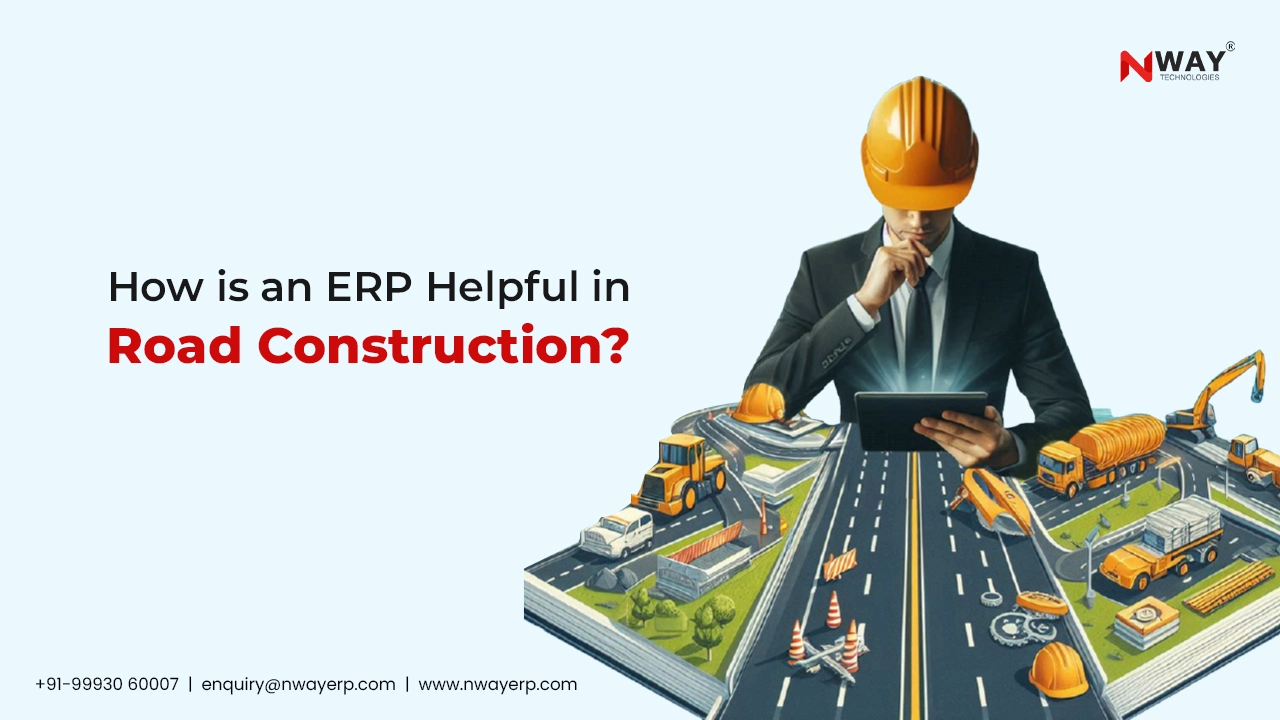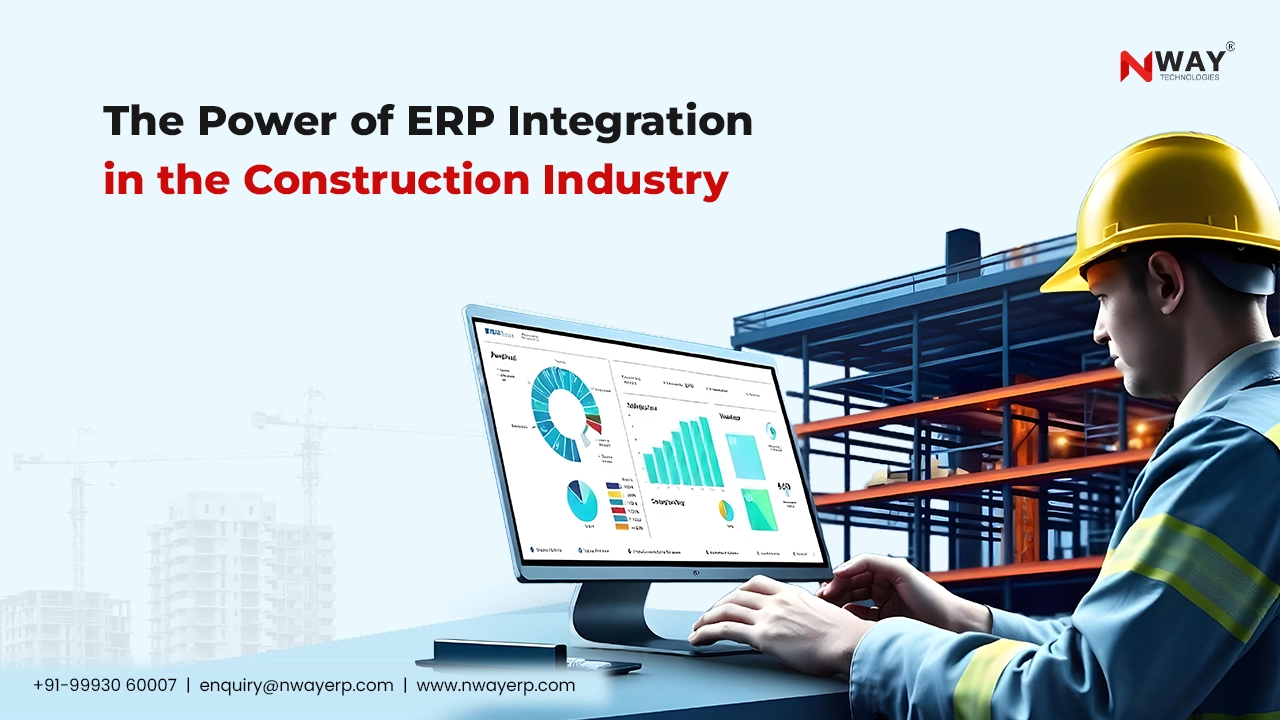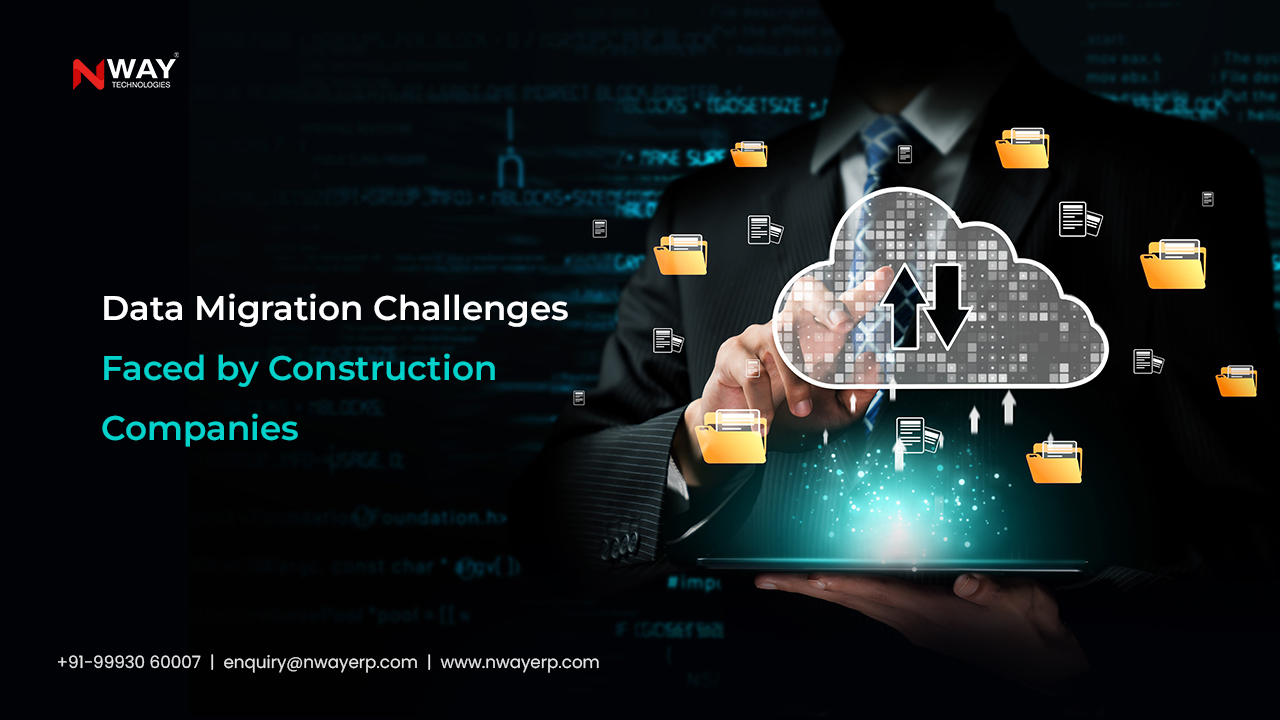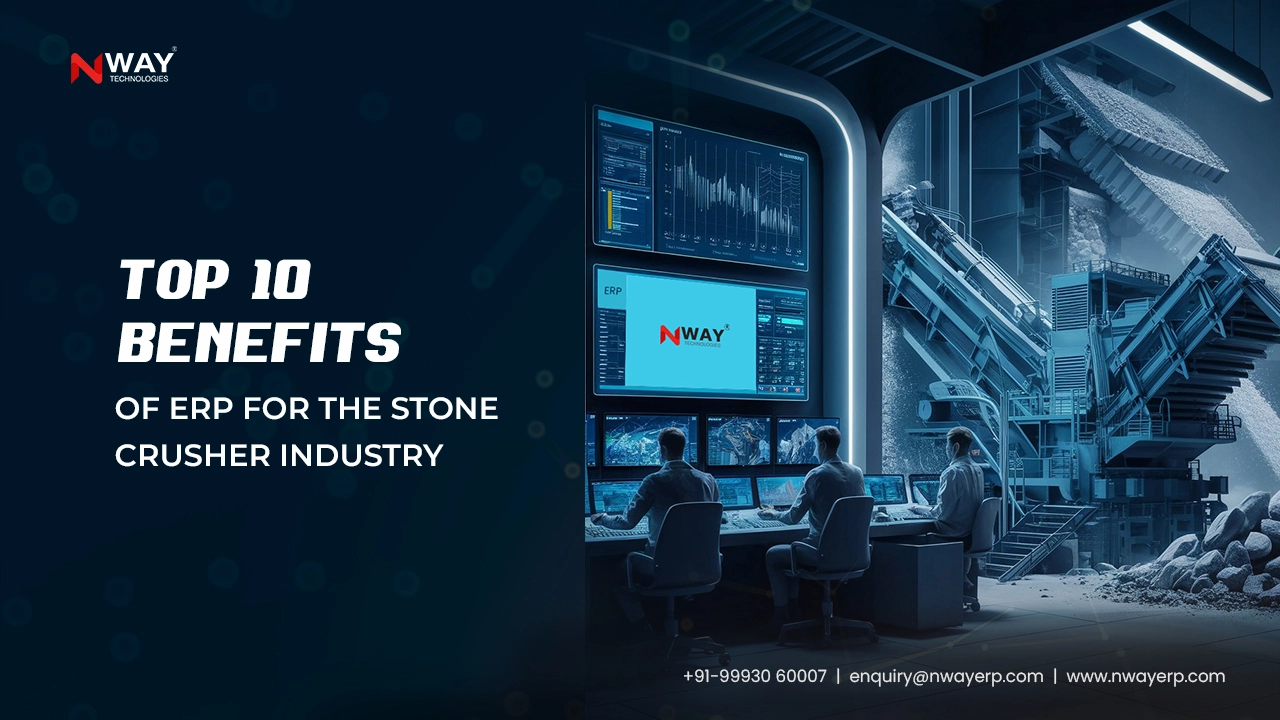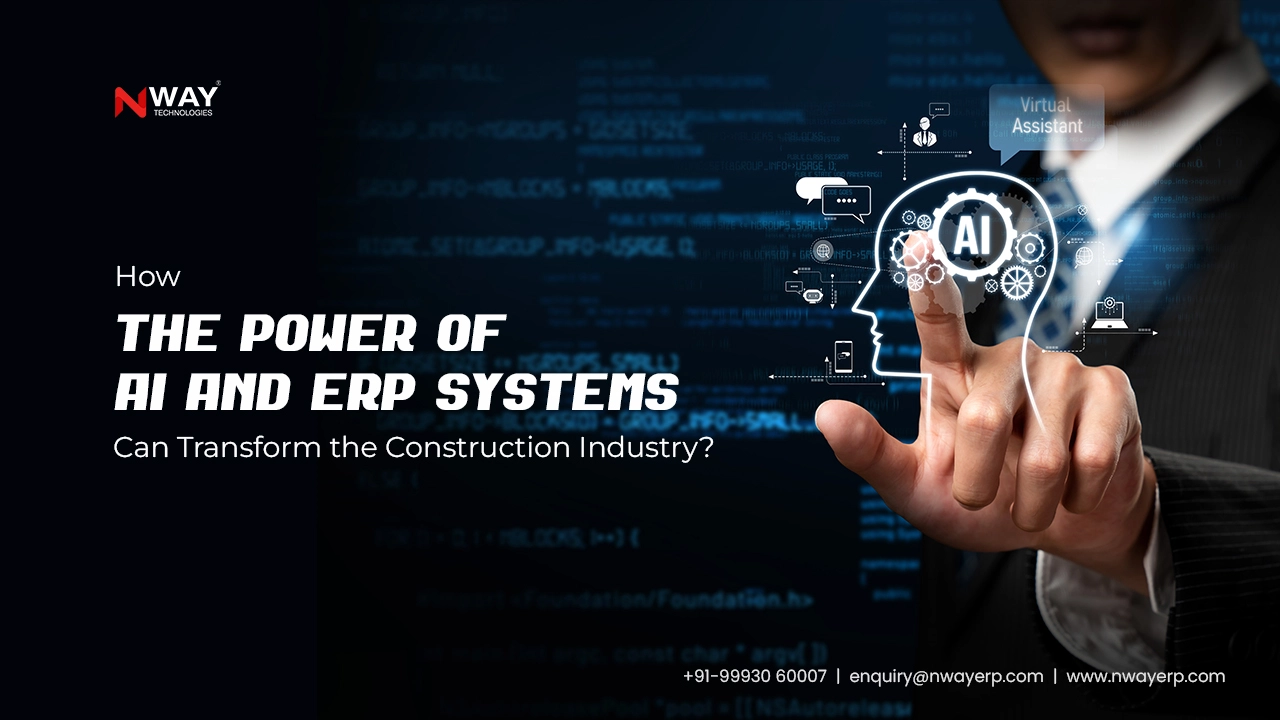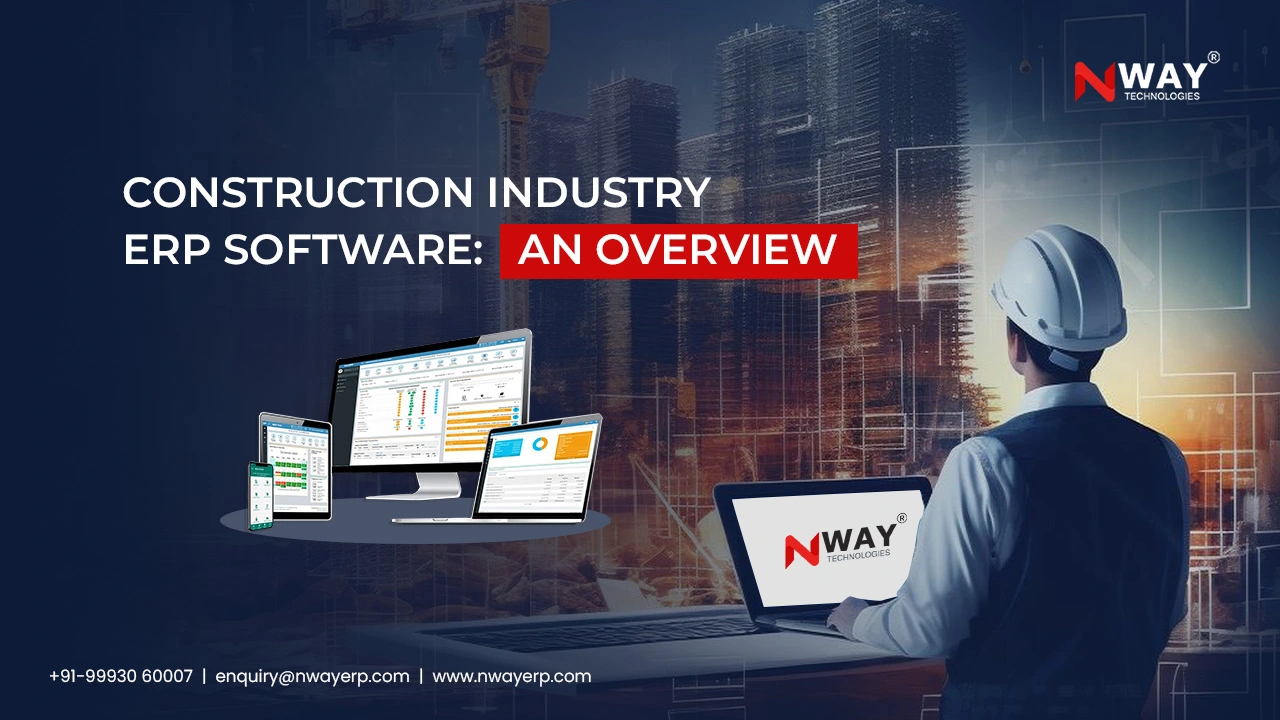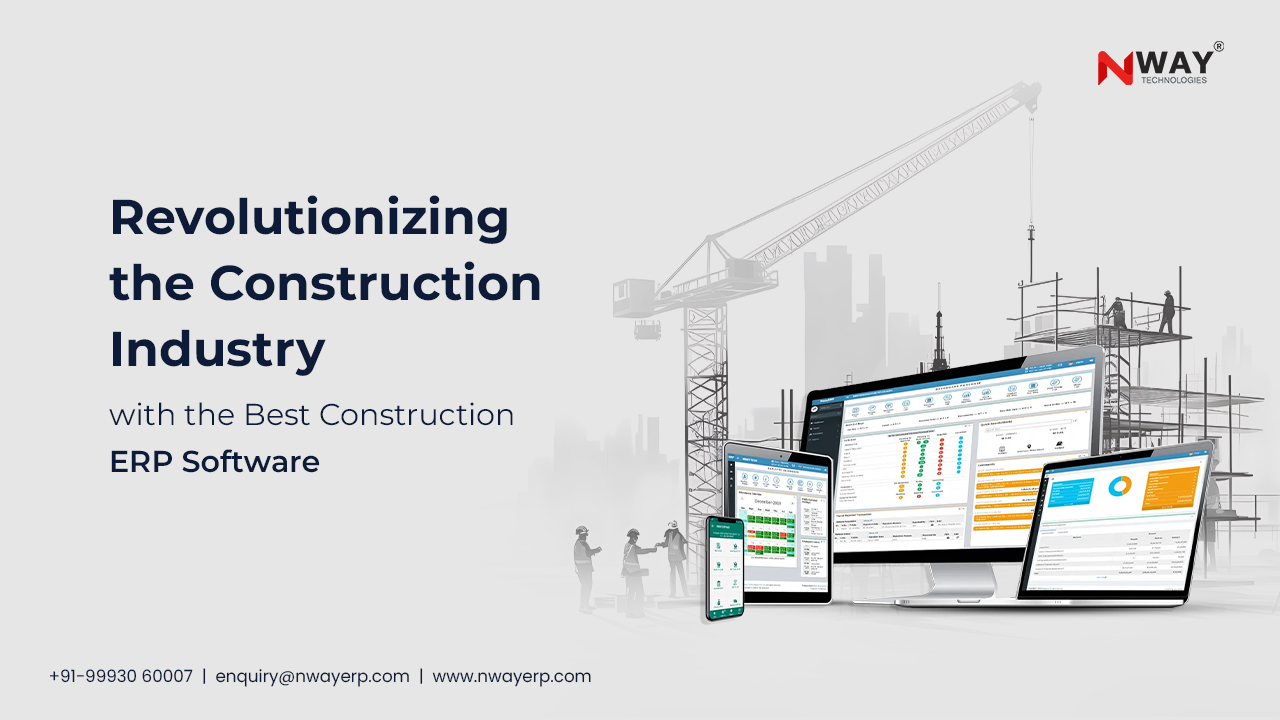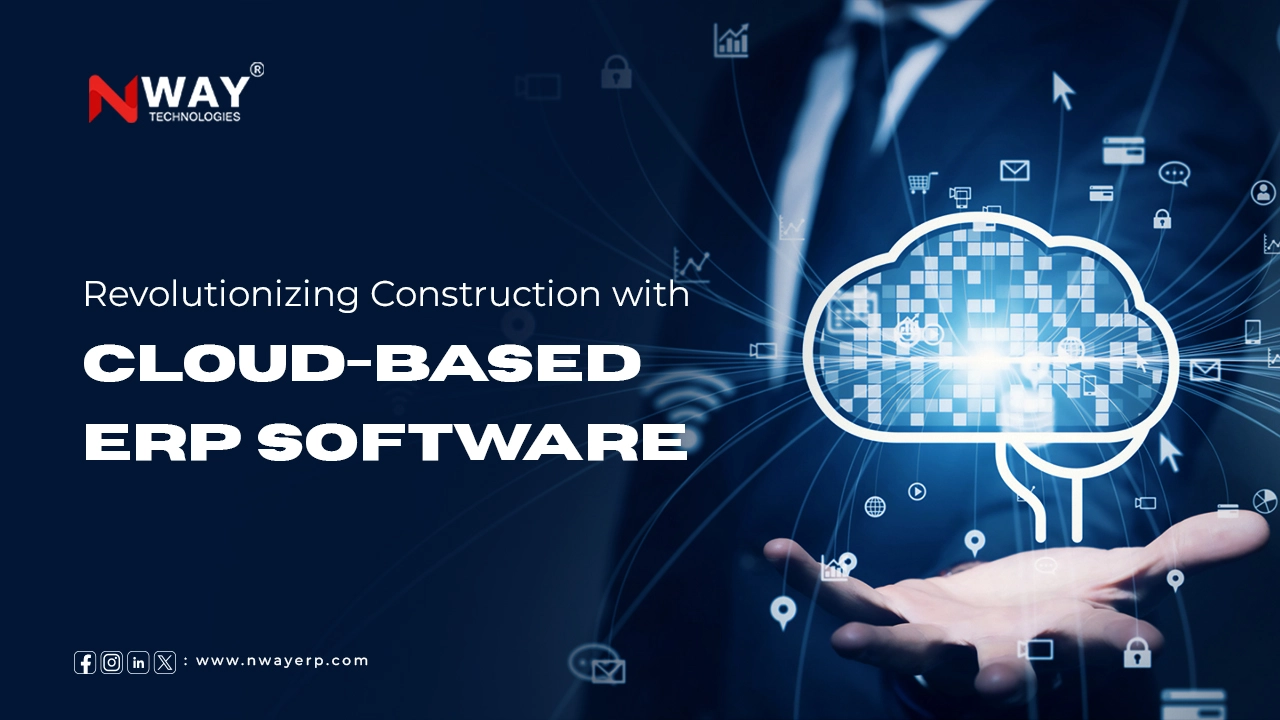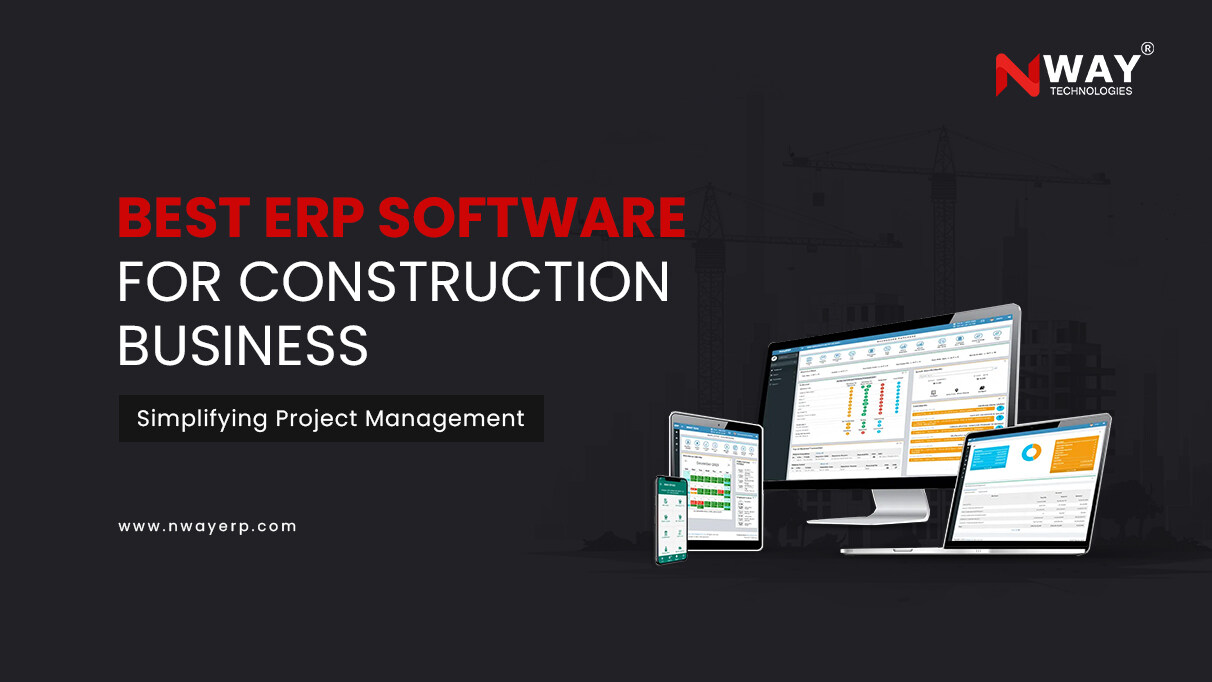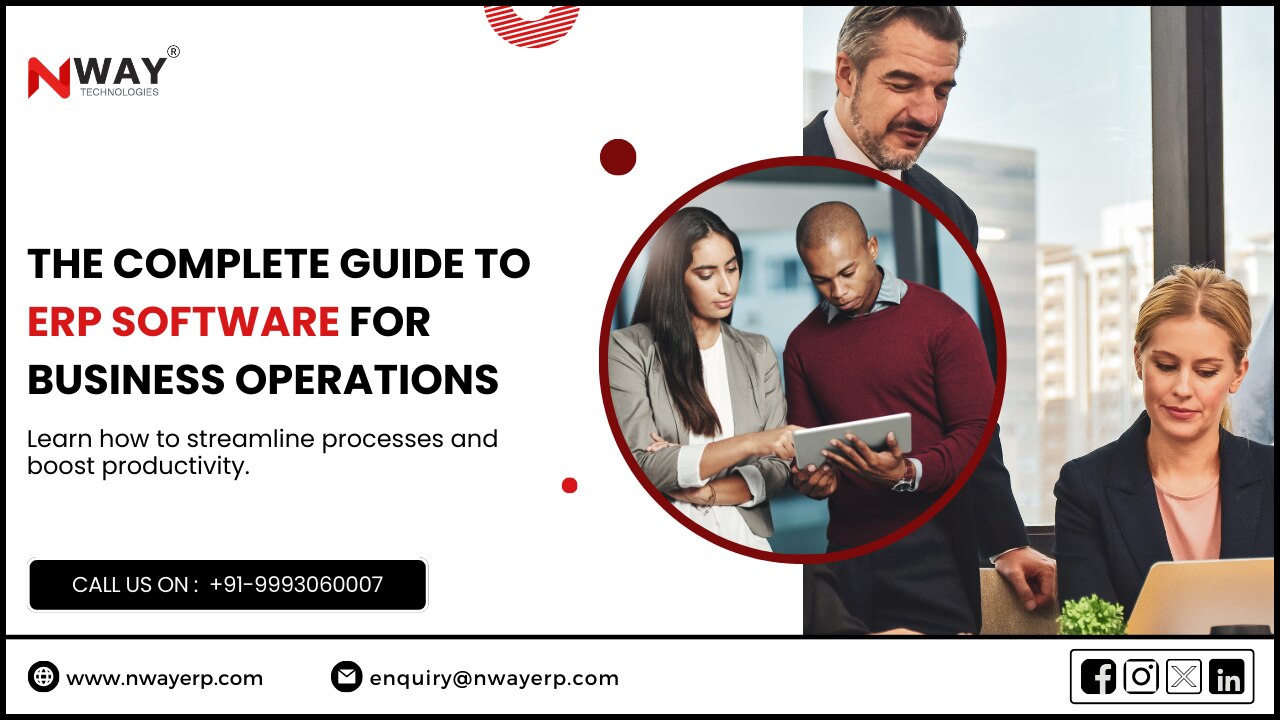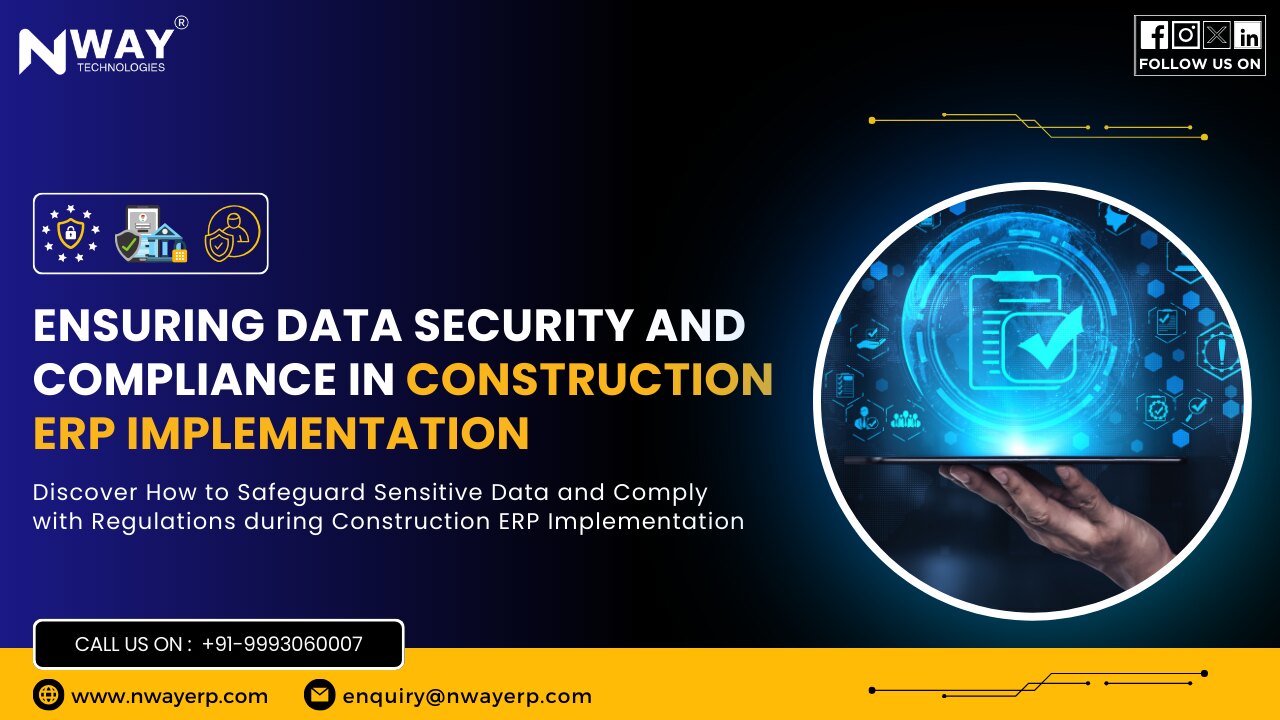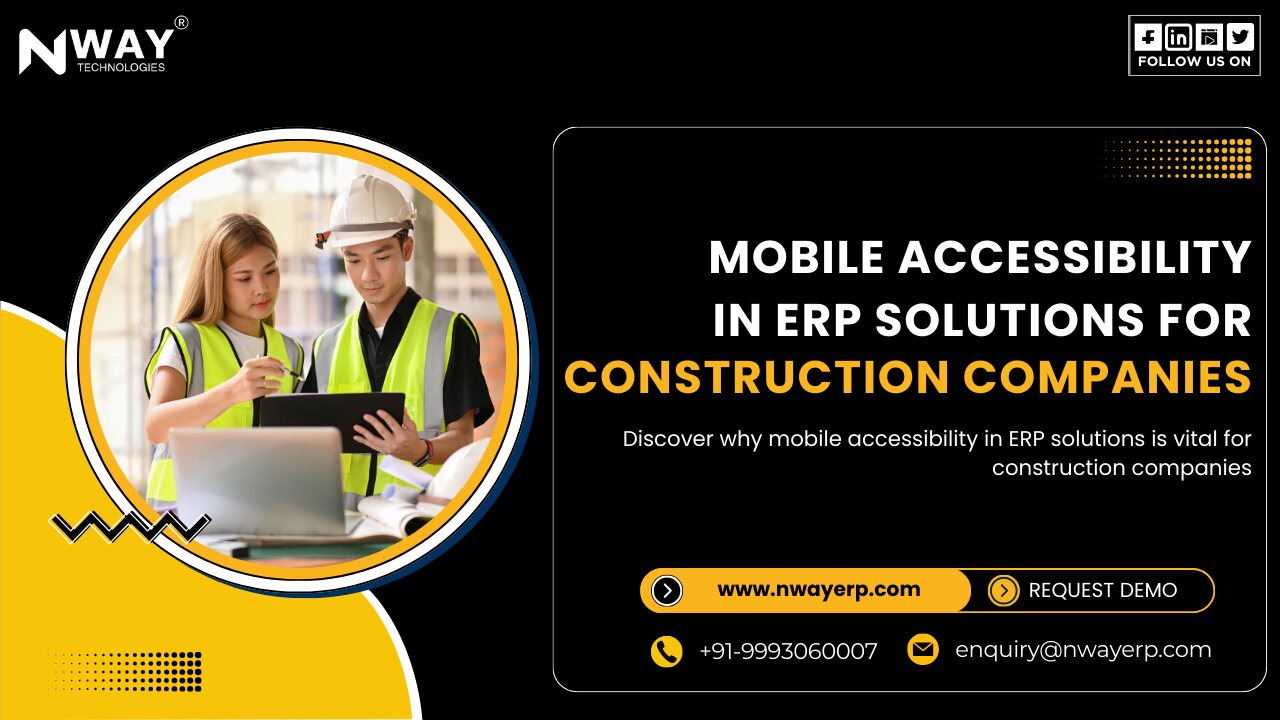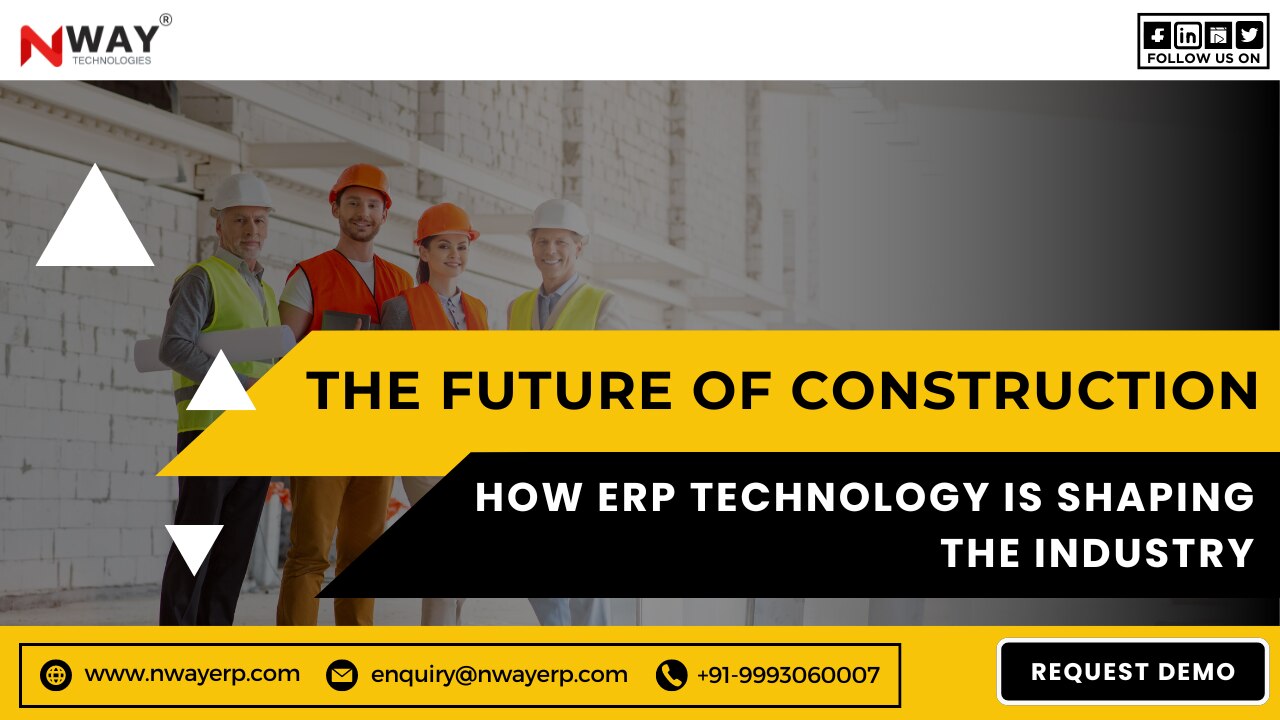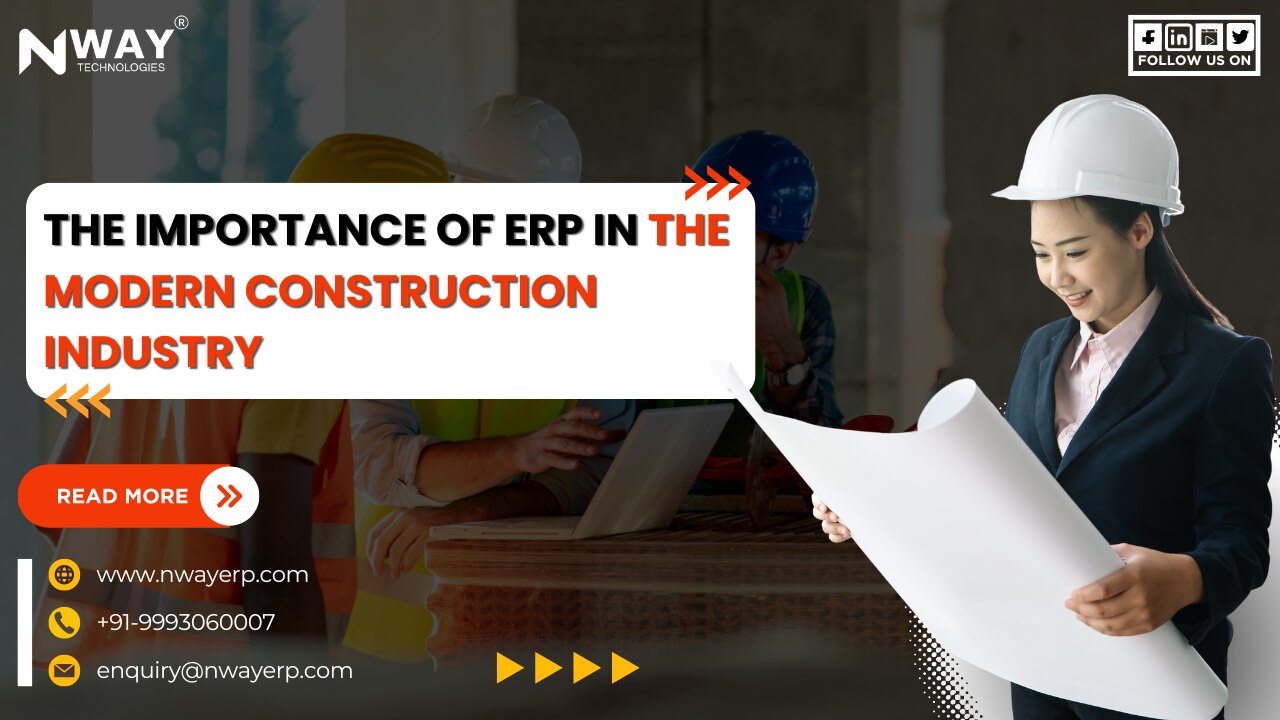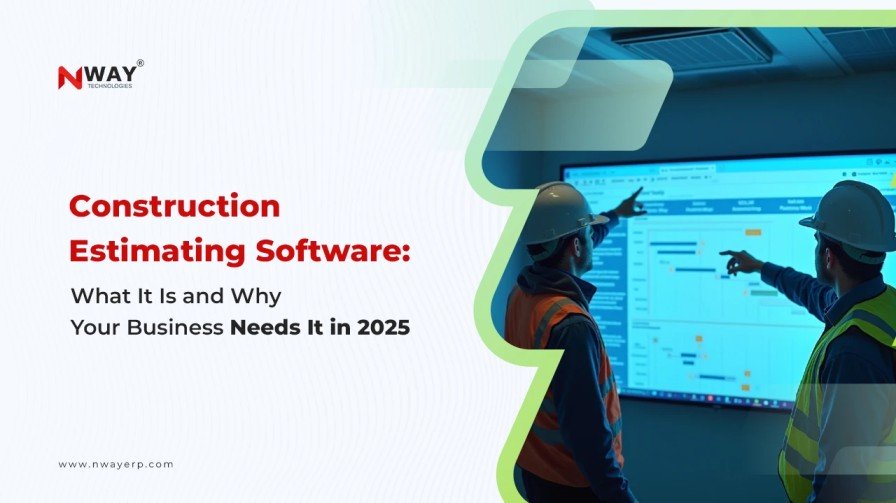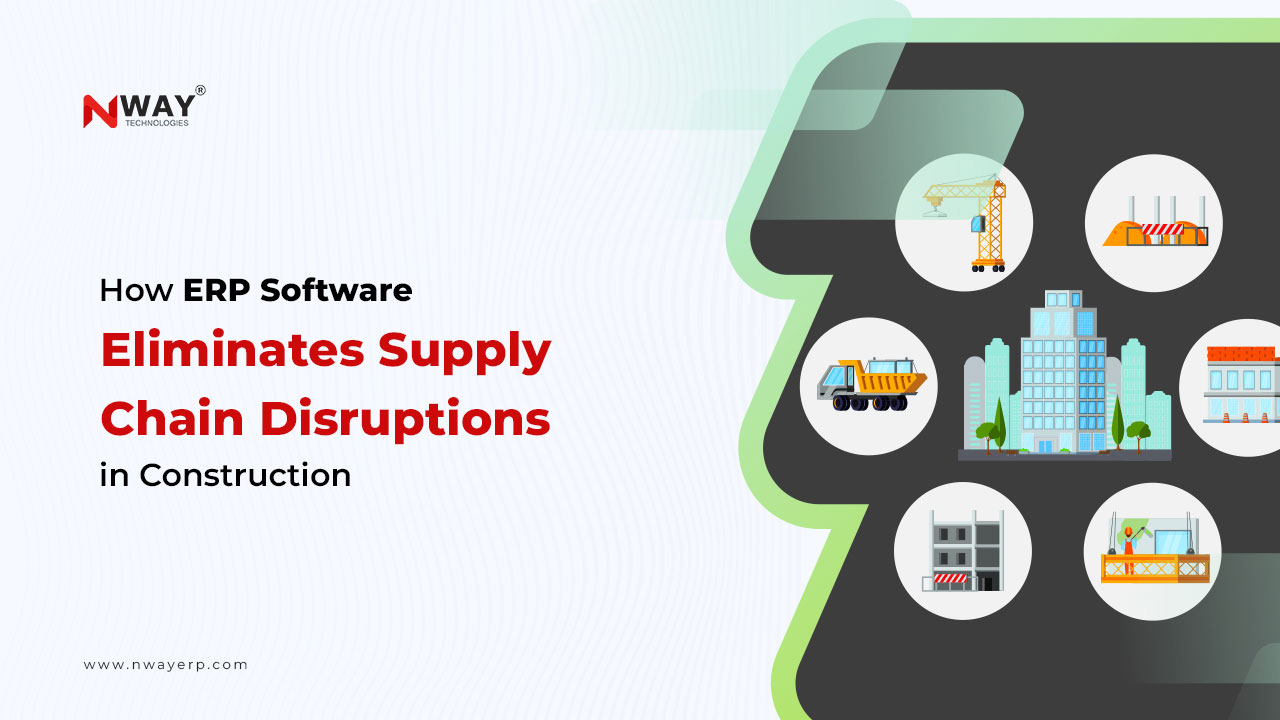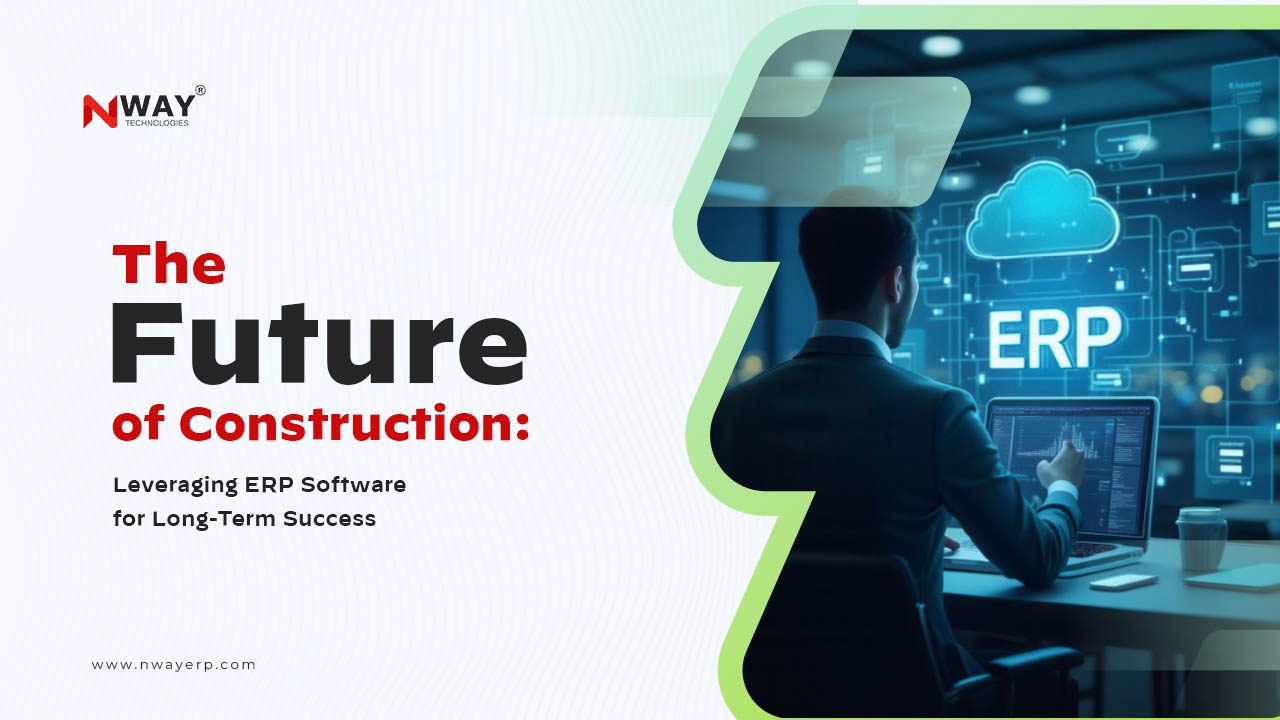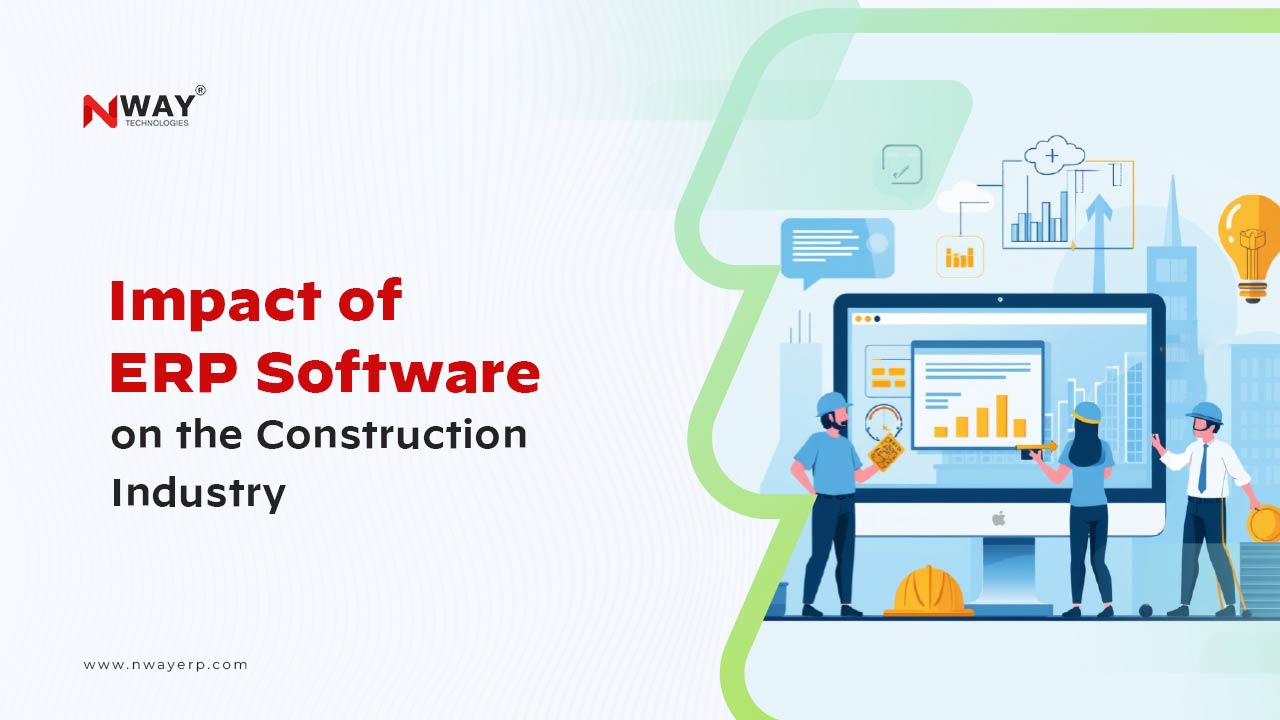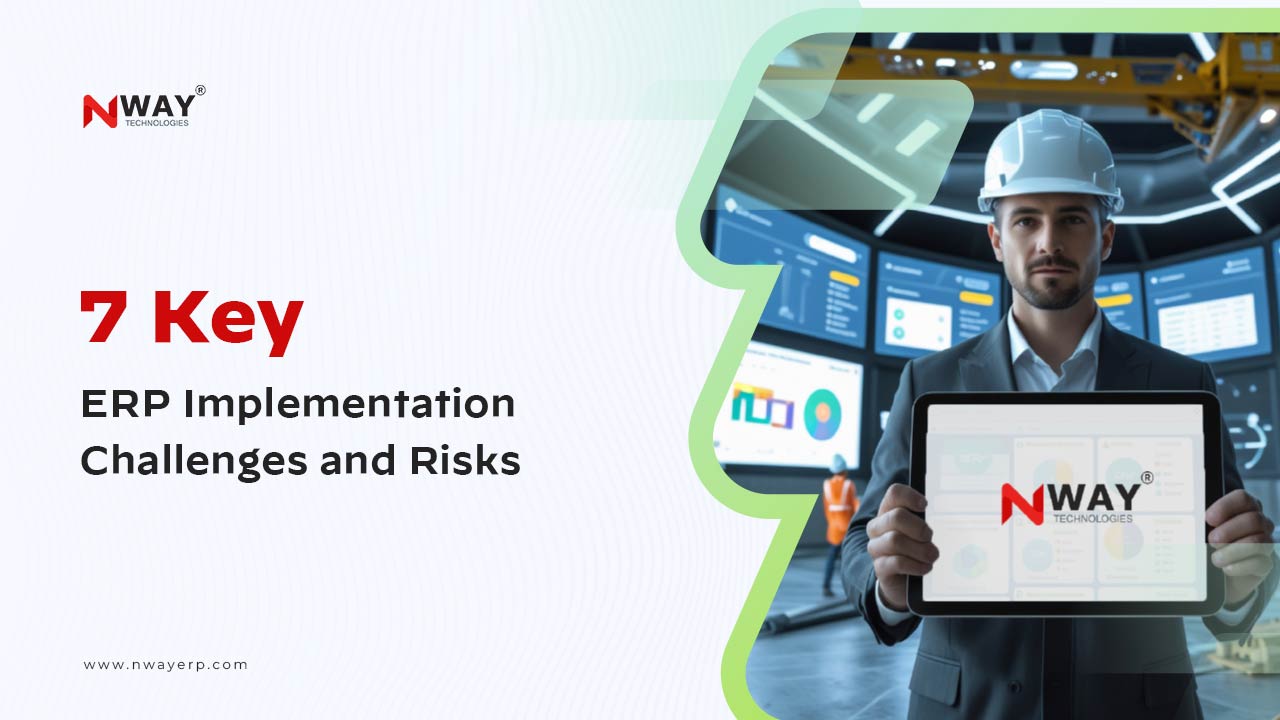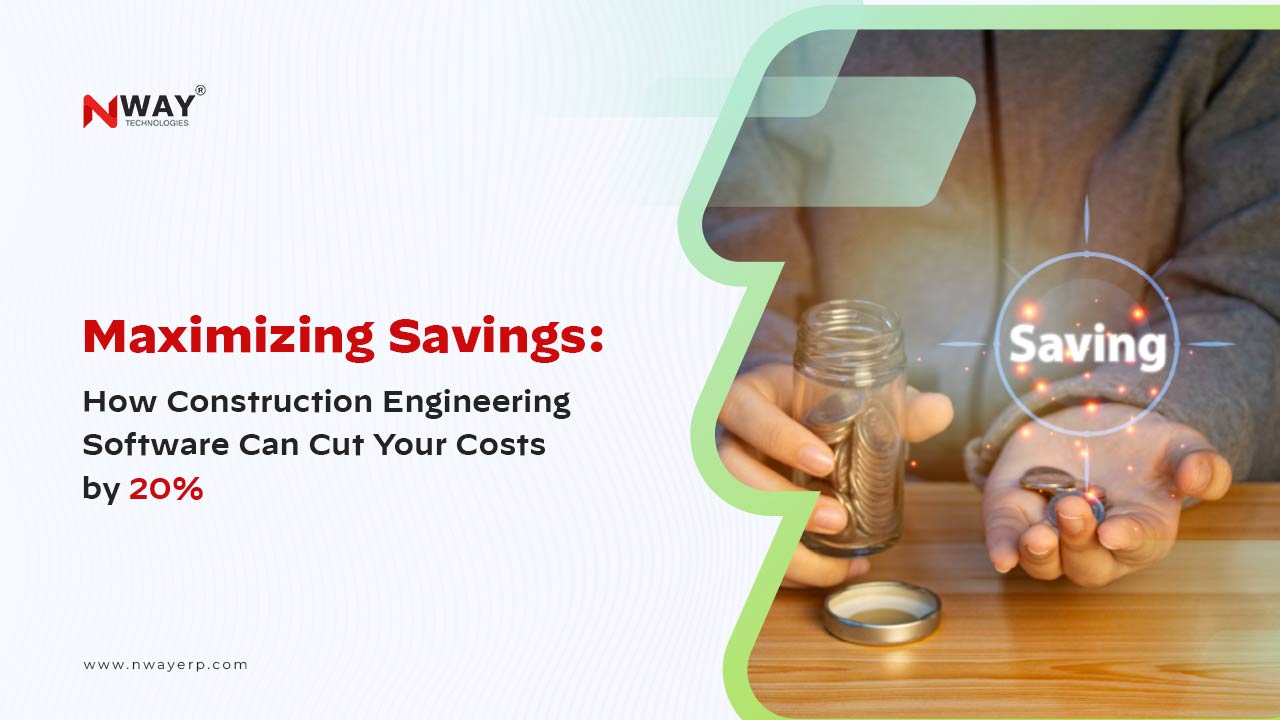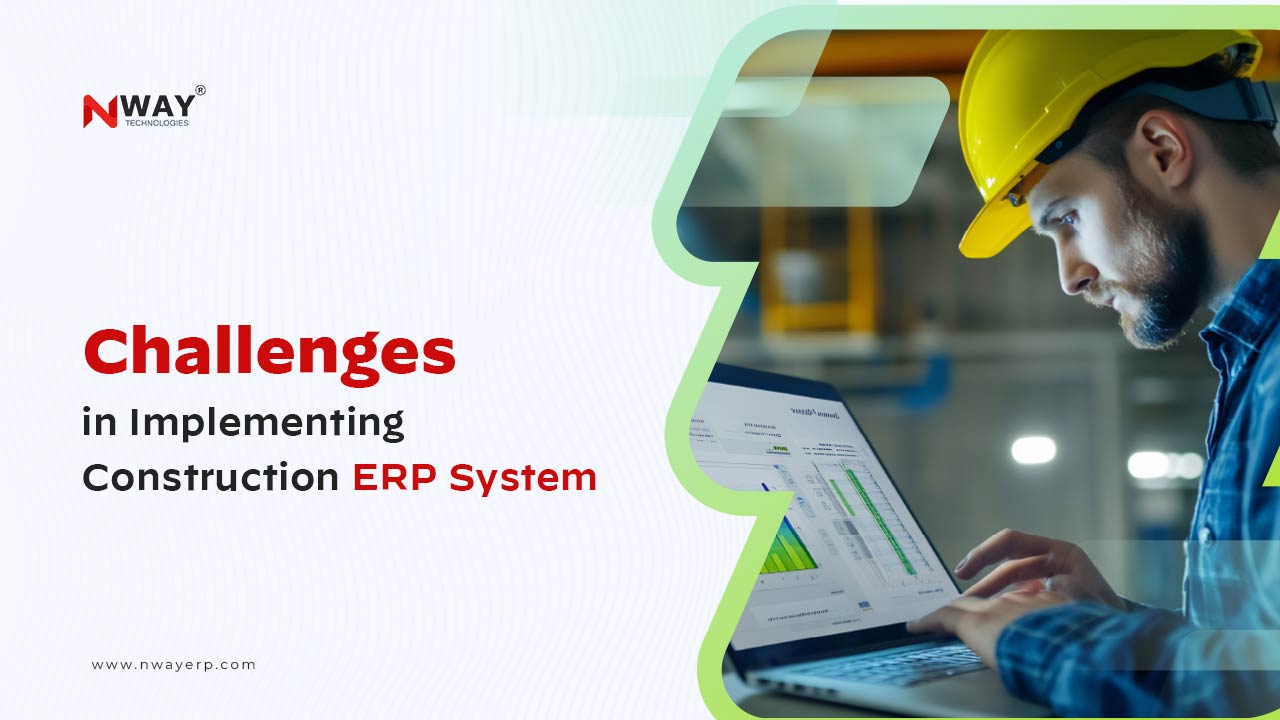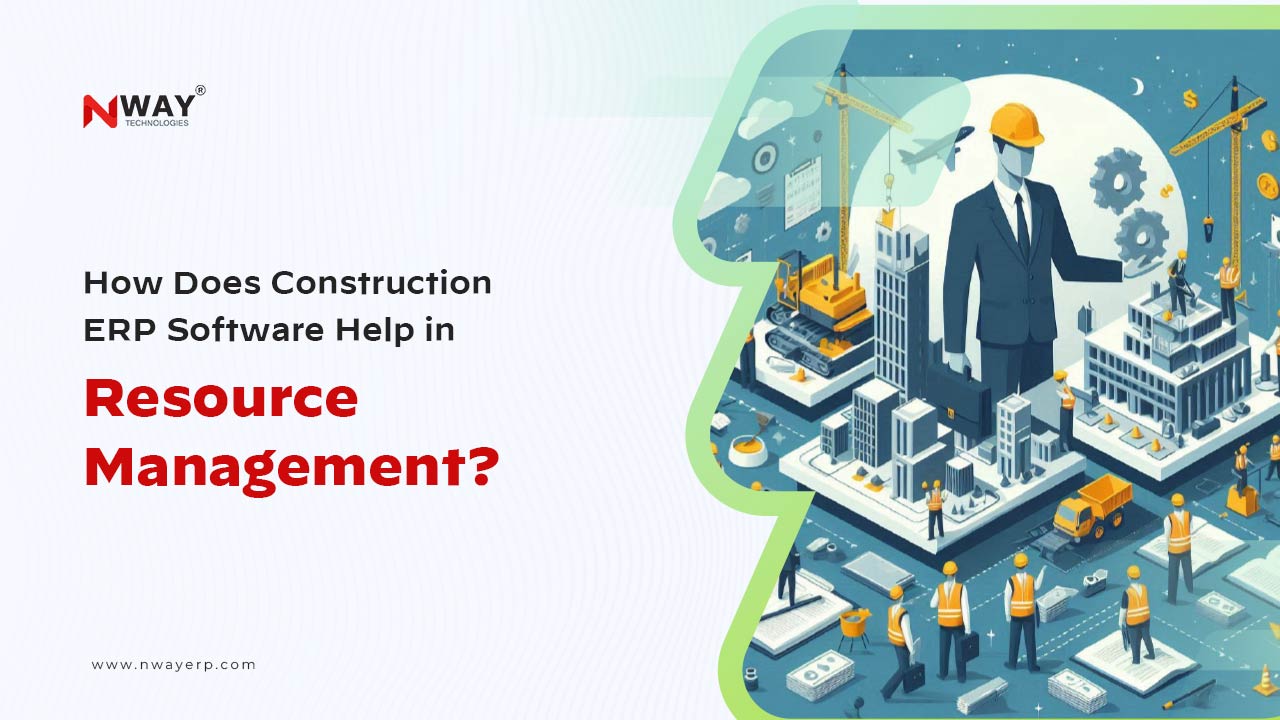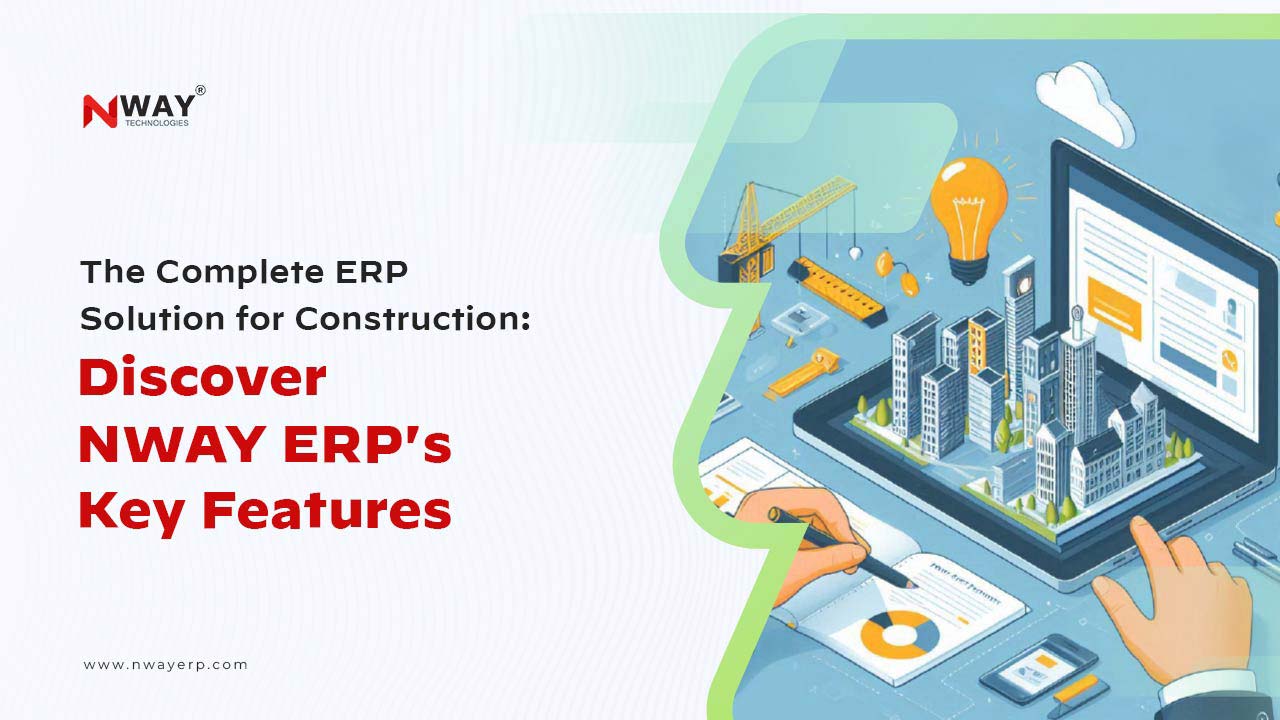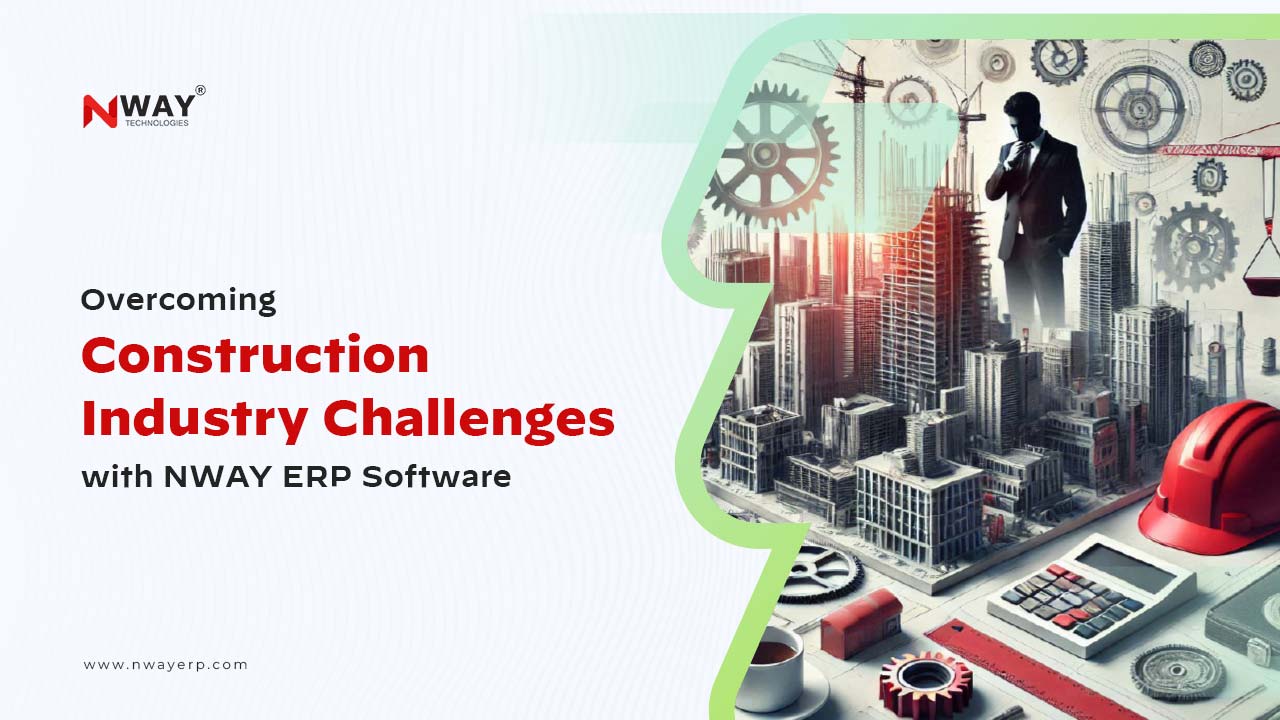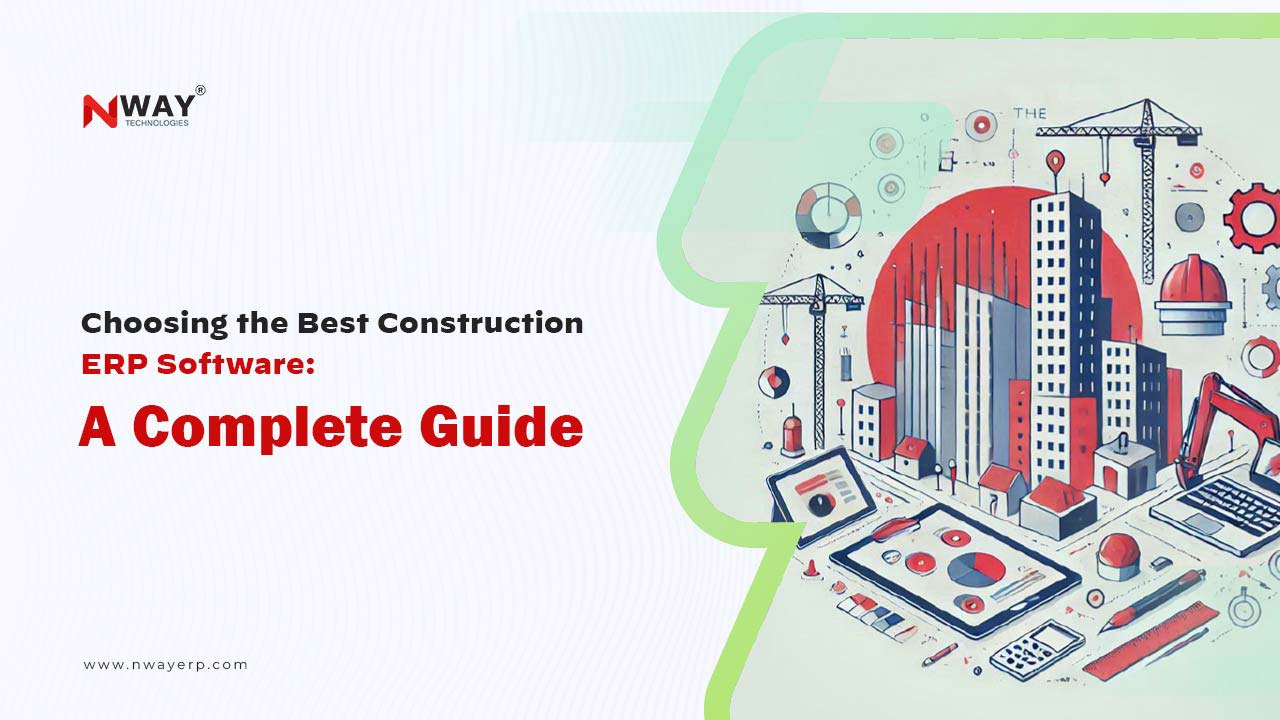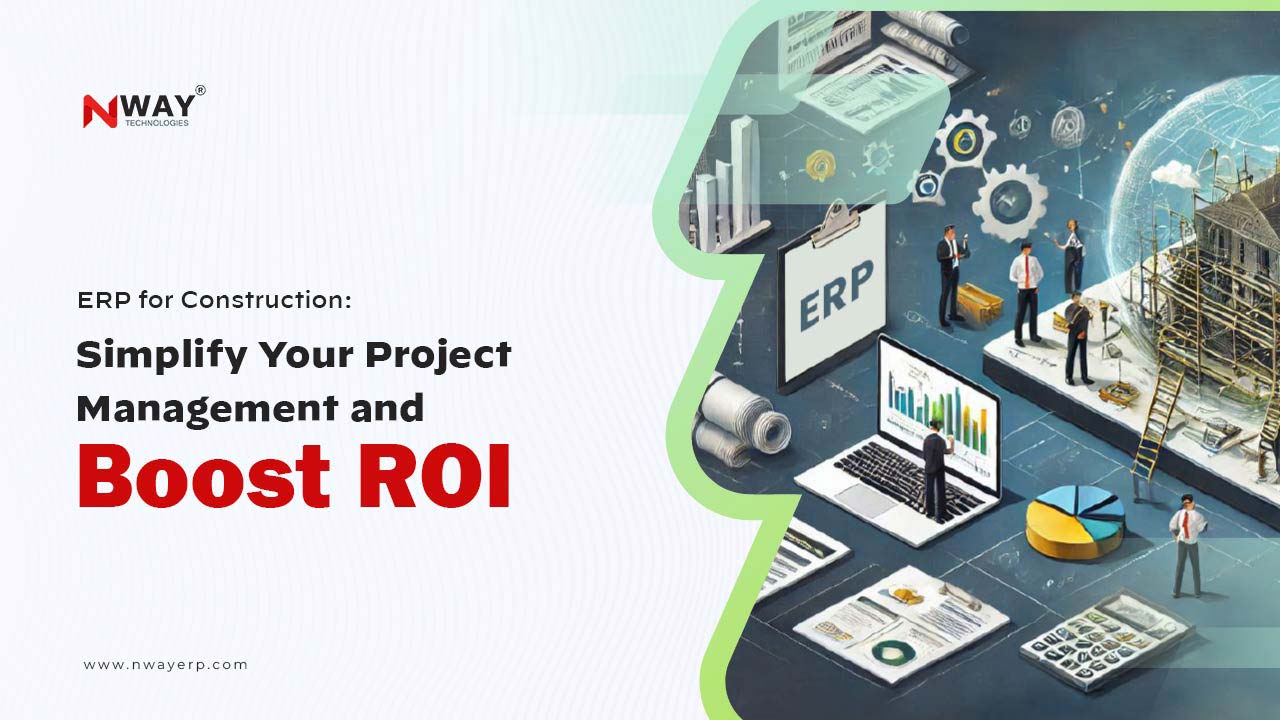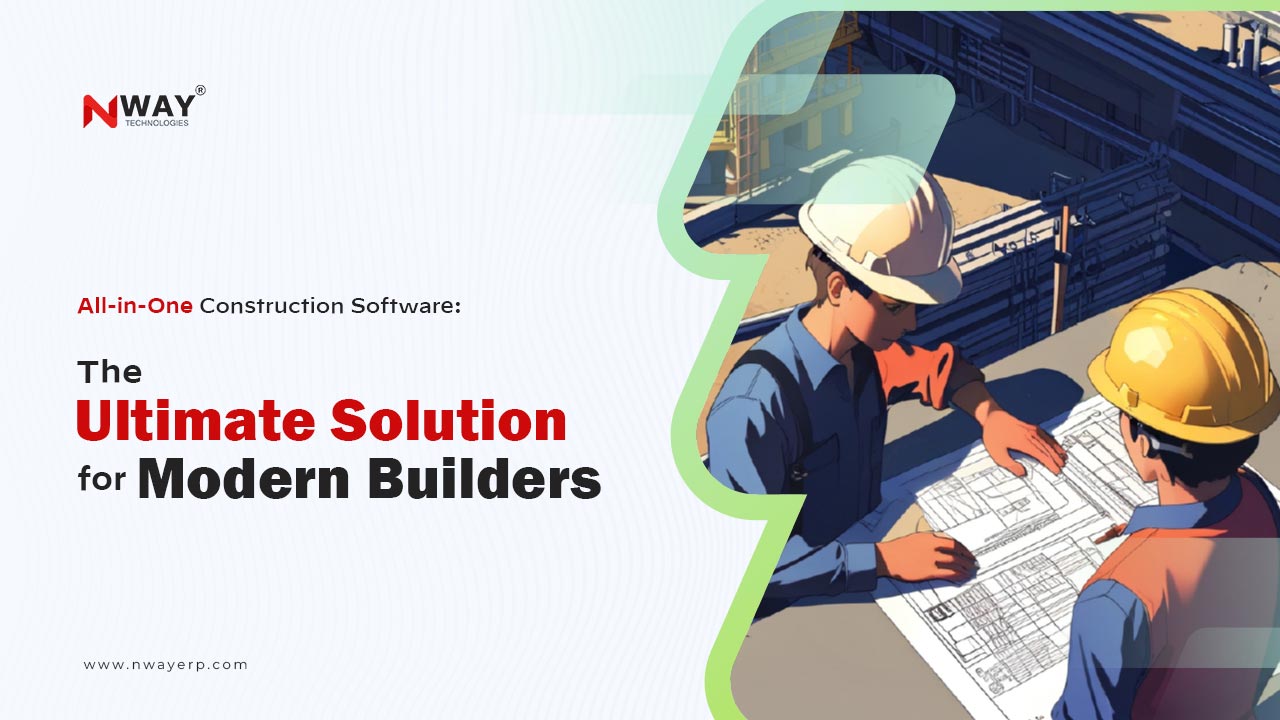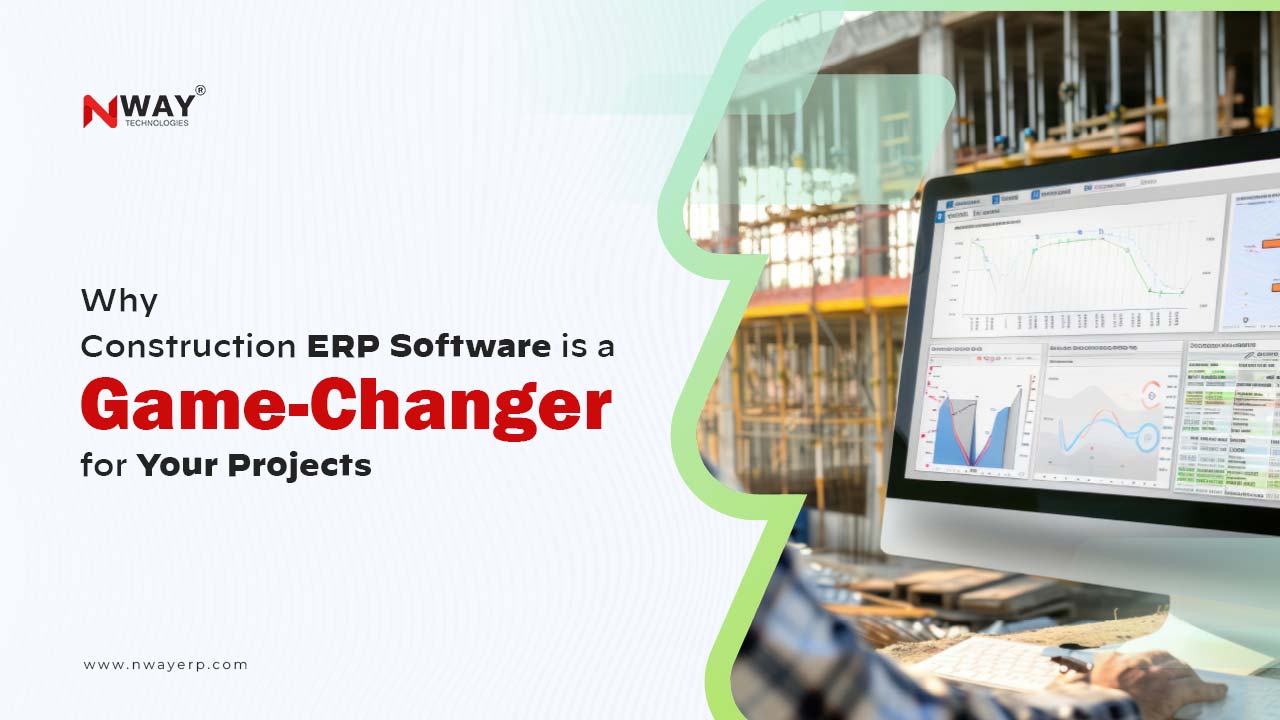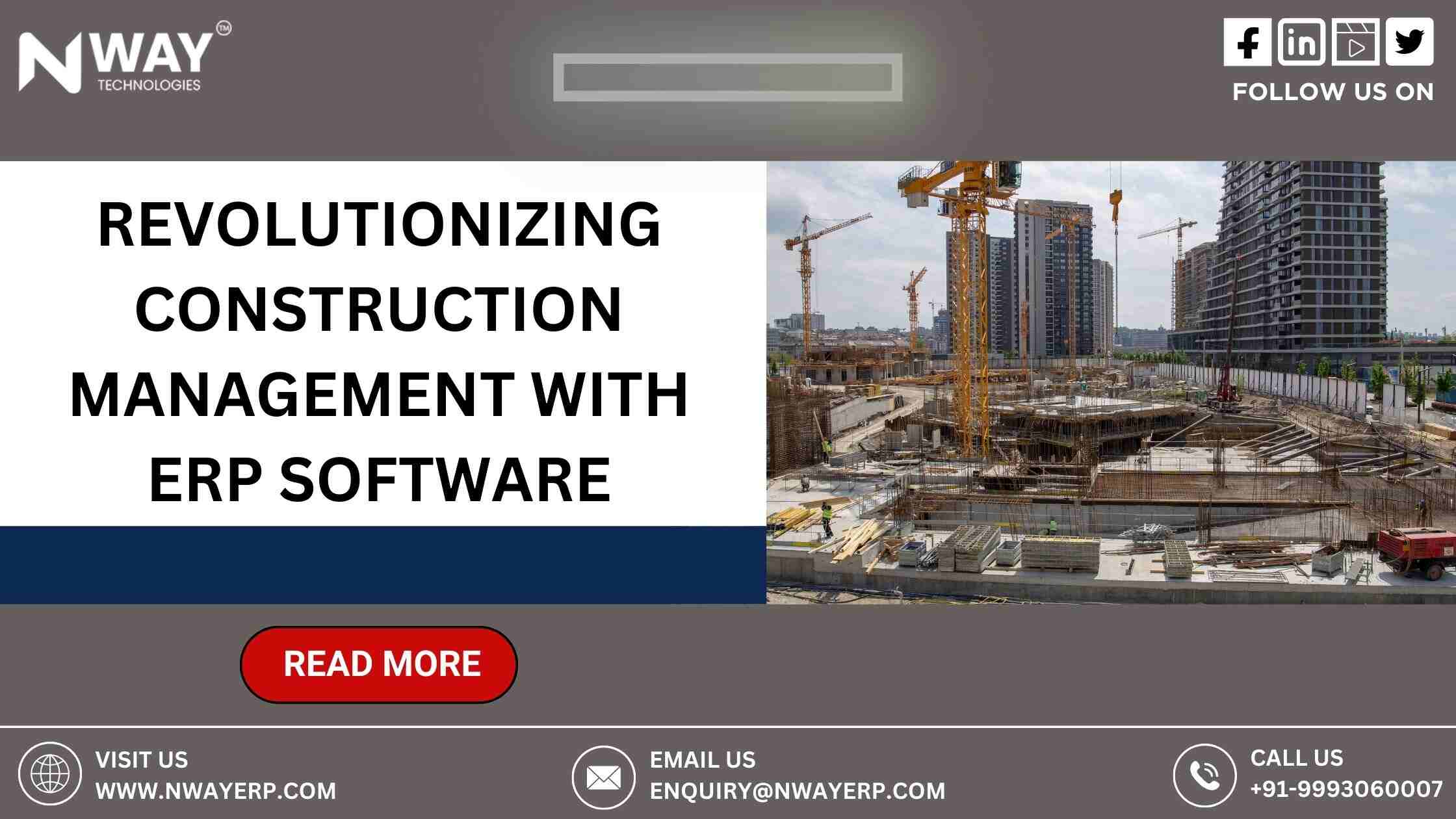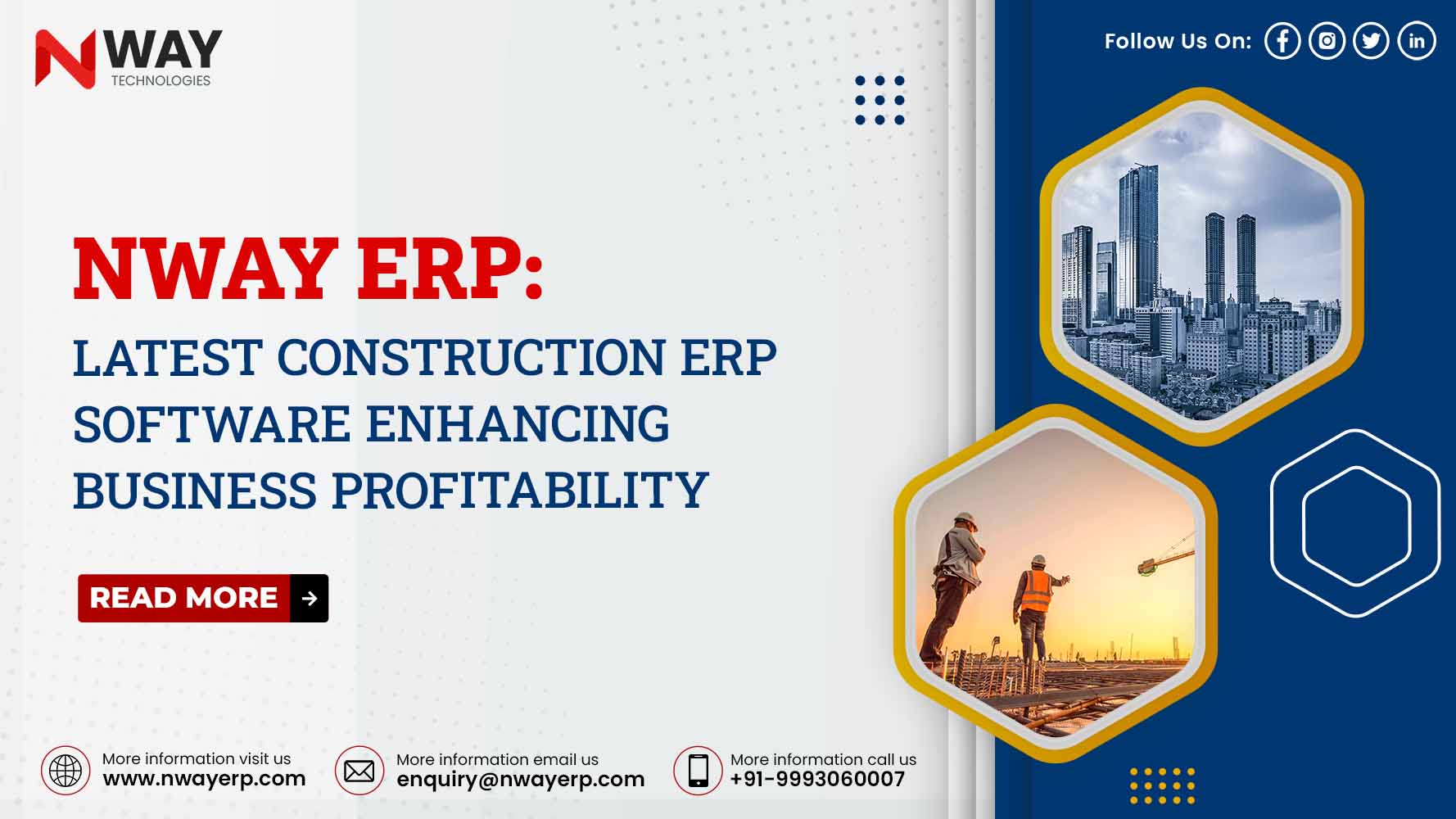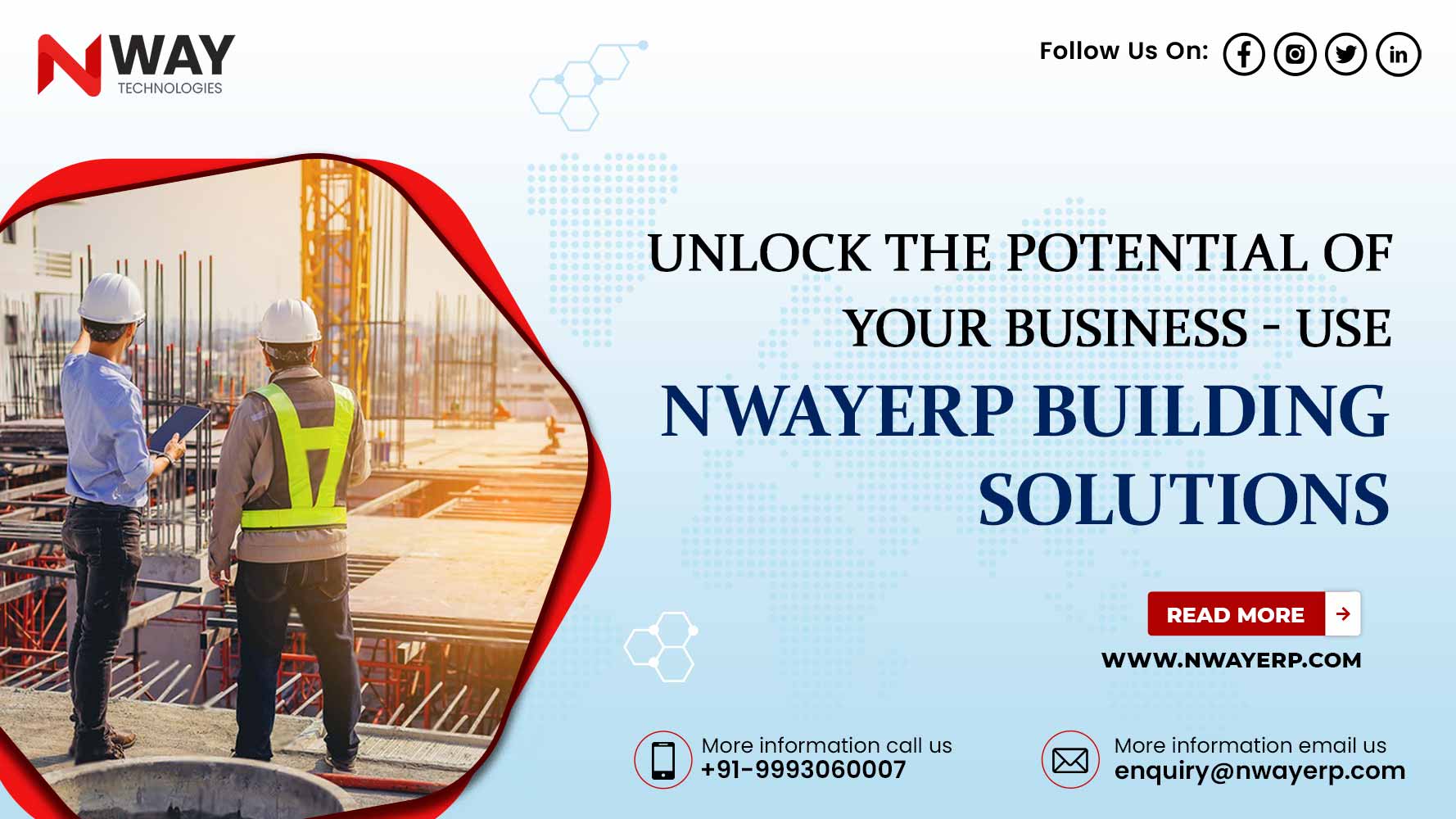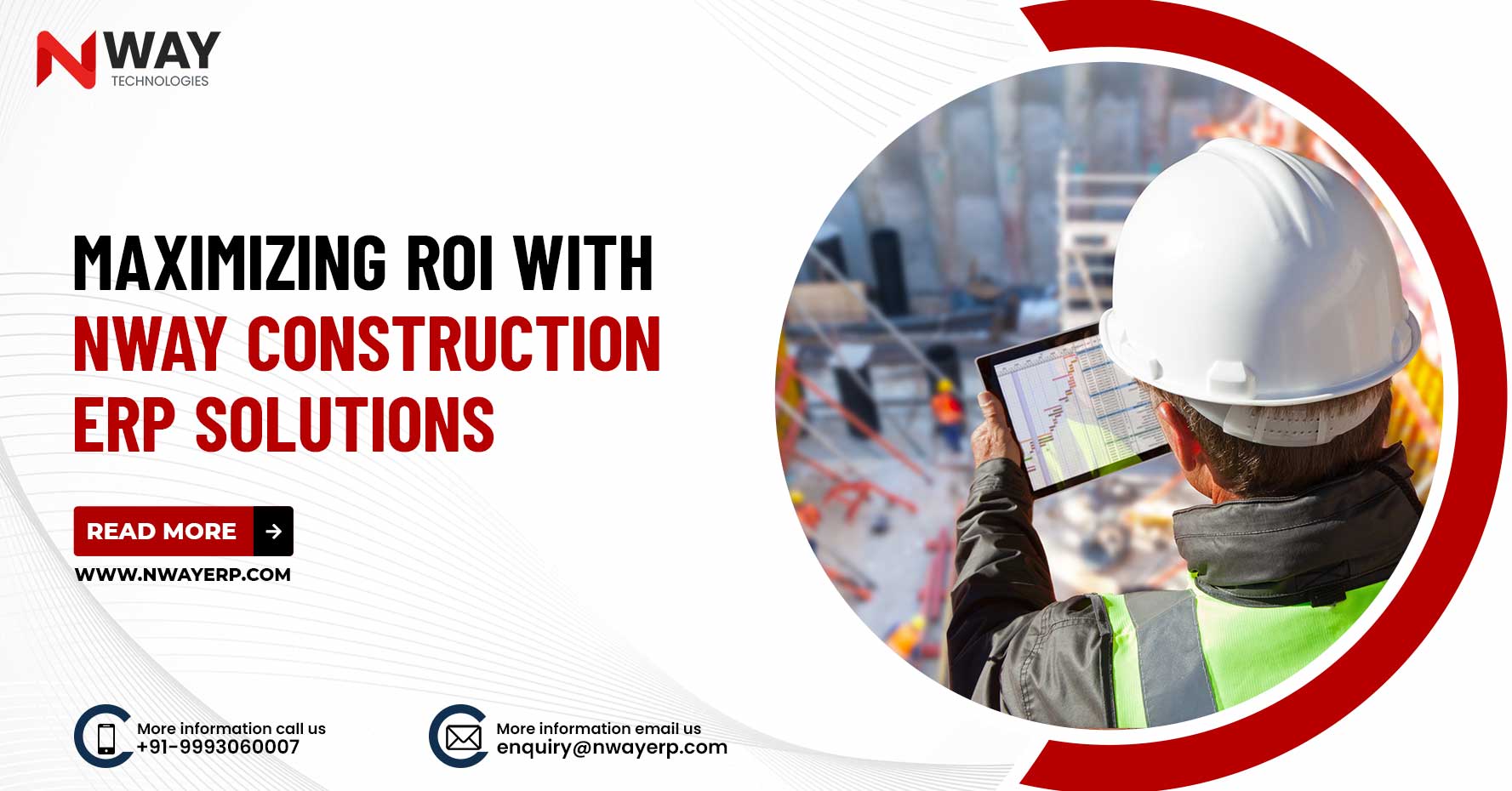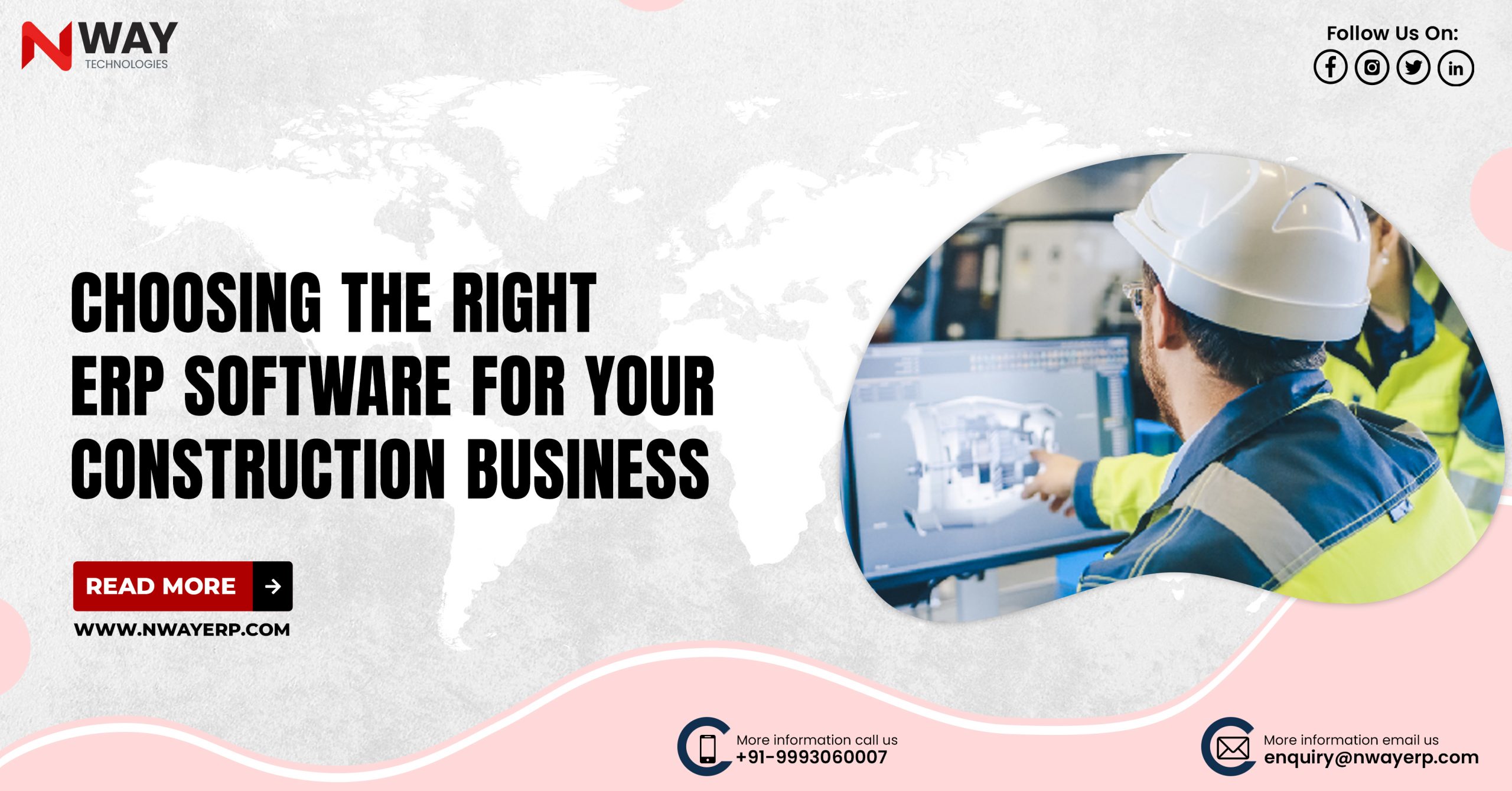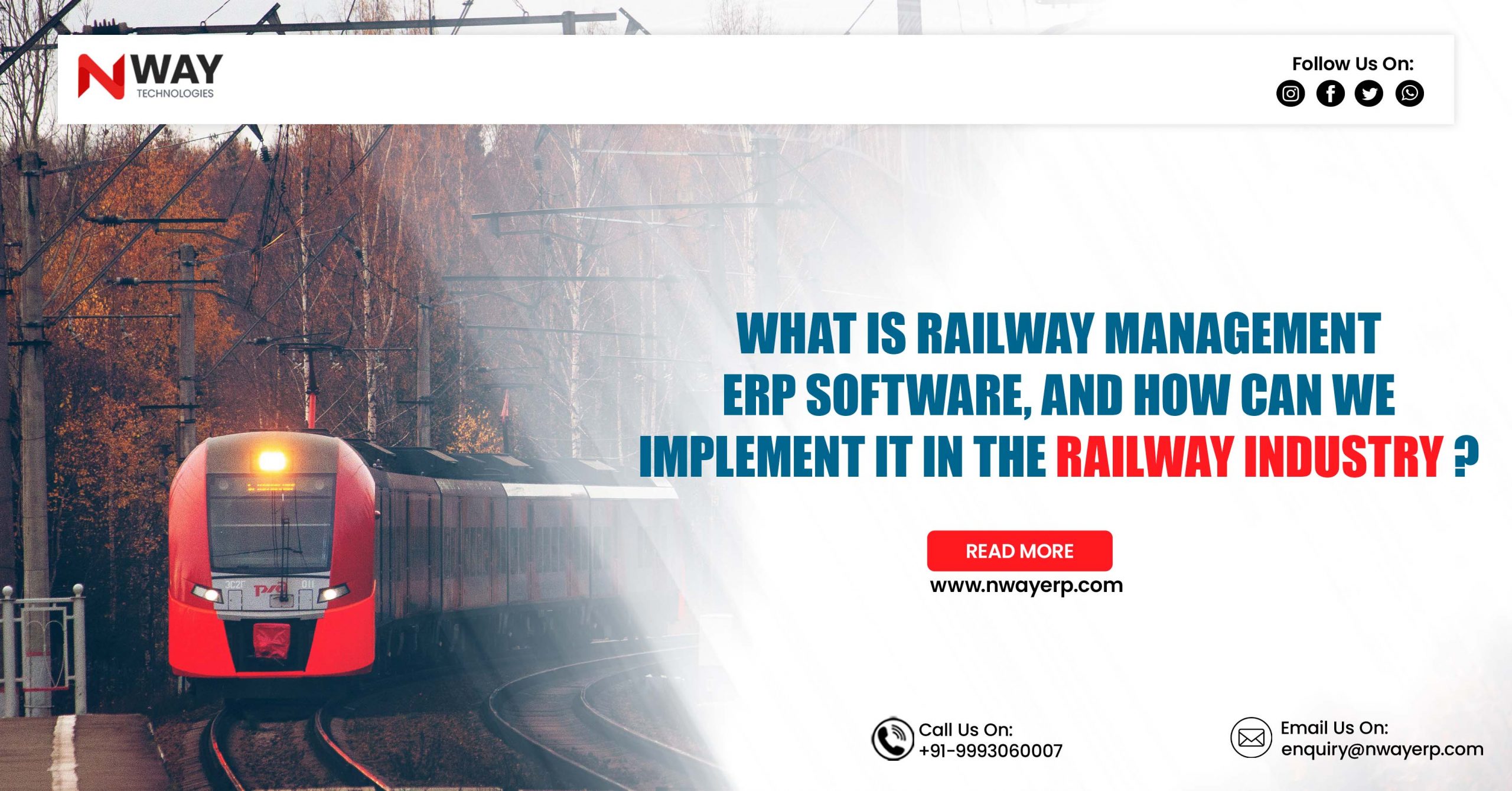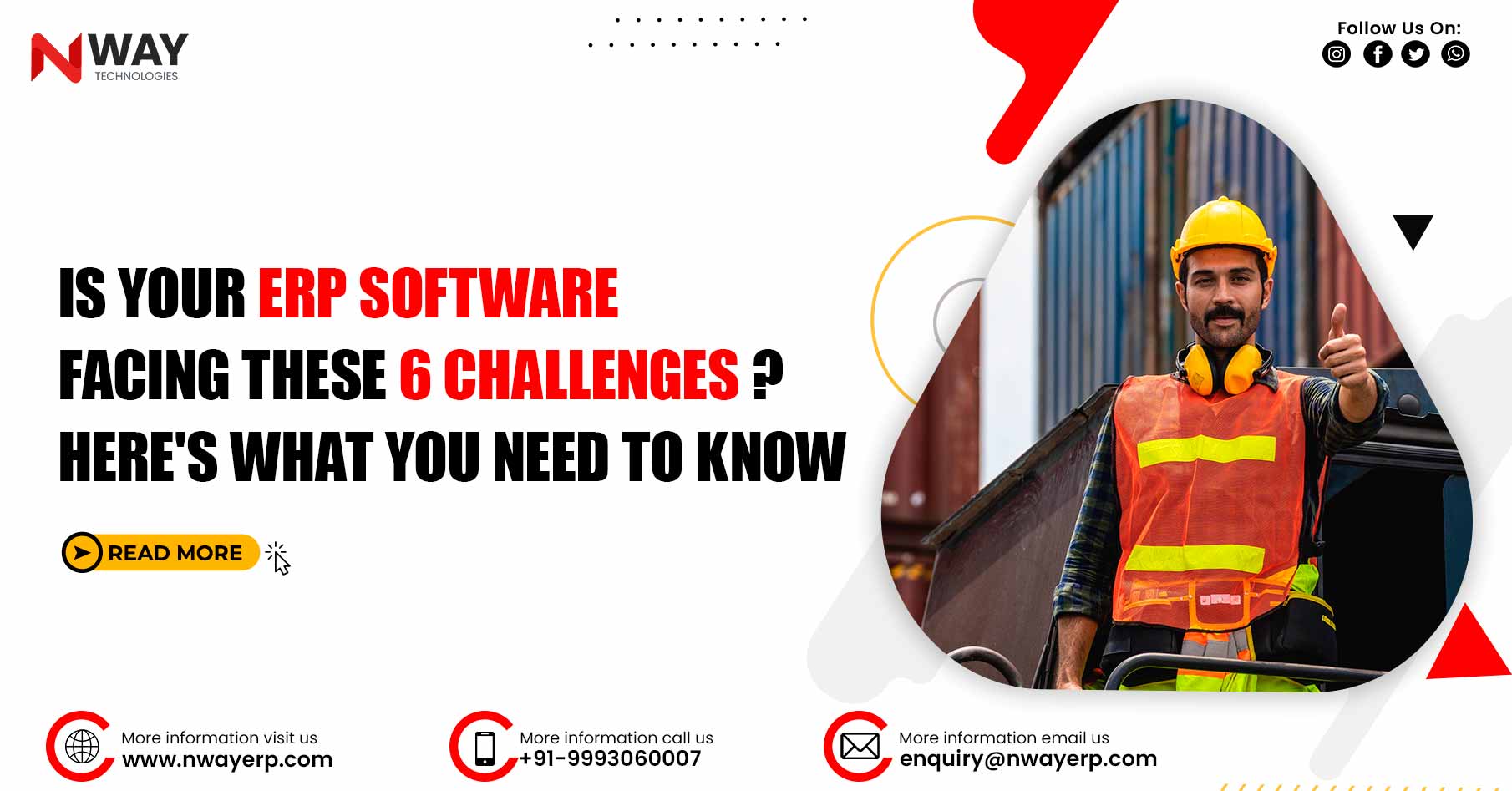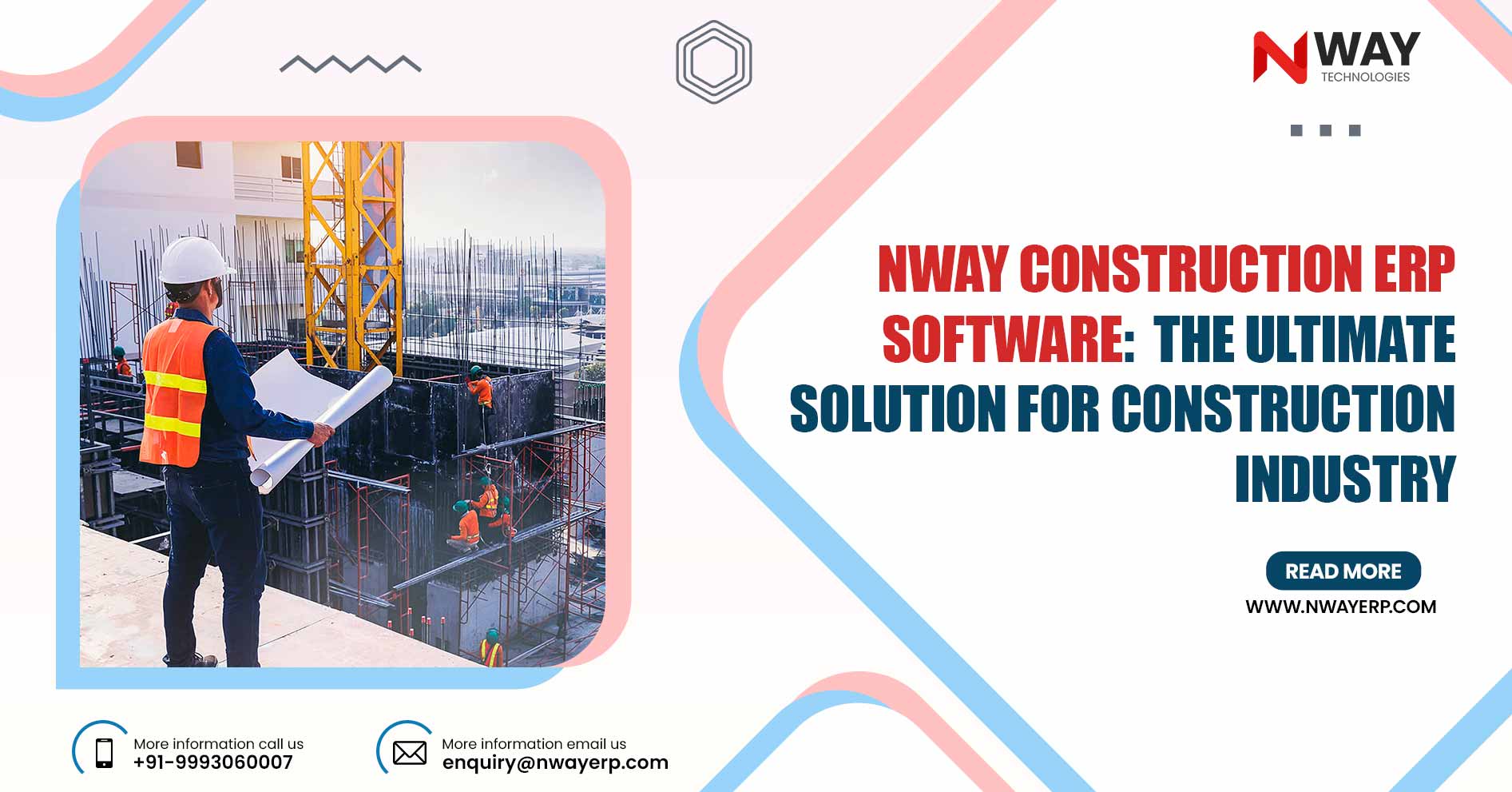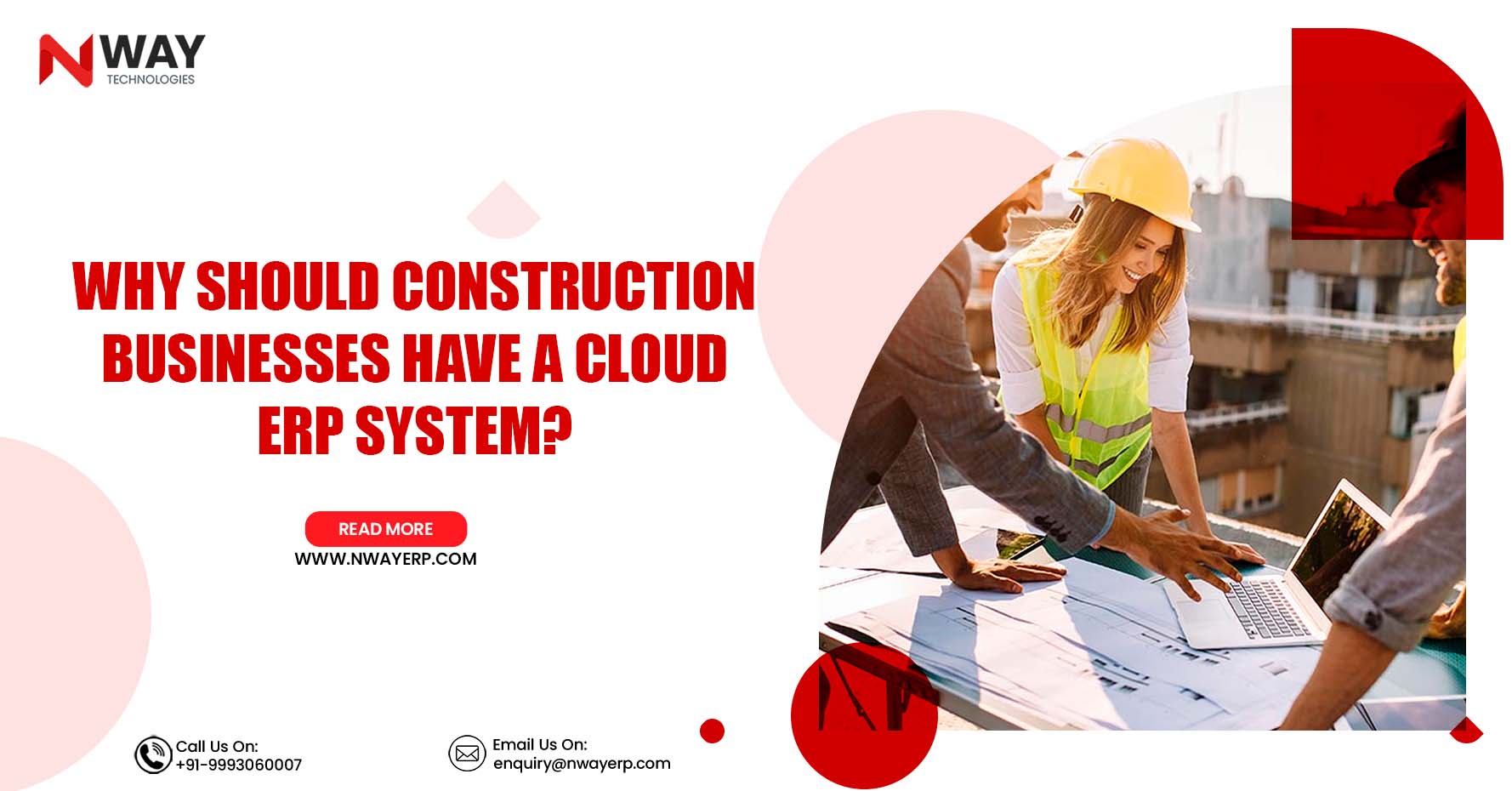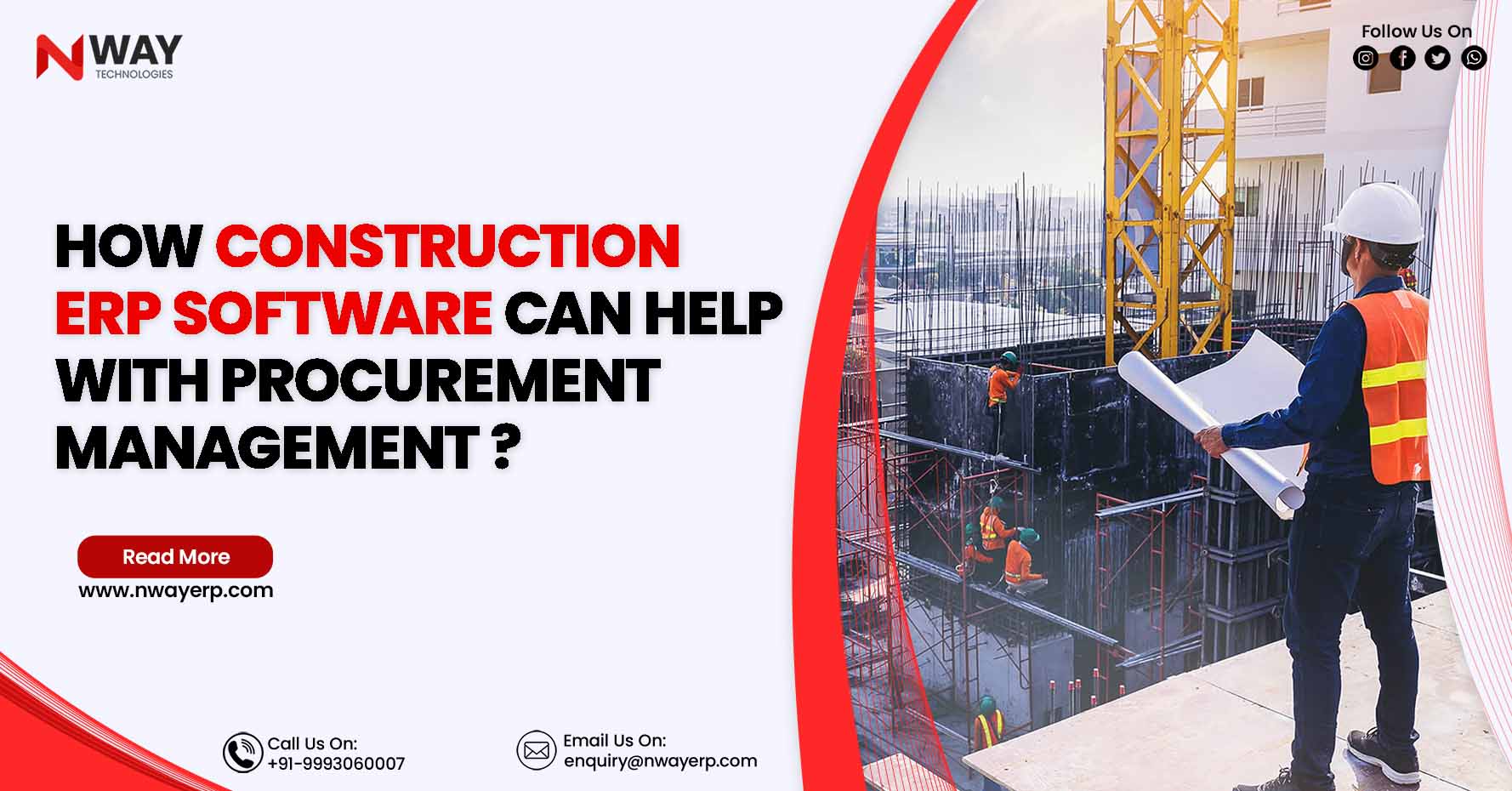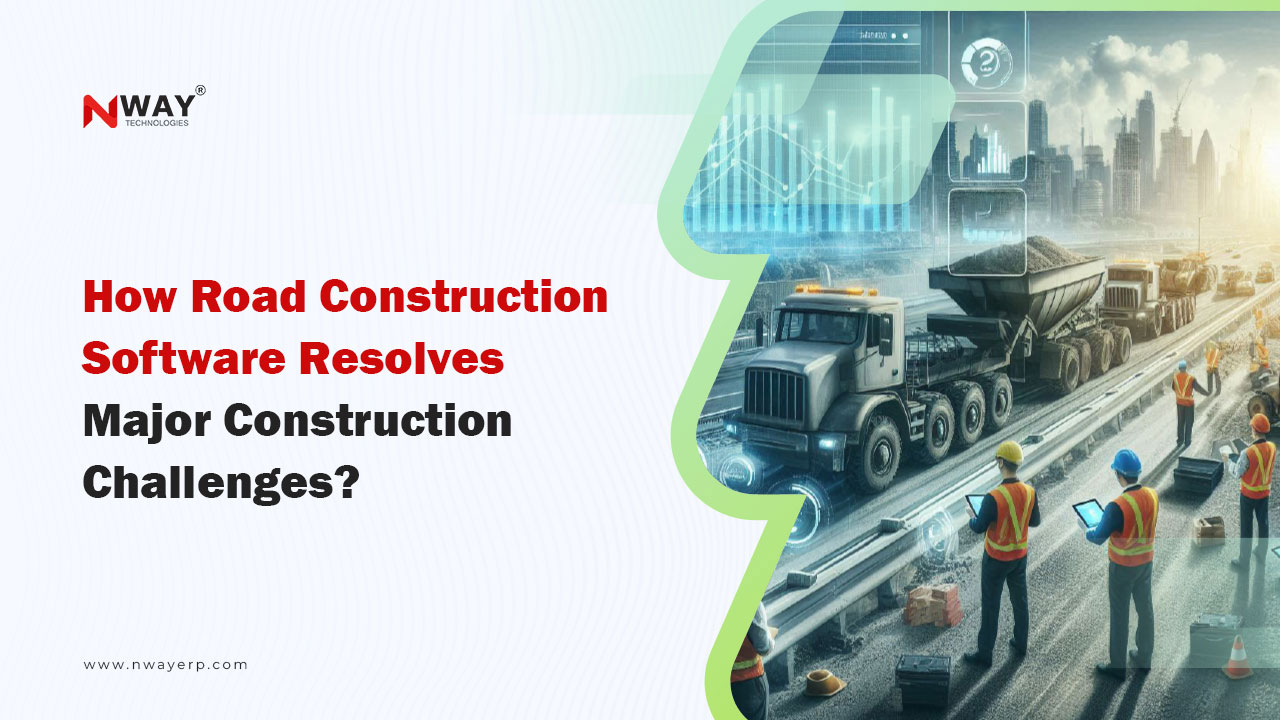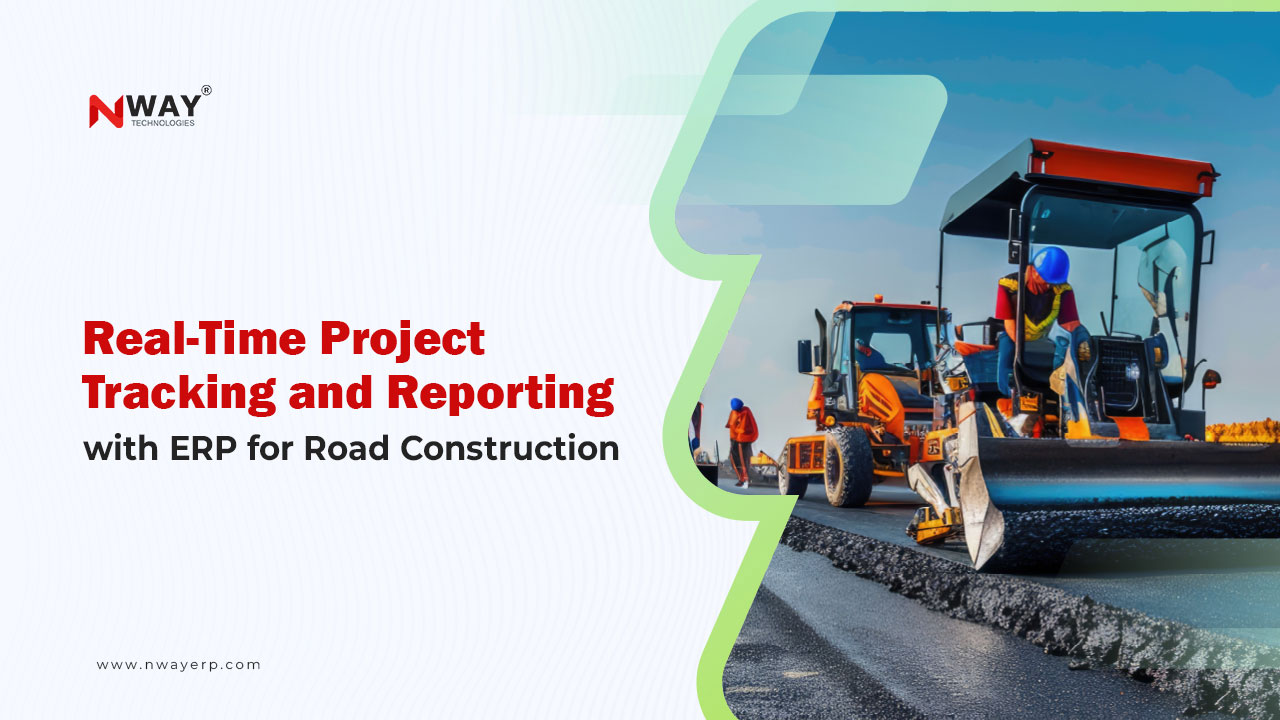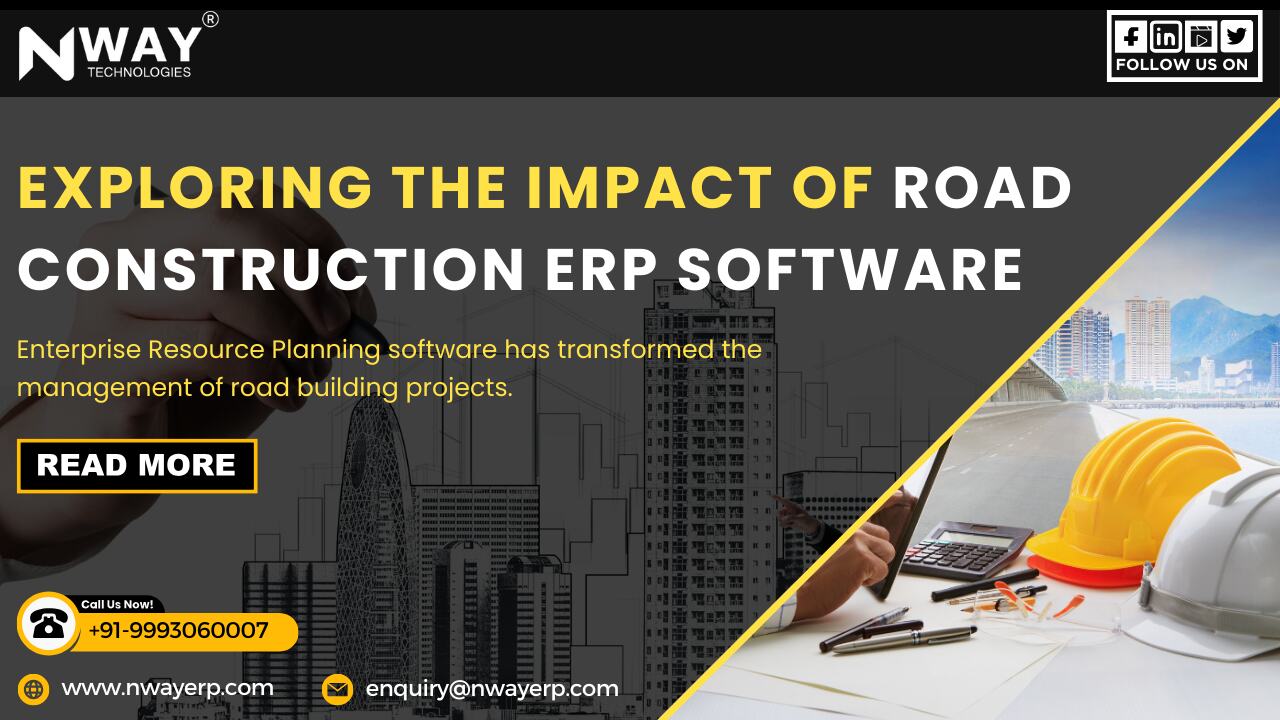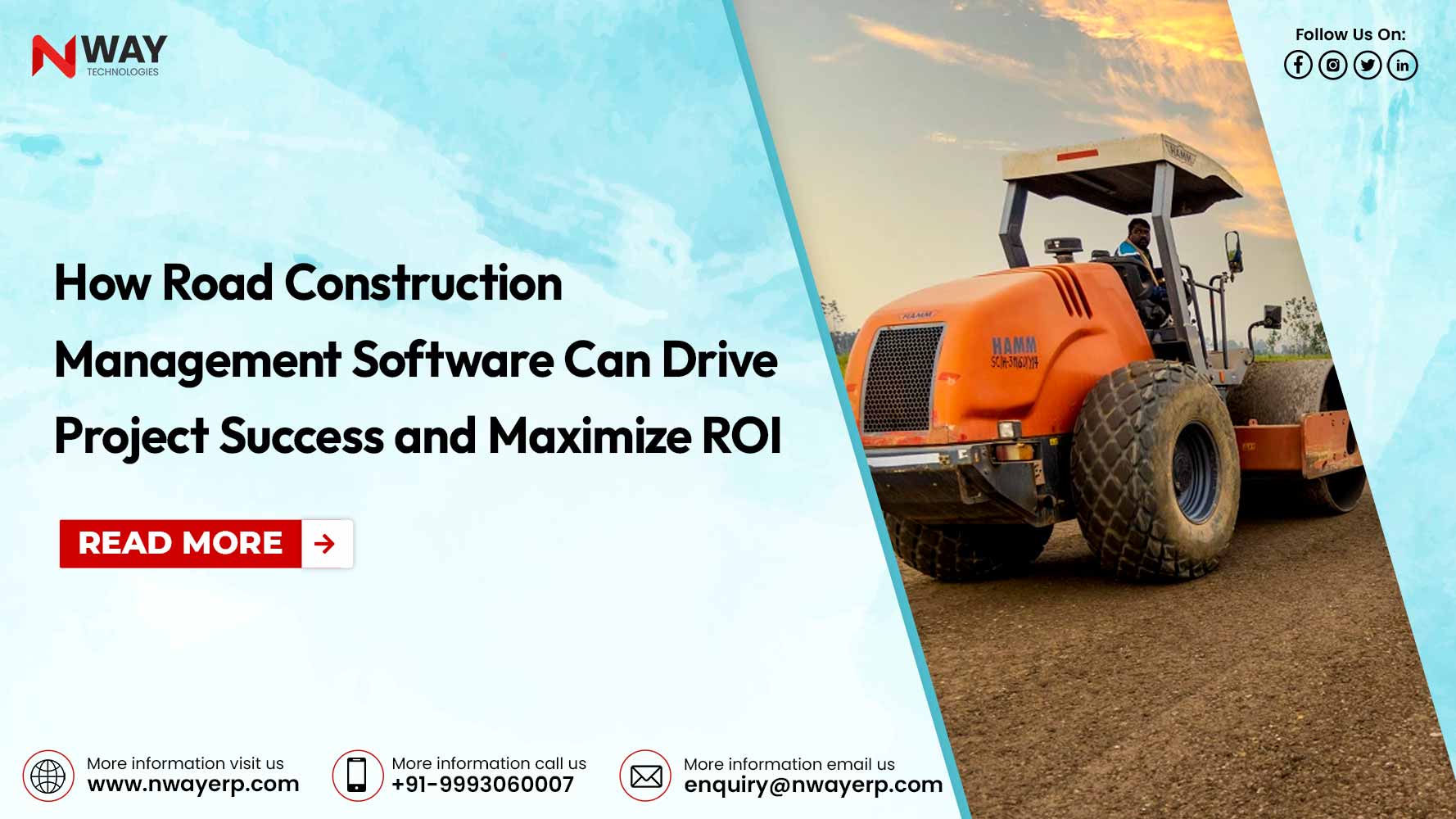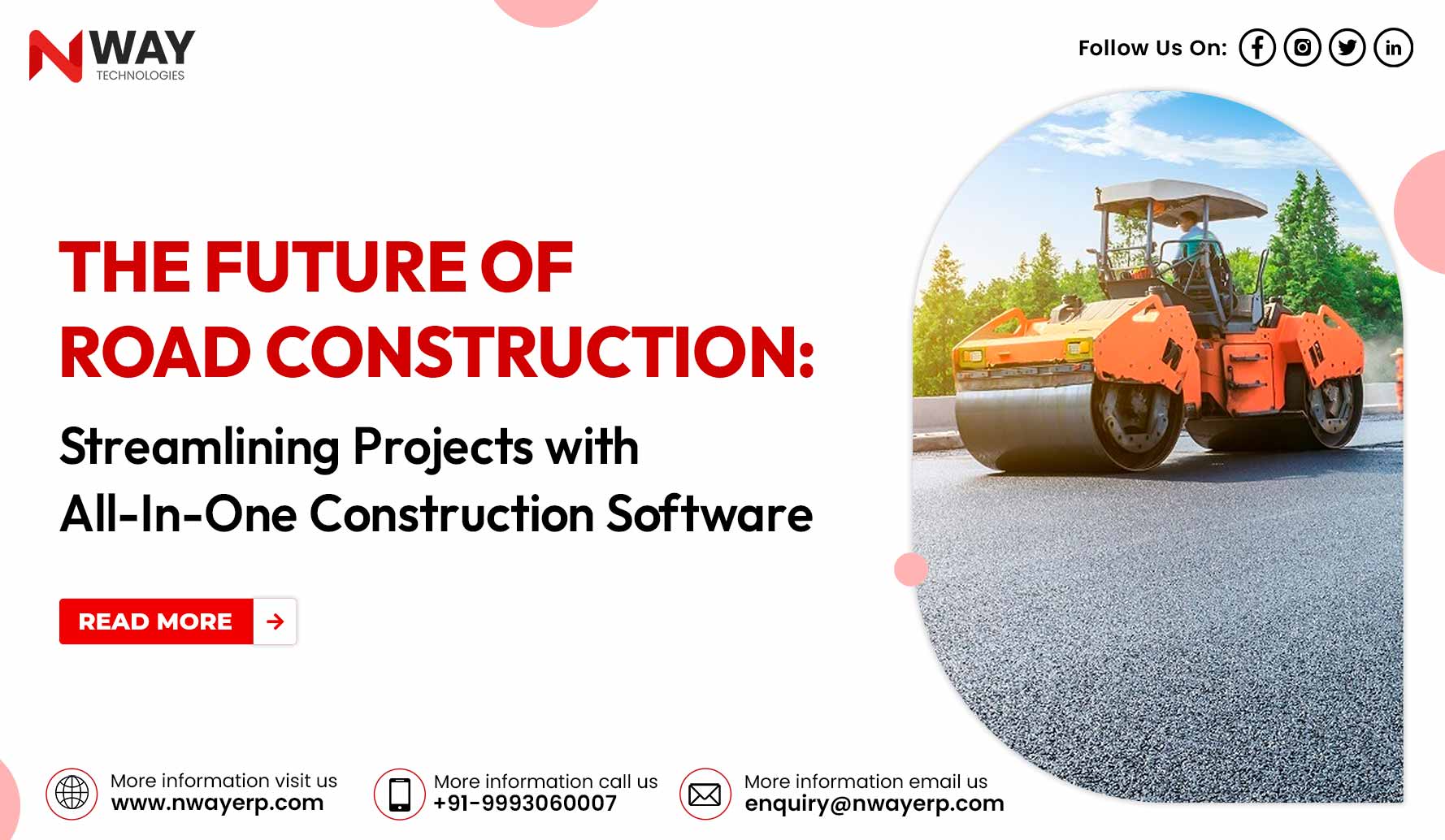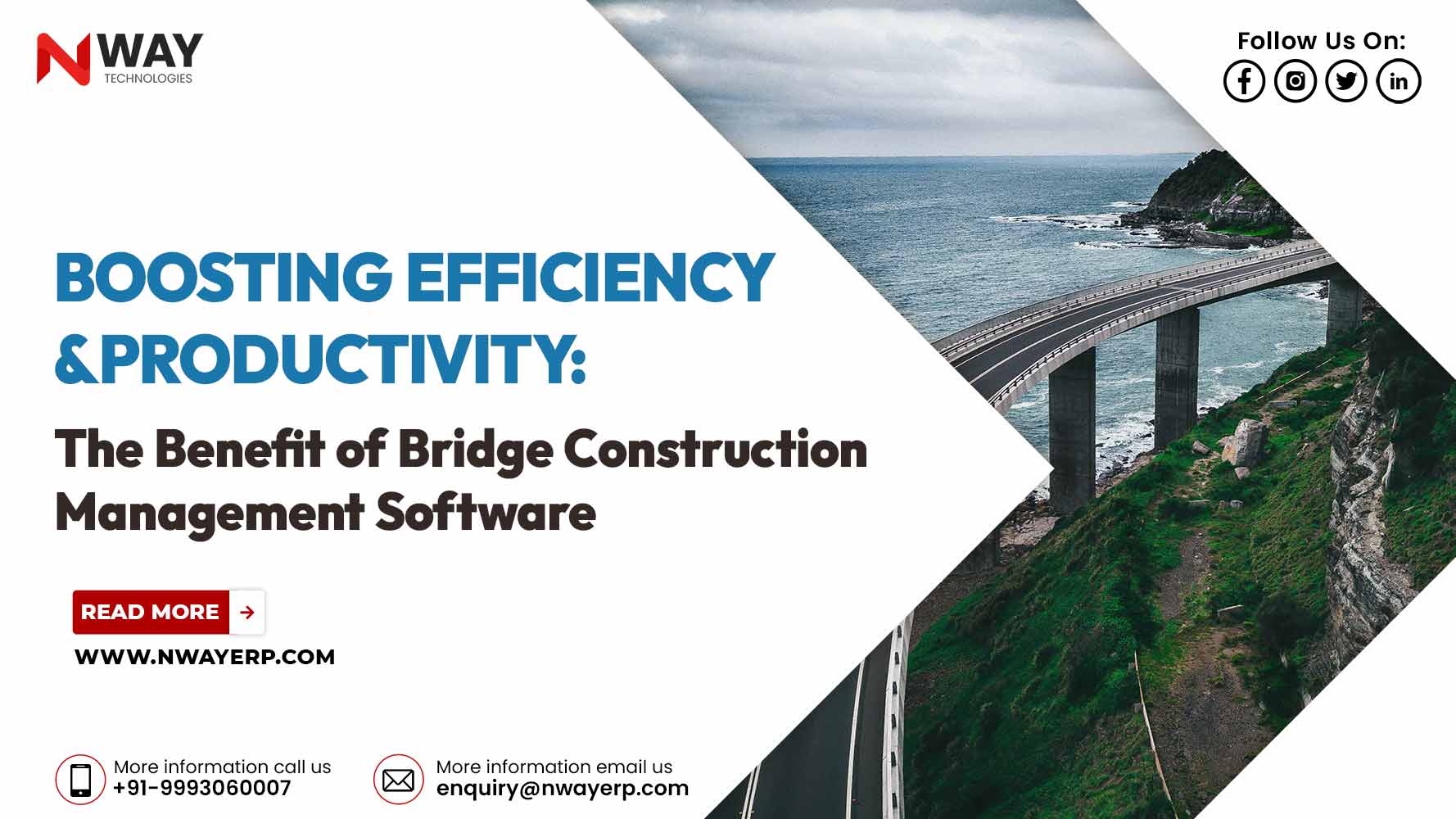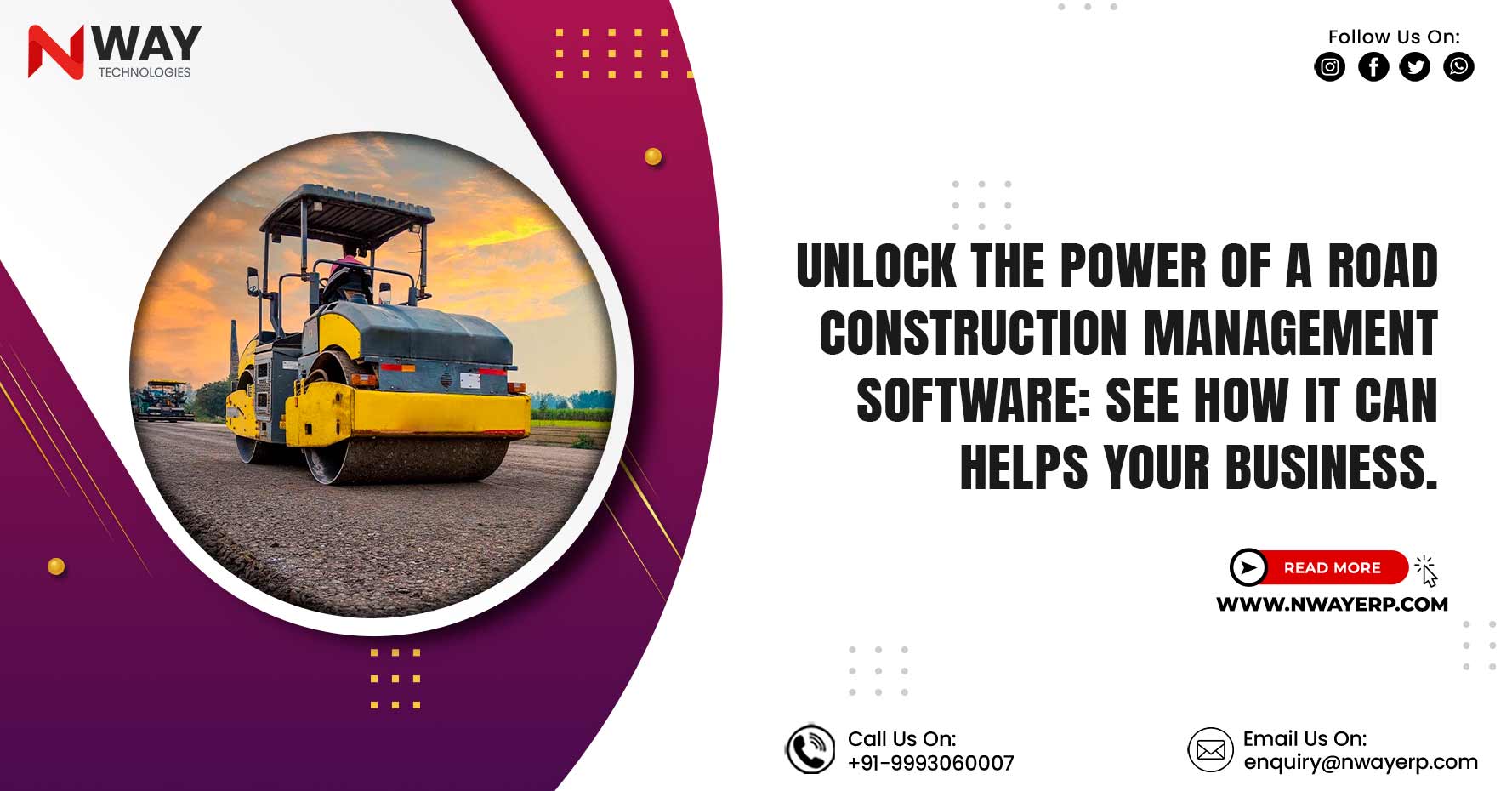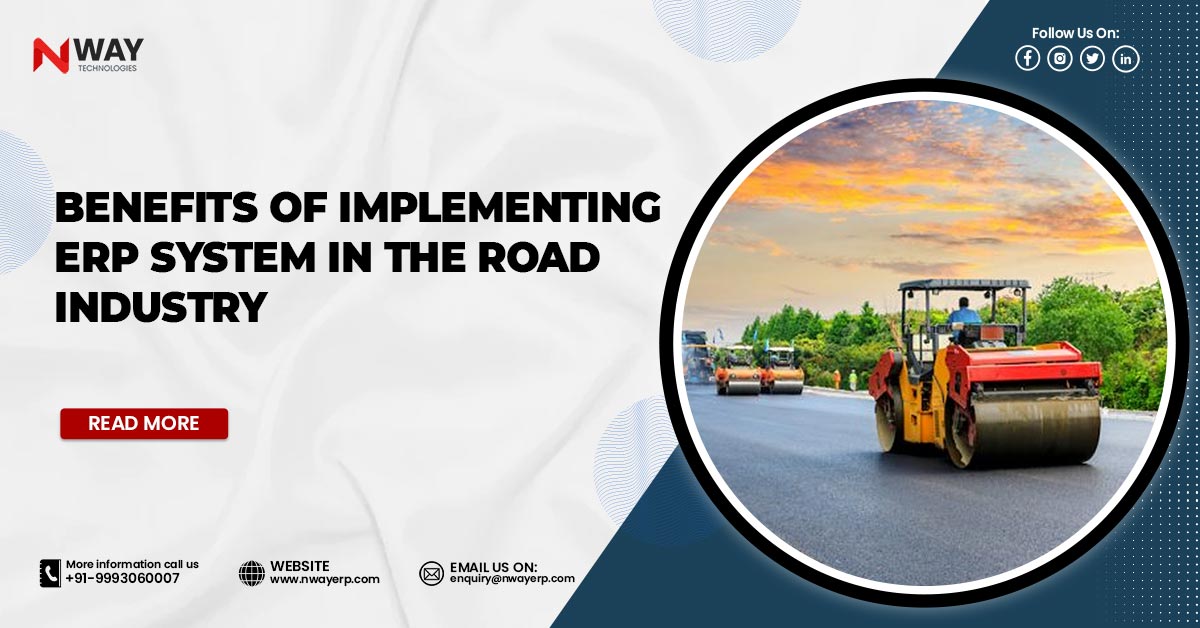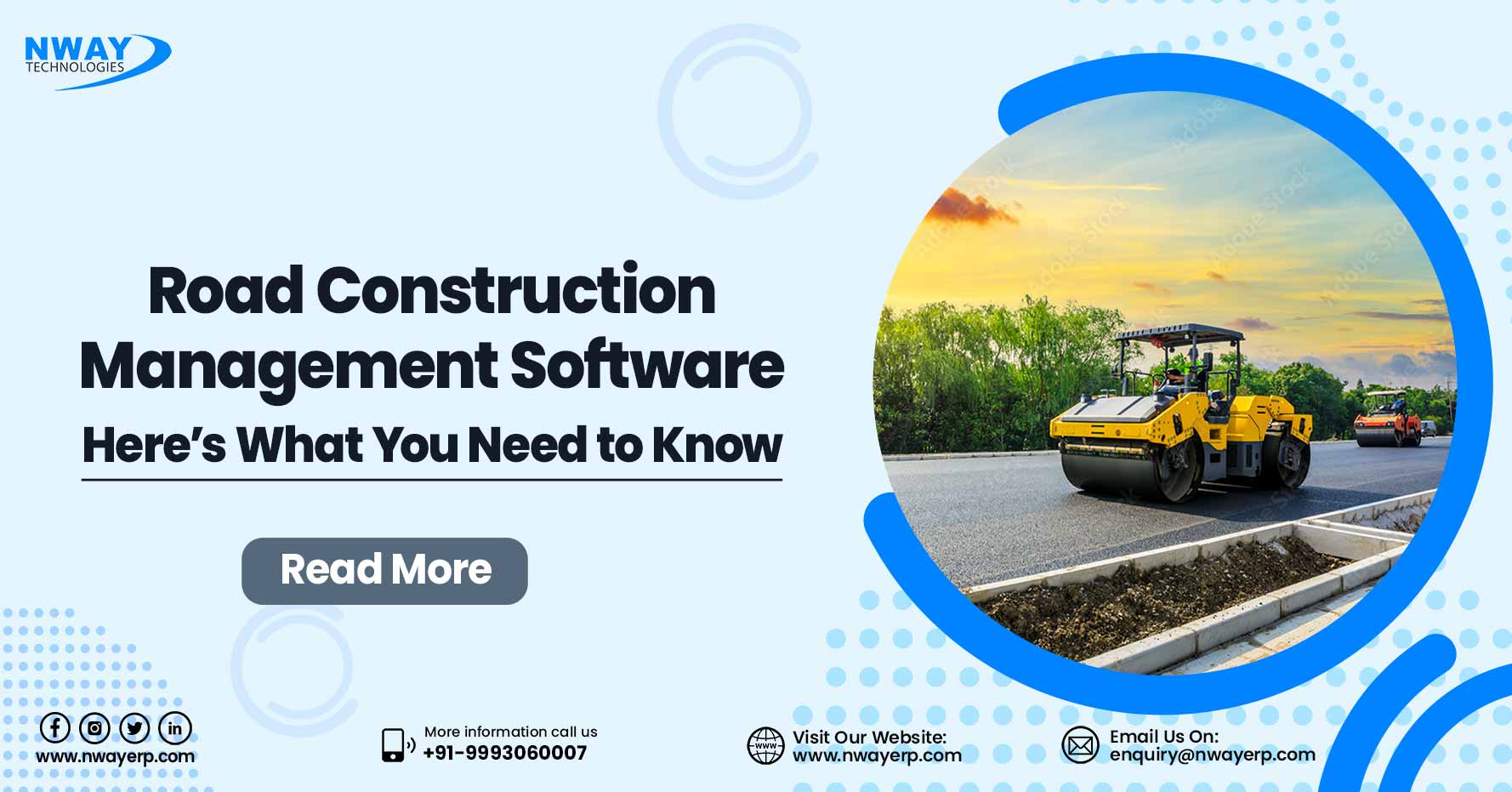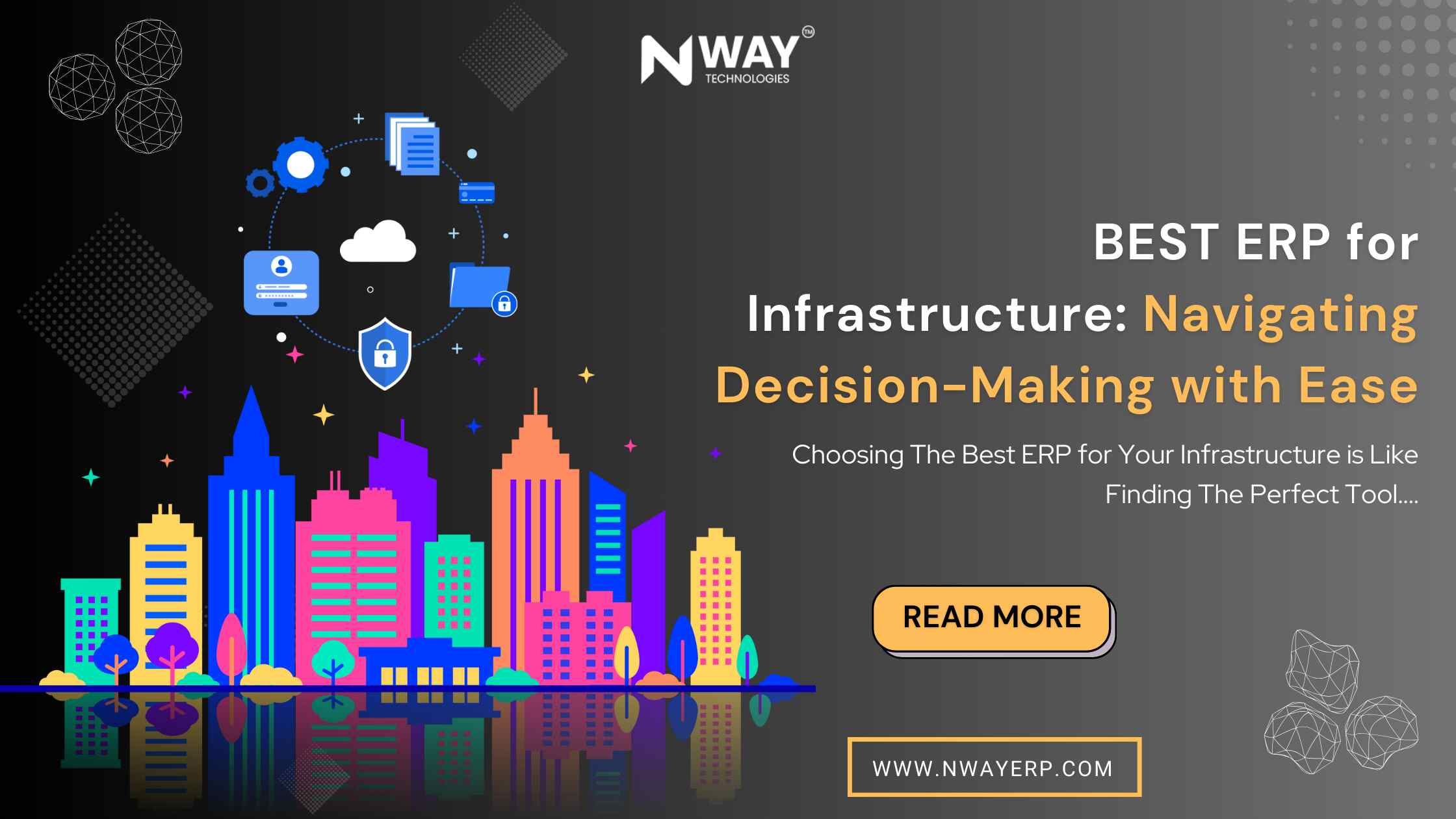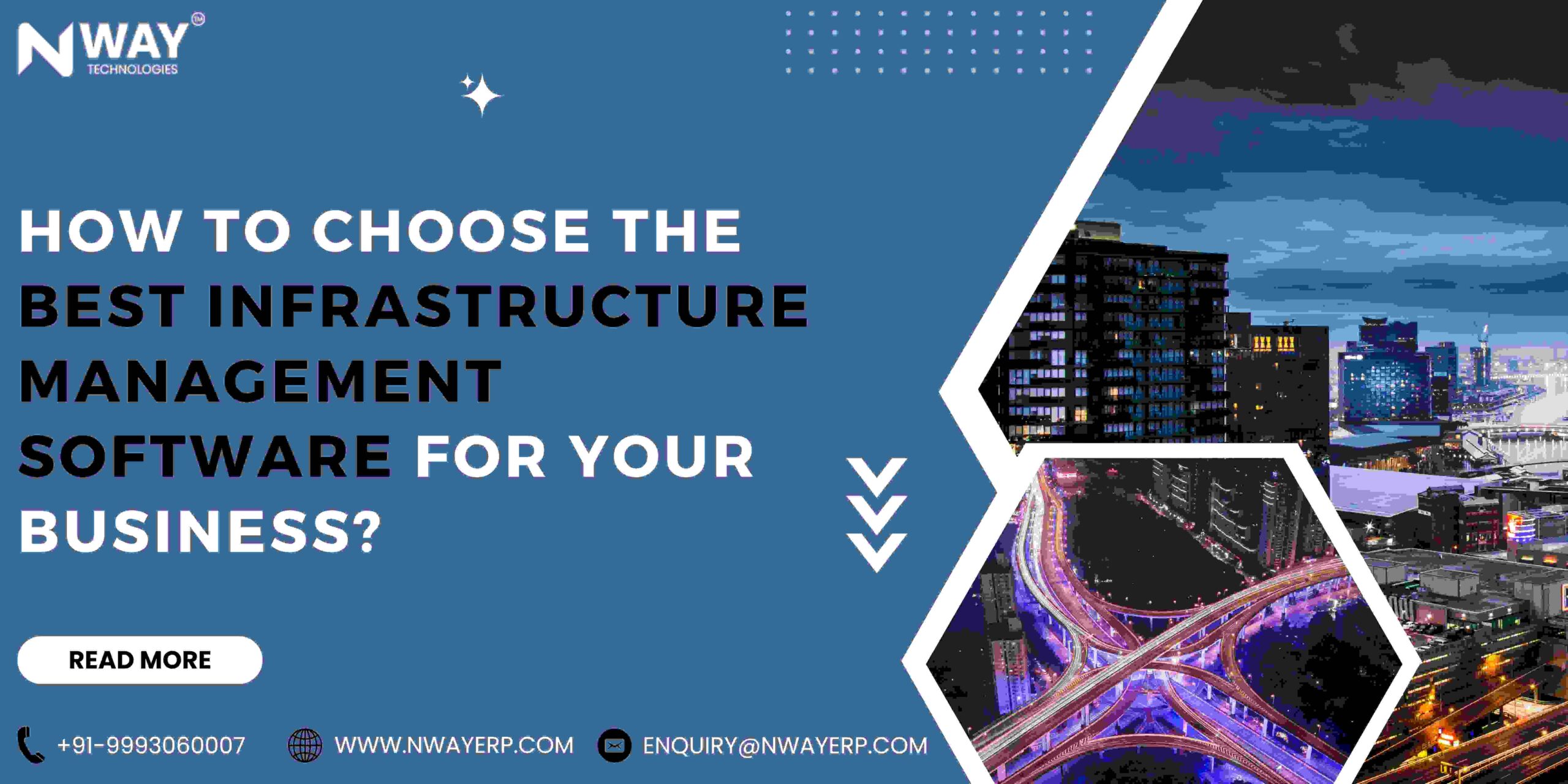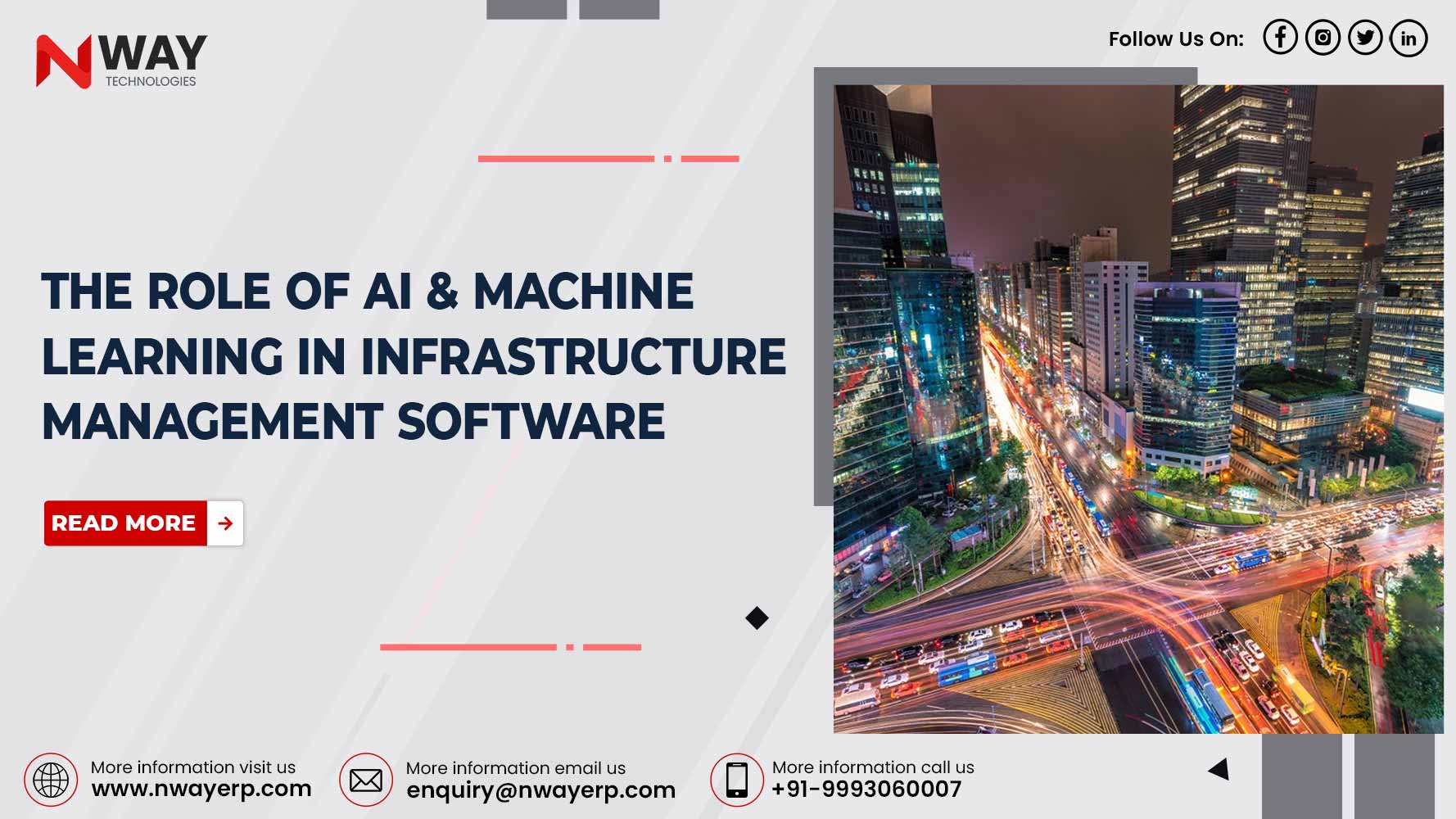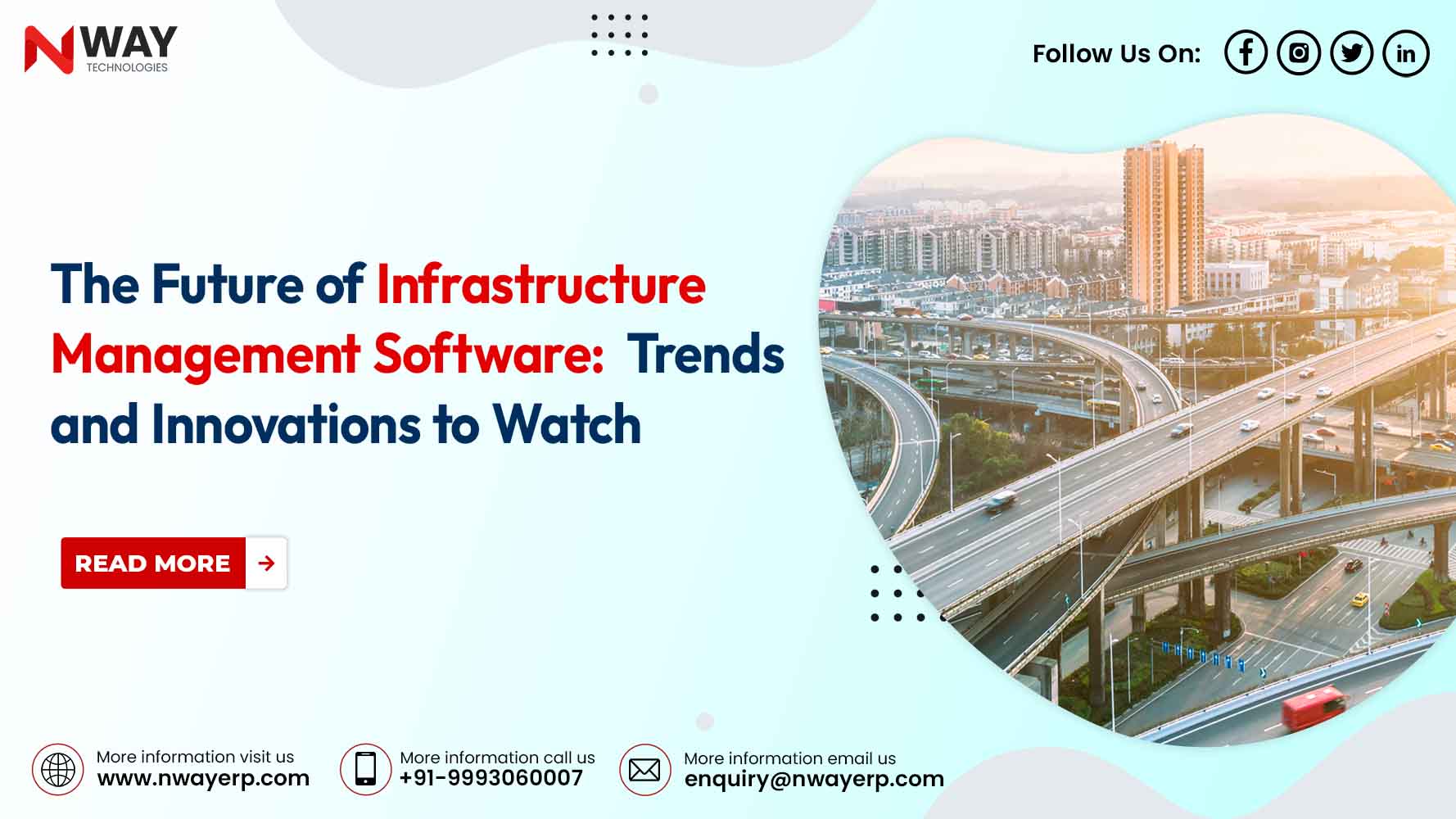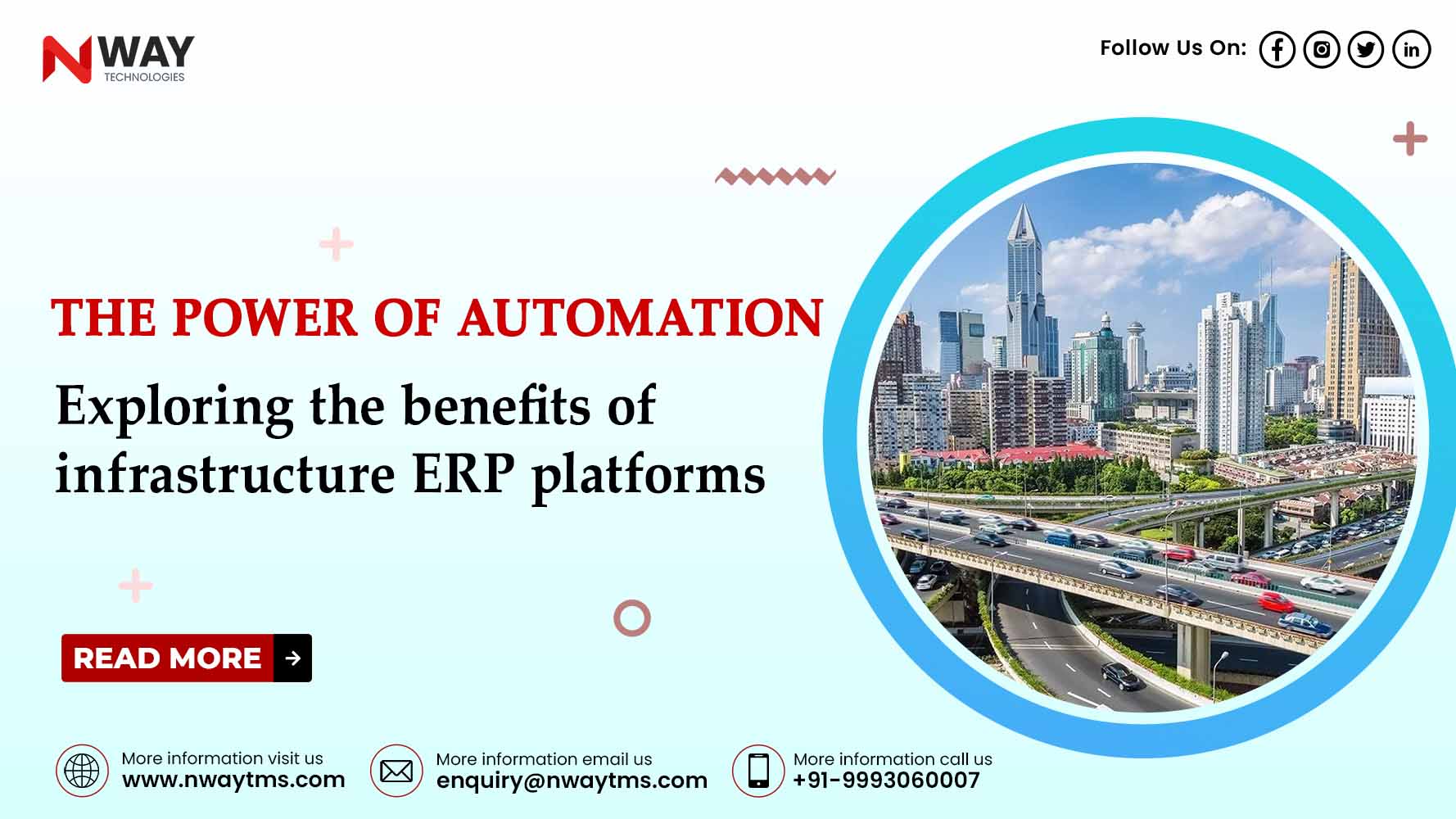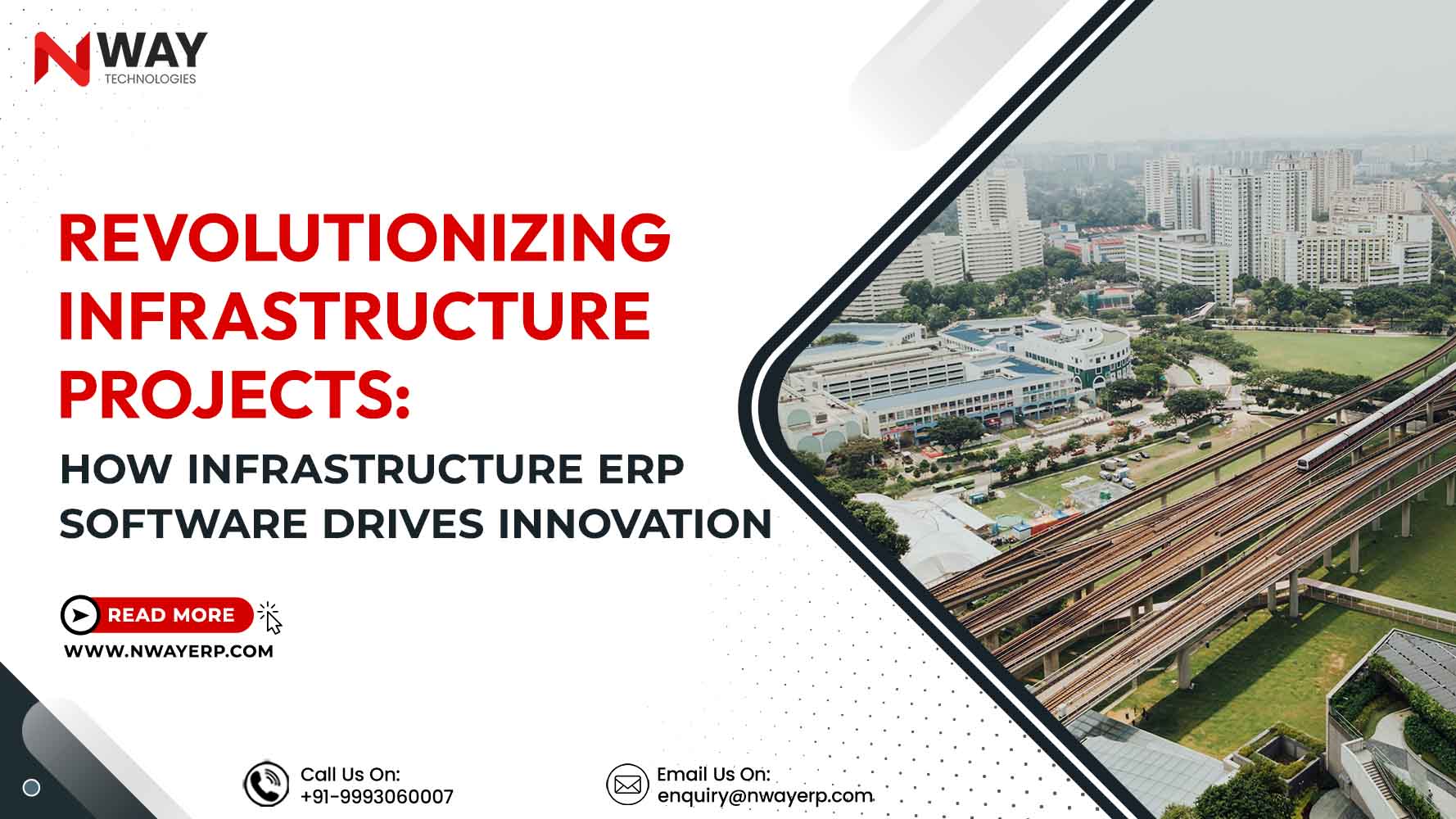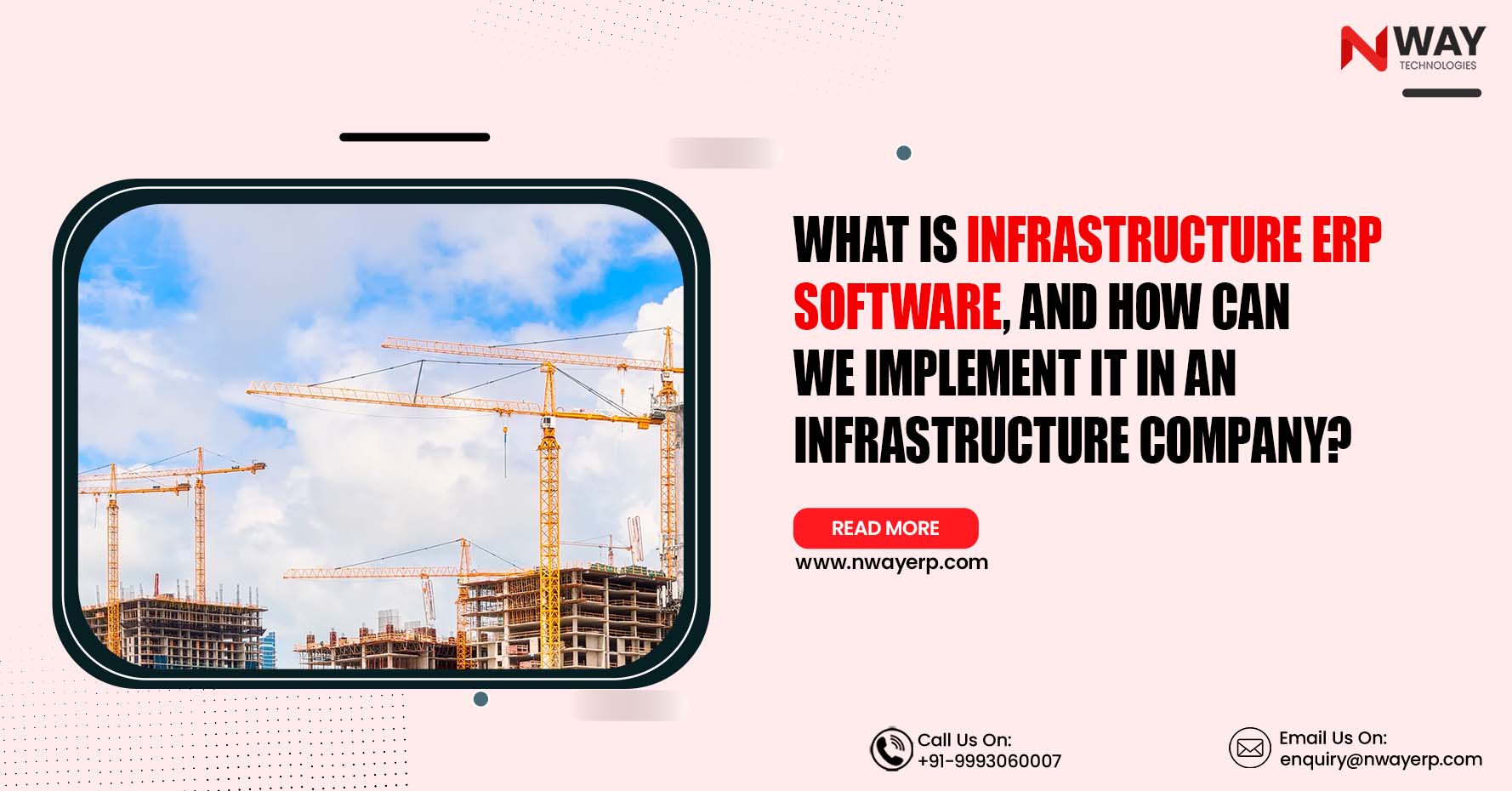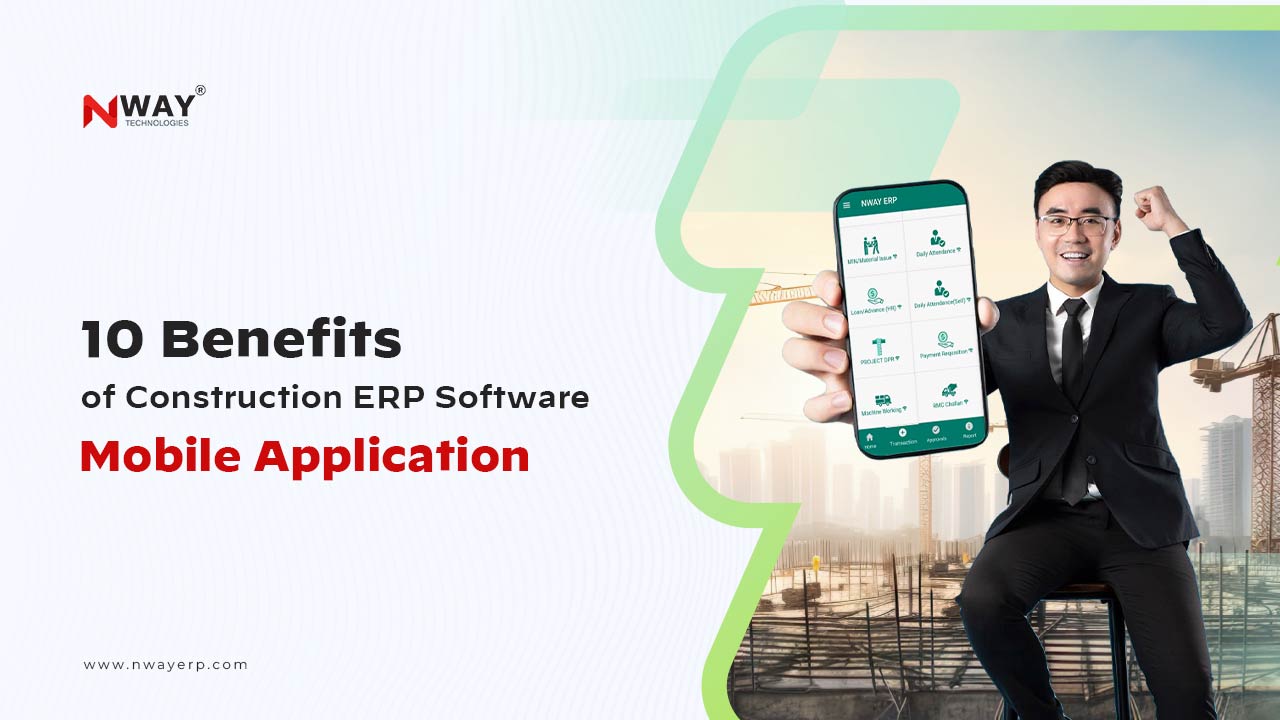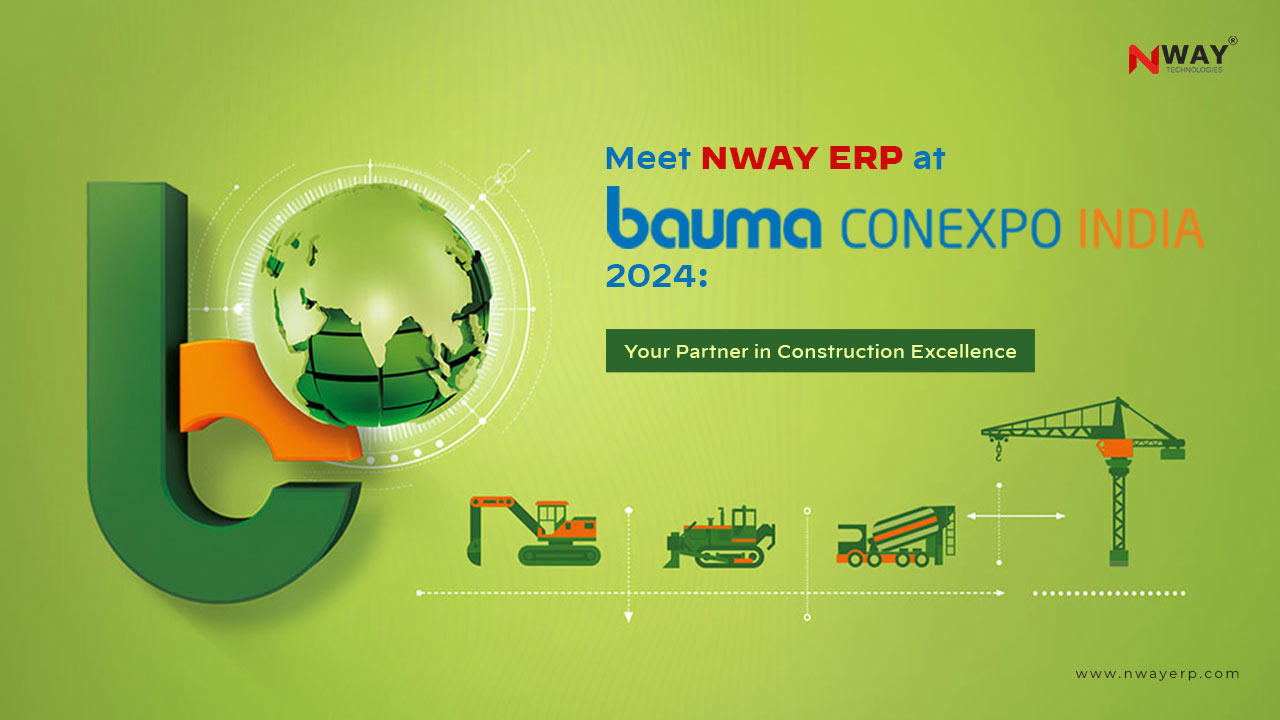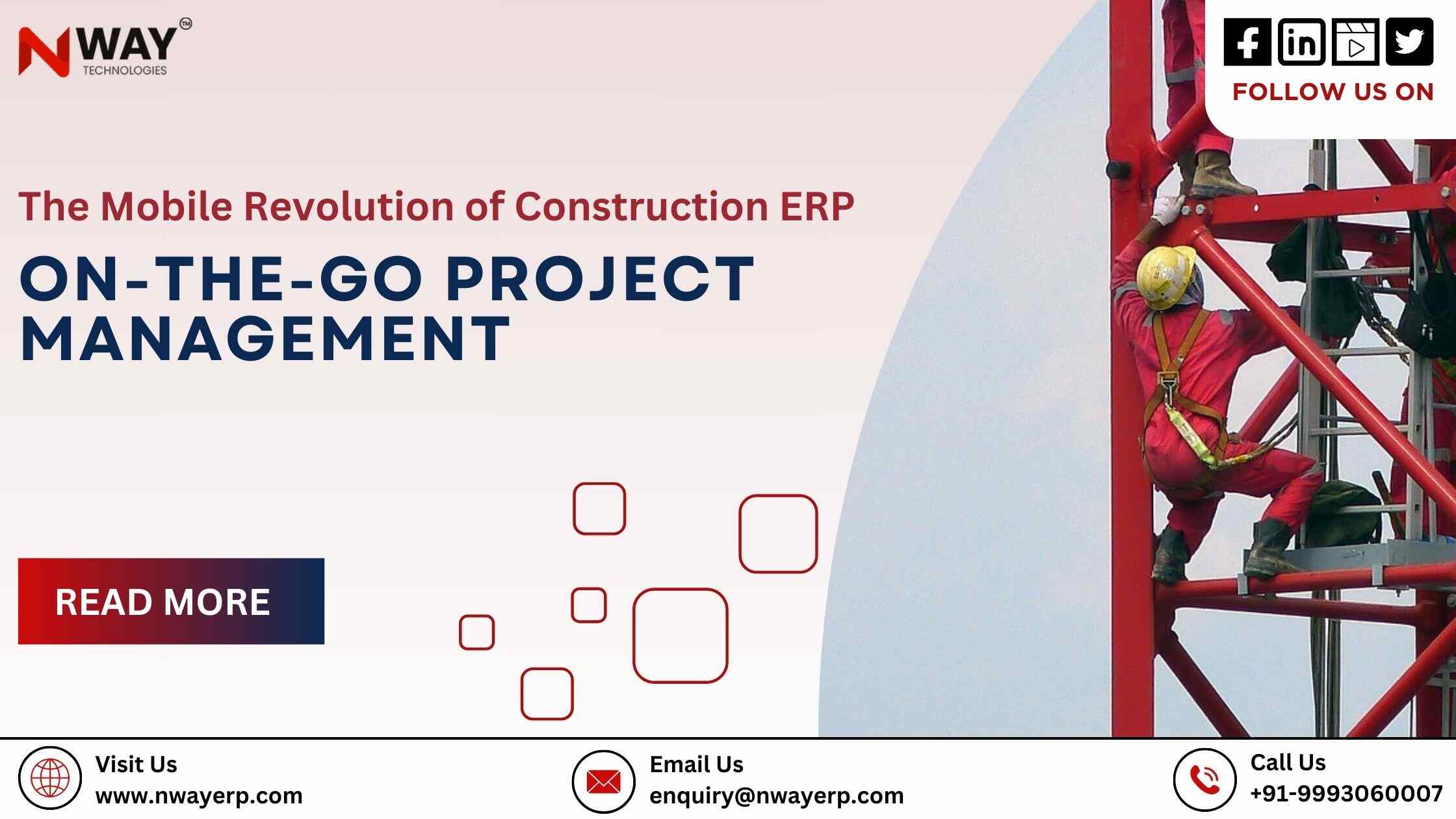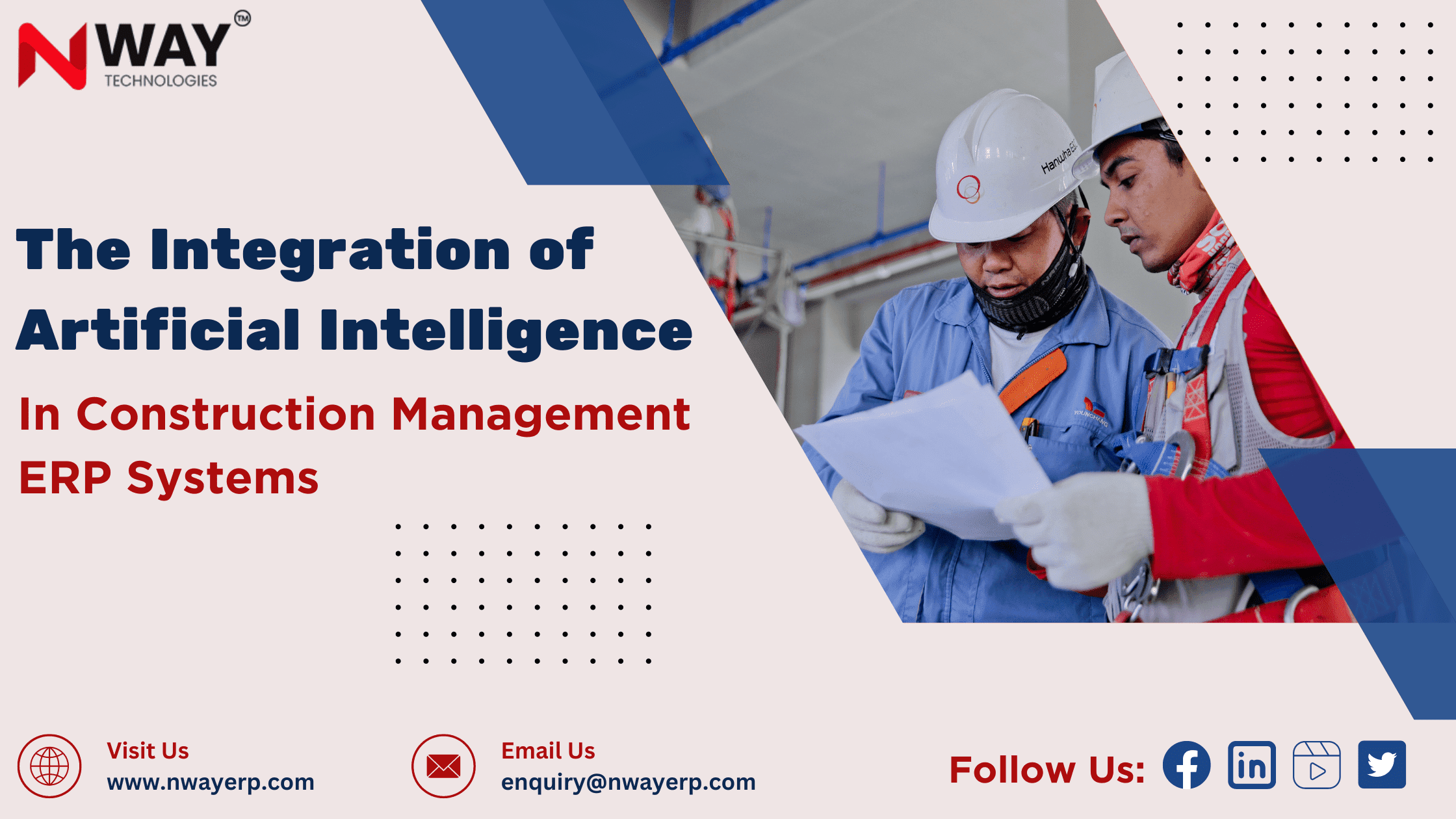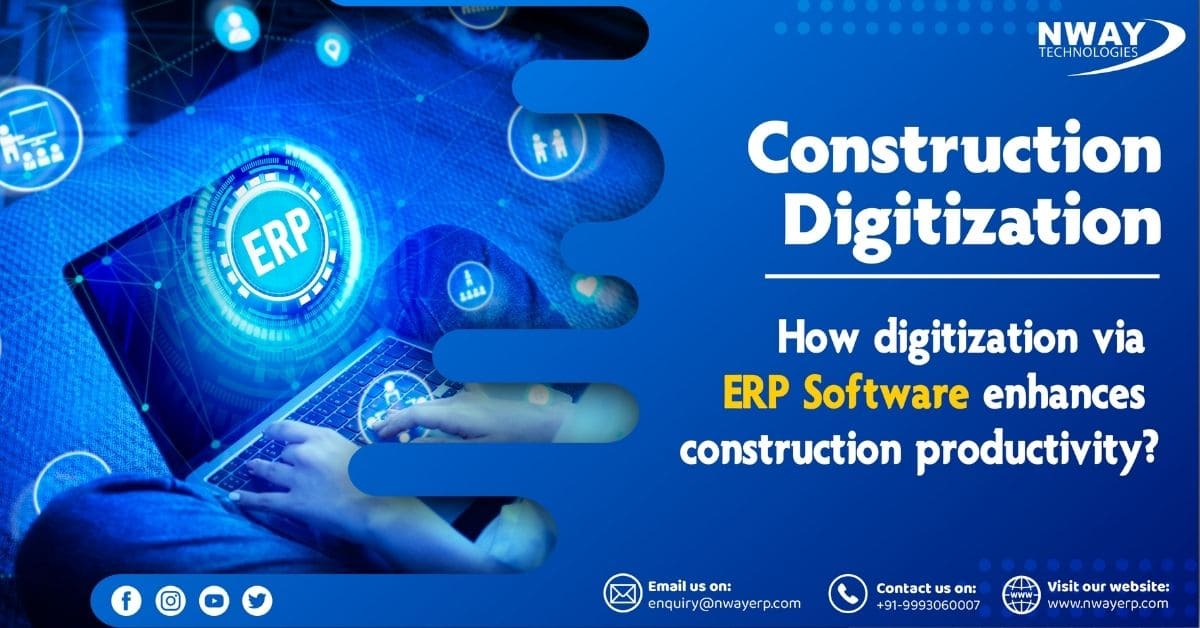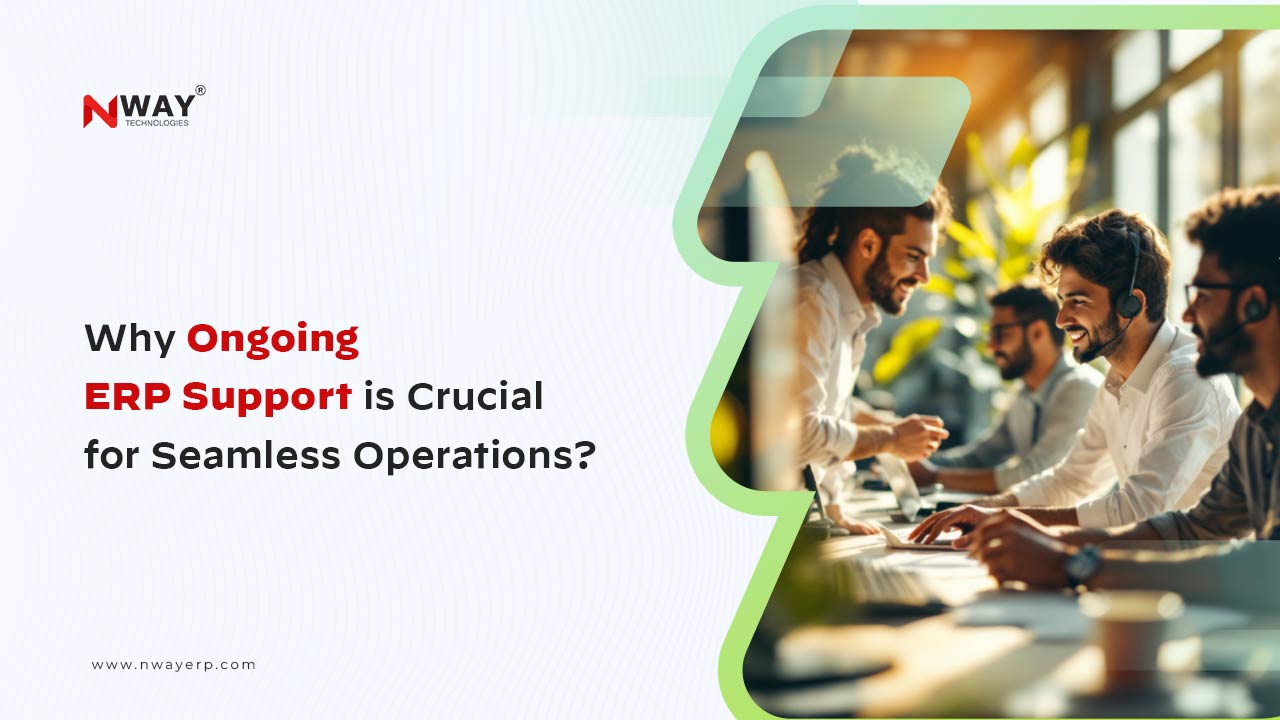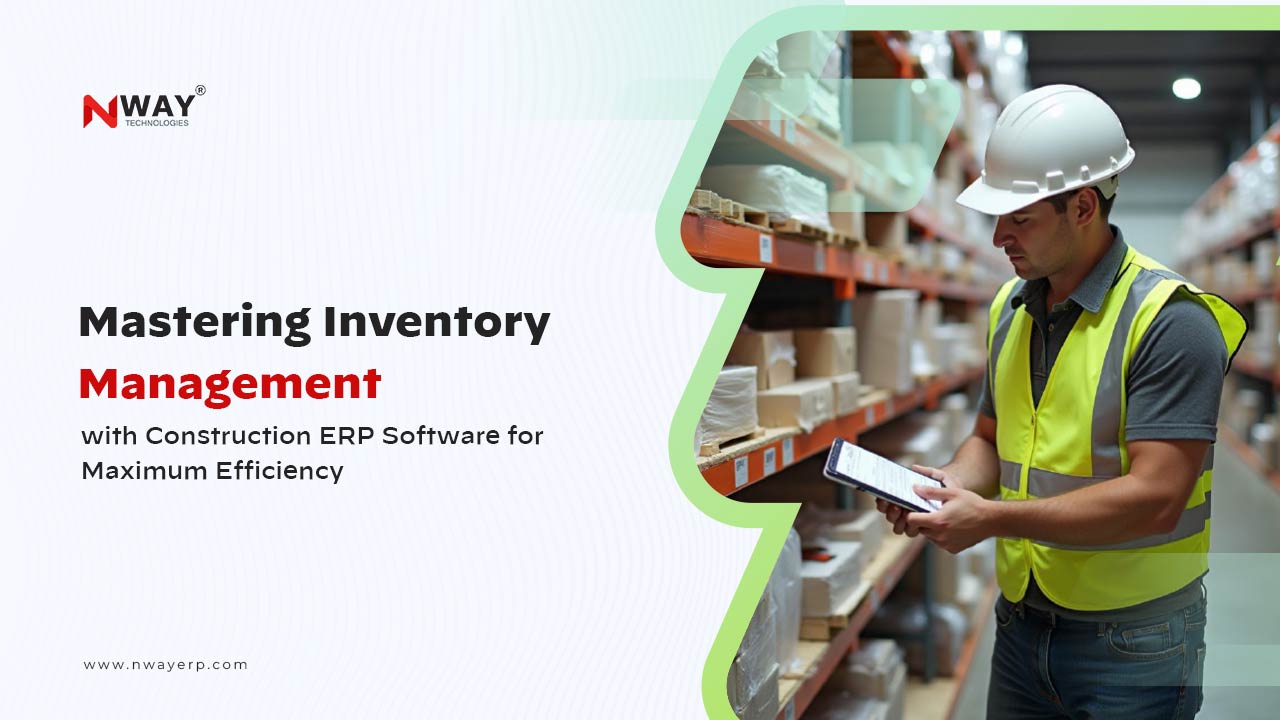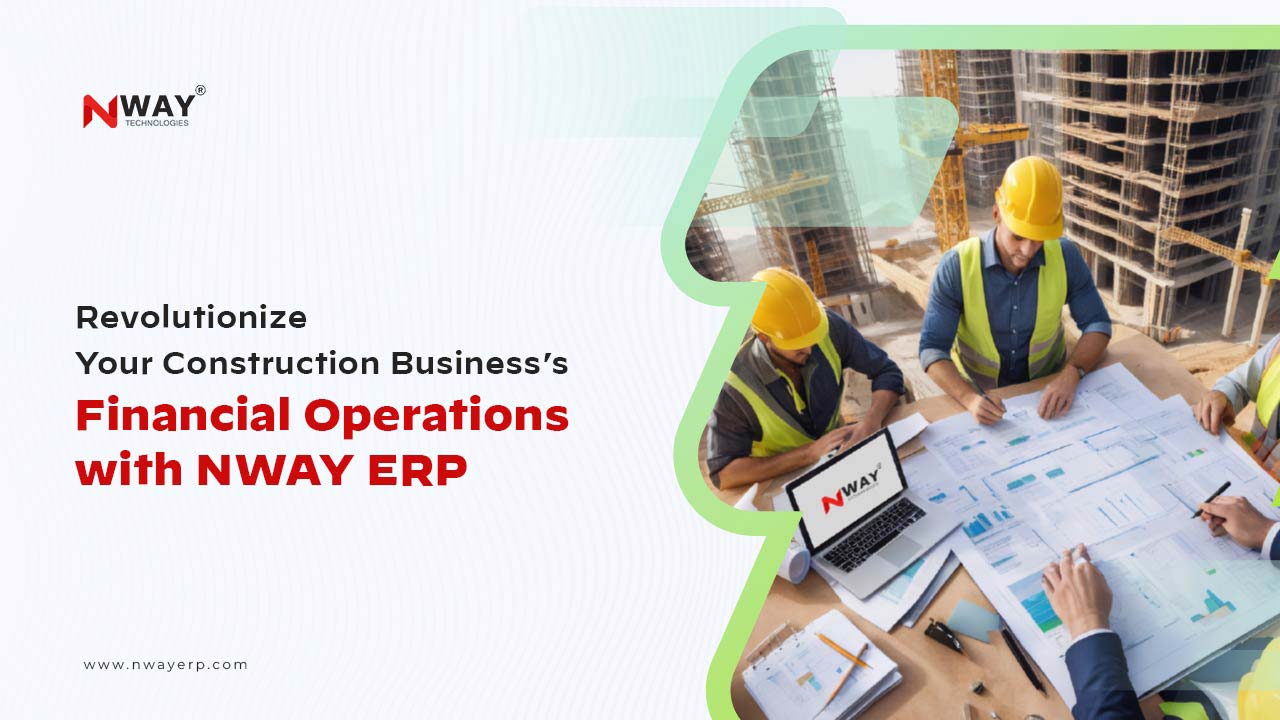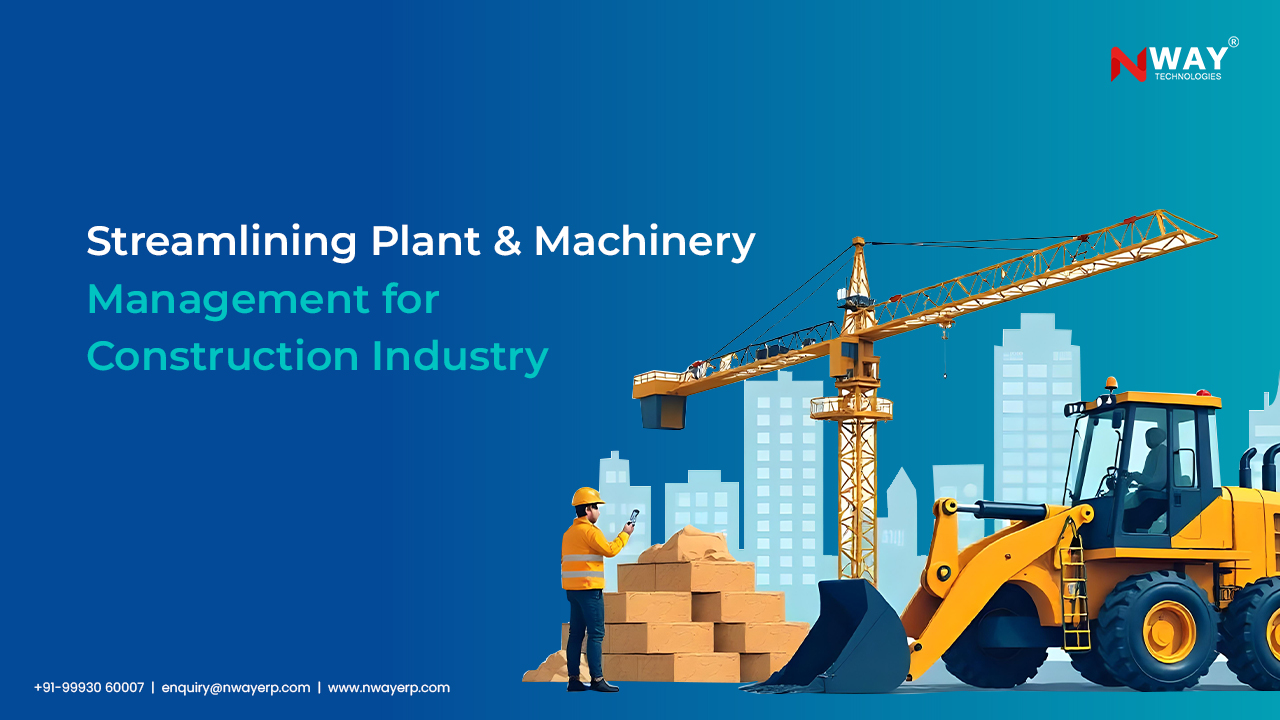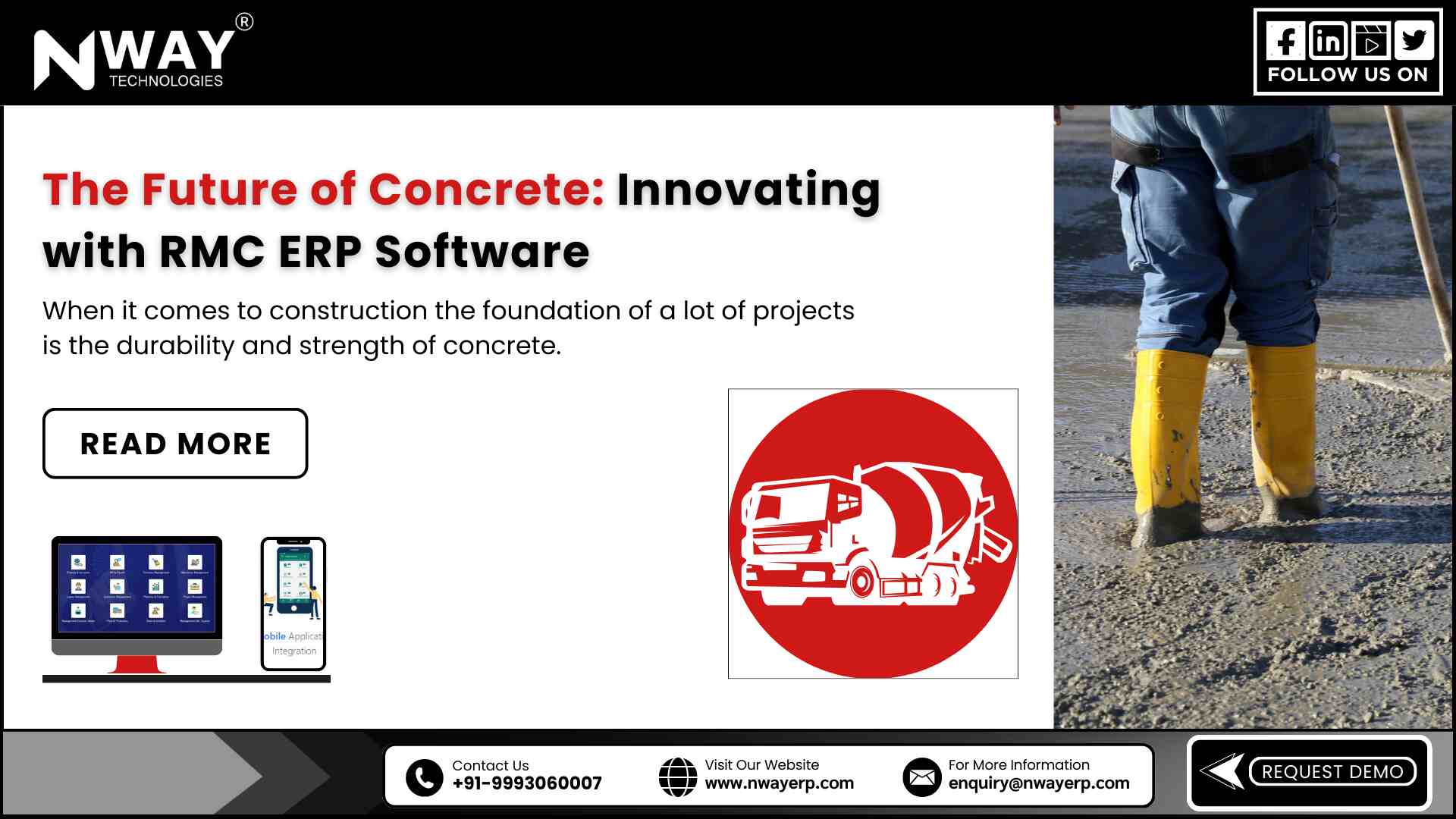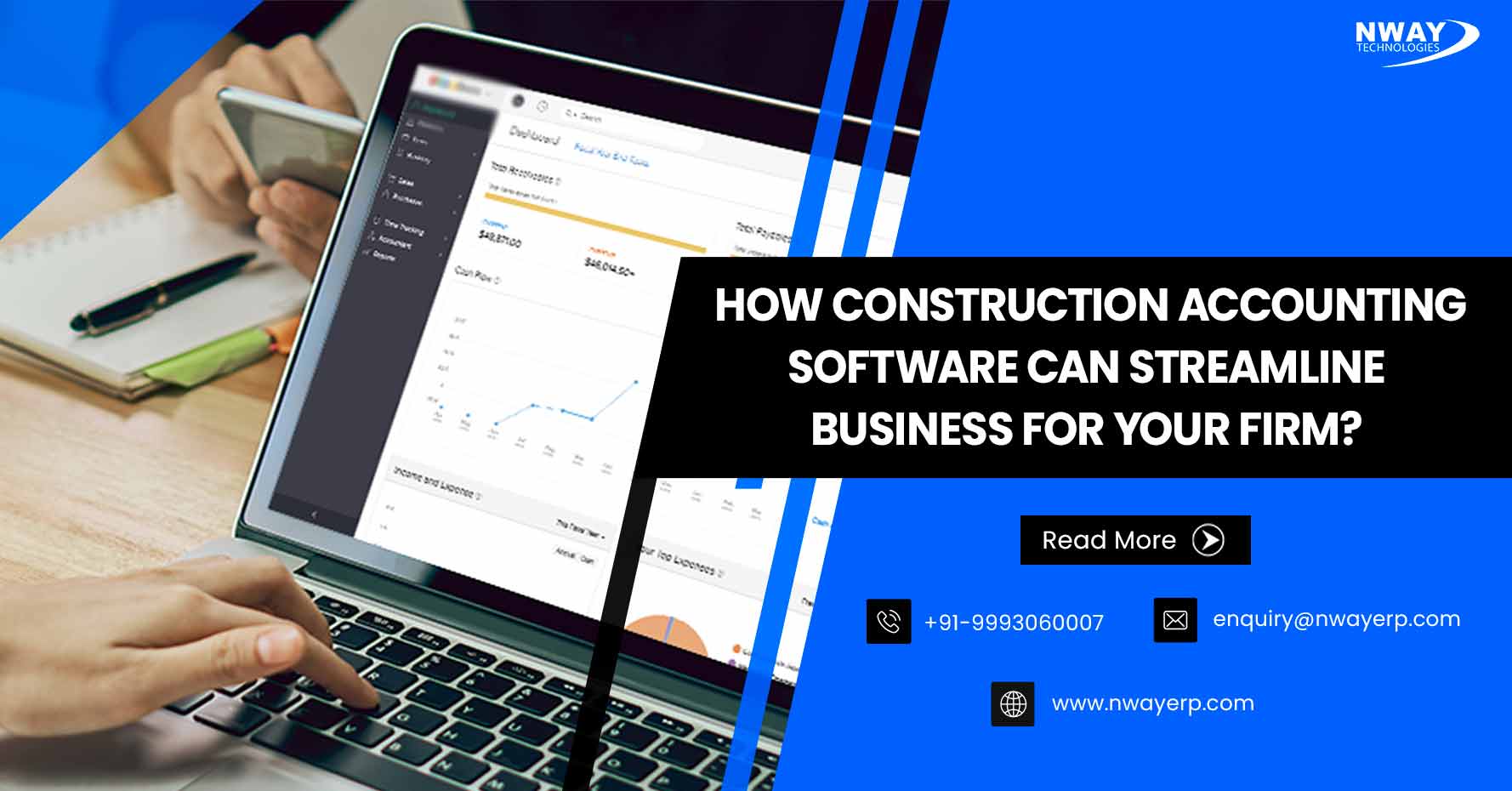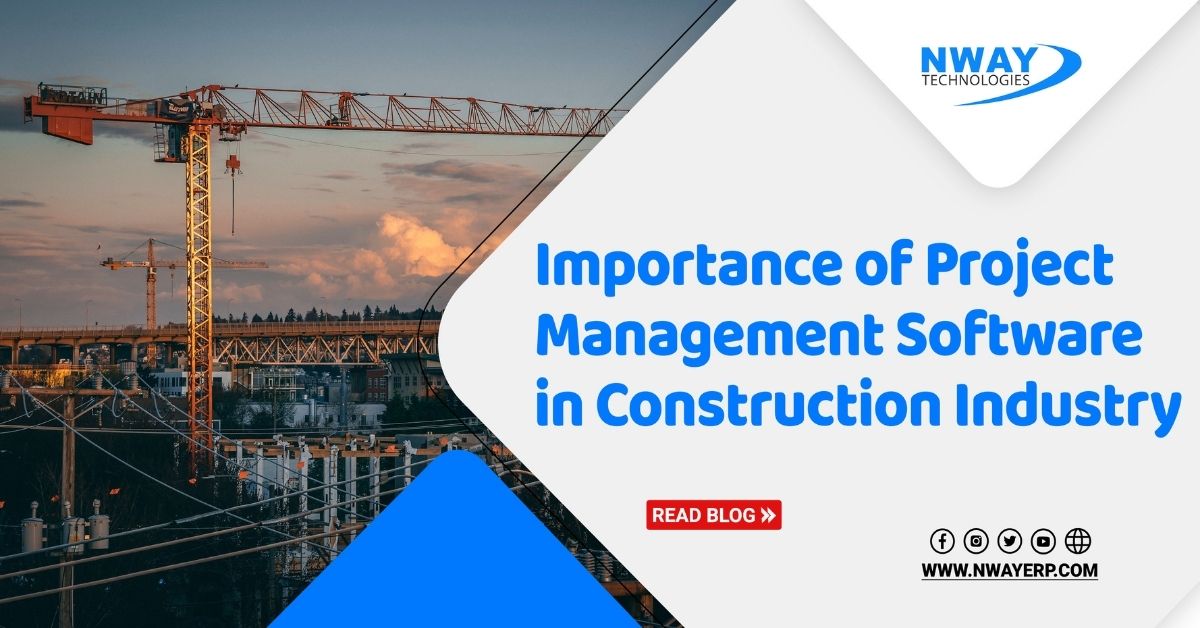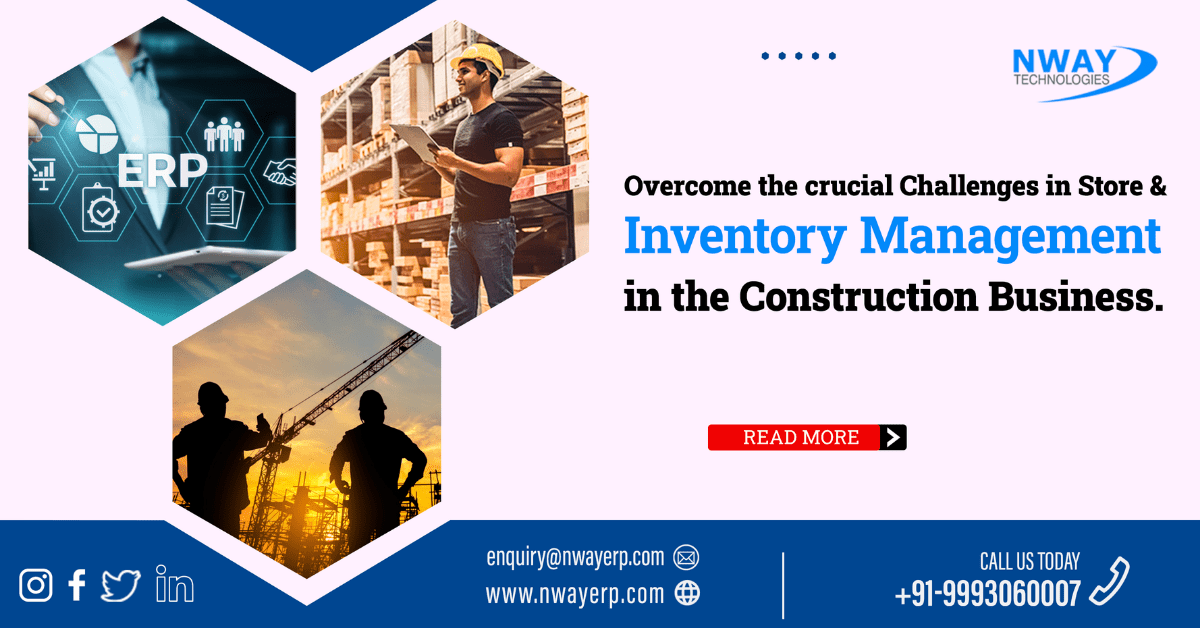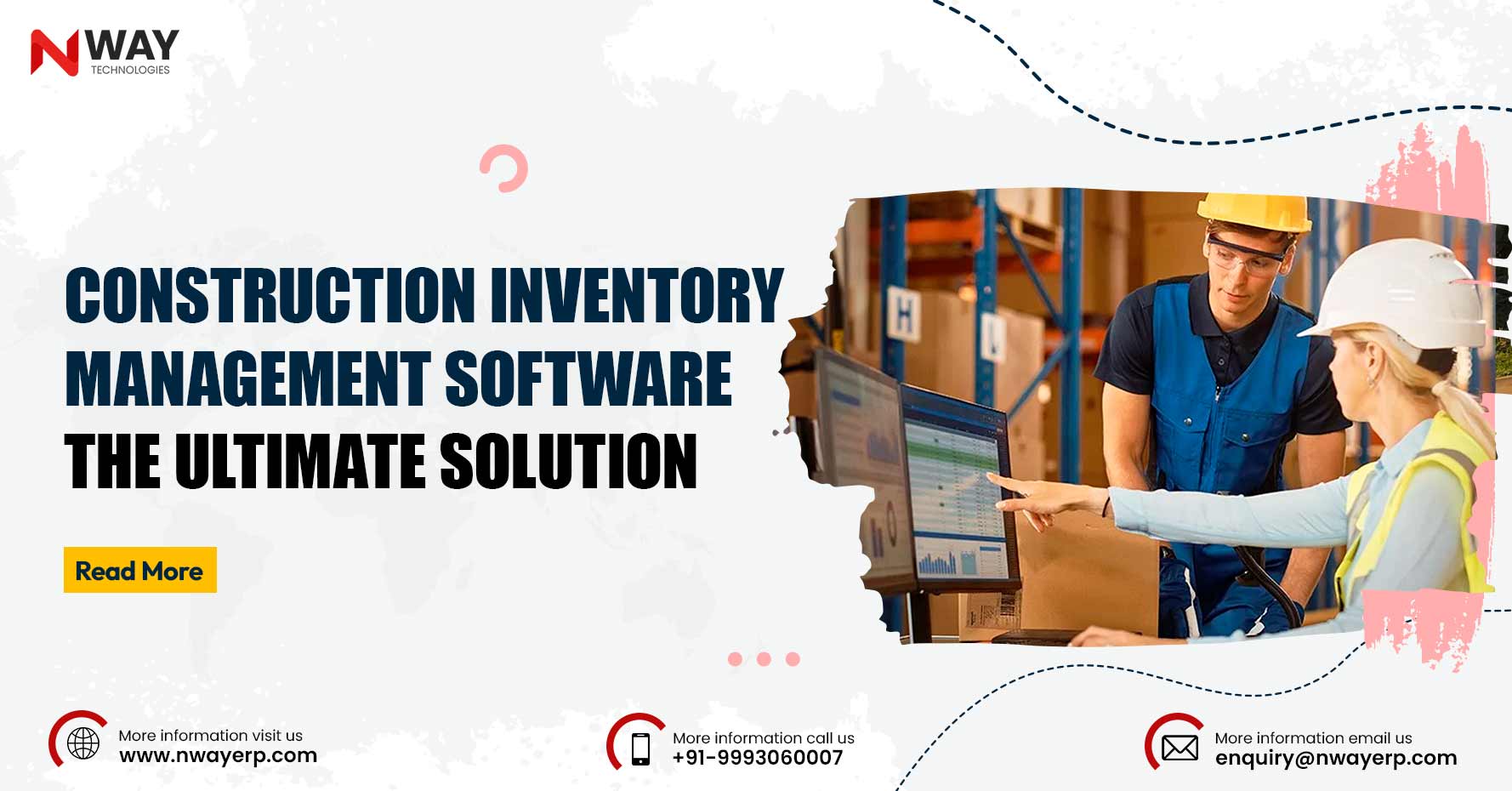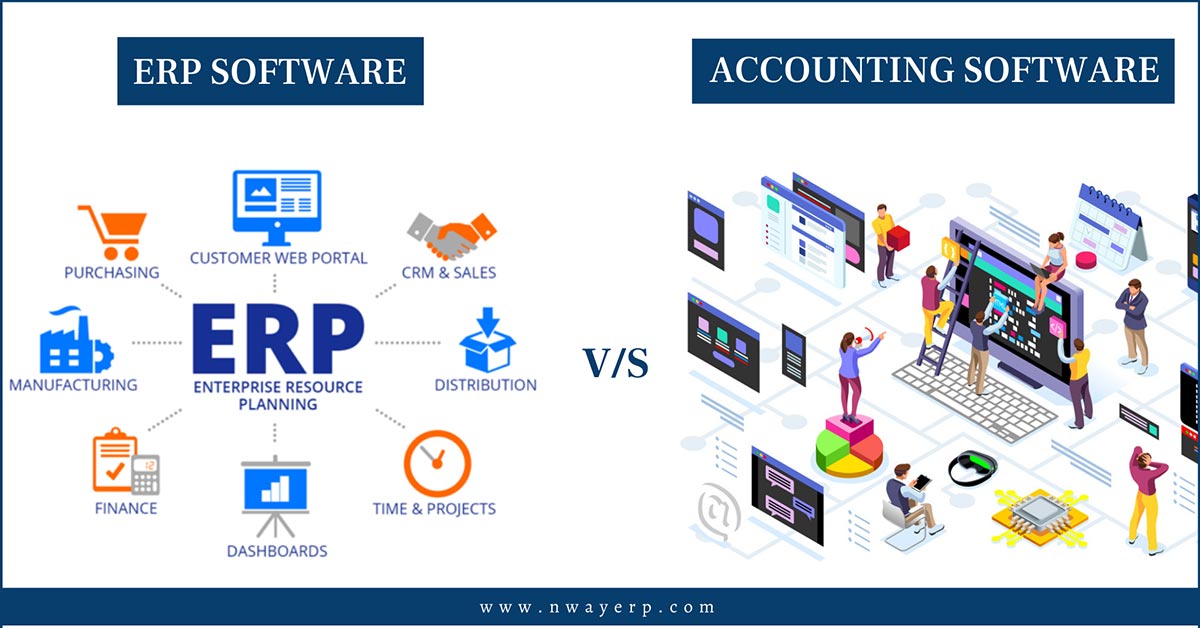Blogs
-
Sep 05 2024The road construction industry is diverse and multifaceted. It involves numerous tasks like planning, budgeting, resource management, procurement, and compliance. Managing these tasks manually or through disconnected systems often leads to inefficiencies, cost overruns, delays, and poor quality. An ERP in road construction can help streamline all the operations associated with any road construction project. It integrates various functions into a unified system providing real-time data, automation, and streamlined workflows. In this blog, let’s discuss how road construction ERP software helps improve road construction processes. Reasons How Can a Road Construction ERP Software Help Streamlining Project Planning and Estimation Accurate Estimations This is one of the most crucial phases in road construction. An ERP system plays a vital role by providing accurate cost estimates, timelines, and resource requirements. A road construction ERP makes it easier to generate precise forecasts and create project schedules efficiently. This also reduces the risk of underestimating costs leading to efficient project execution and management. Resource Allocation With ERP systems, contractors working on road construction can manage and allocate labor, materials, and equipment based on real-time project needs. This also helps in optimizing resource utilization, reducing wastage, and preventing bottlenecks. Enhancing Material Management Real-Time Inventory Control
-
Aug 27 2024In the modern world, business industries worldwide are increasingly opting for digital transformation. The construction industry is also expanding rapidly, having complex operations involving multiple stakeholders. It is paramount for the construction industry to opt for a technology that can streamline their operations. An ERP can specifically act as a bridge to solve all the complex tasks in the construction industry leveraging digital transformation to the manual workings. With ERP integration construction companies can streamline their day-to-day tasks. Deep delve into this blog to learn how integrating with an ERP system can help construction companies transform their business ensuring smooth operations. To understand this more, let’s start with what is an ERP system. What is an ERP System? Enterprise Resource Planning, known as ERP, is used by software companies to manage and integrate their business processes. An ERP in the construction industry can specifically integrate planning, purchasing, inventory, sales, marketing, finance, human resources, and all other operations. It can help various construction companies like road construction, infrastructure, pipelines, stone crushers, railway construction, and more. This level of integration and visibility is crucial for managing complex projects, ensuring compliance with industry regulations, and delivering projects on time and within budget. A
-
Aug 22 2024The construction industry is known for its complexity at various locations, projects, and sites, especially when it is for road construction, infrastructure, real estate, pipelines, stone crushers, RMC plants, and more. Managing finances effectively ensures project success, profitability, and operational efficiency. Construction companies often face various finance management challenges like budget overruns to cash flow management. There are a lot of dependencies on how the company manages accounting and financial management. Right from the ability to meet the day-to-day needs in the construction industry to maintaining healthy relationships with contractors, sub-contractors, and other parties in your construction business. With good finance management ERP in the construction industry, it is necessary to bring financial success right from each project success, to profitability, and operational efficiency. An ERP system makes it easy to bring the flare of effective financial management. Let’s explore the key financial management problems faced by the construction industry and how an ERP system helps manage these financial issues. Financial Management Challenges in the Construction Industry Cost Overruns Cost overruns are one of the most common issues faced by construction companies, it results in unforeseen expenses and poor budgeting. Without accurate tracking and monitoring, it becomes difficult to control
-
Aug 14 2024In today’s digital era, business industries are eagerly adopting technologies to help expand and automate major operations. Construction companies worldwide are also opting for technologies like ERP to streamline their major operations and enhance efficiency. Meanwhile, switching to new technology or opting for a new ERP in construction involves various data migration challenges. Let’s explore the common data migration challenges faced by construction companies and how a good software solution with effective implementation strategies can overcome those obstacles easily. What is Data Migration for Construction Companies? Data migration is one of the most important phases in the implementation of an ERP system. This involves the process of transforming data from legacy systems, spreadsheets, or documents into a unified ERP software. For the construction industry, this process is very complex as it involves vast amounts of data from different sources like various projects, sites, or locations, particularly from different departments like purchase, finance, inventory, HR, and Payroll. This involves huge risk, chances of errors, and data loss due to improper management and results in significant operational disruptions. Construction companies need to choose a good ERP system that not only targets easing out the operations and processes but also provides smooth data
-
Aug 06 2024The stone mining and crushing industry is highly competitive. It is essential to optimize its operational efficiency targeting data-driven decisions. An ERP for the Stone Crusher industry can help in effective management along with boosting productivity and driving business growth. How can an ERP System help the Stone Crusher Industry? An ERP in construction can boost operational efficiency, especially in the stone crusher industry, it manages the entire production lifecycle, from extracting raw materials to delivering finished products. It also optimizes procurement, inventory management, production planning, sales, and finance, ensuring seamless work at every stage. ERP system for the stone crusher provides real-time visibility at every operation helping businesses streamline operations, reduce costs, and enhance productivity. Here are the top 10 benefits of integrating ERP systems into your stone crusher business: The stone crusher industry involves various scenarios from mining and crushing raw materials to managing inventory and delivering finished goods. Implementing a good ERP for stone crushers can bring various benefits, targeting growth in every aspect. Let’s discuss some of these benefits: 01.Enhanced Operational Efficiency It is easier to access all the operations in one unified system using an ERP system, it can ease procurement production, sales, finance, human
-
Jul 31 2024In the world of technological advancement and digital transformation, the construction industry is also on boom. Various construction companies around the world are opting for Artificial Intelligence. Its power is no longer hidden from anyone around the corner. Artificial Intelligence in the construction industry with Enterprise Resource Planning (ERP) systems is changing the dynamics of construction projects exponentially. From improving efficiency to reducing extra costs and enhancing safety, AI-driven ERP systems are a complete set to transform the construction industry. Let’s take a detailed overview of how this powerful combination can benefit the construction industry. Enhanced Project Management Predictive Project Management Various AI algorithms in combination with an ERP system can help in analyzing vast amounts of data to predict future project outcomes. These capabilities can help in making informed decisions, managing potential issues, and adjusting plans to remain on track and within budget. It can help forecast project delays based on weather patterns, labor availability, and supply chain disruptions, allowing managers to proactively mitigate these risks. Real-Time Monitoring and Reporting Construction AI with an effective ERP system can help companies enable real-time monitoring of construction activities. Managers can track progress, resource utilization, and project milestones using a centralized dashboard,
-
Jul 22 2024In a world, where everything is digitized, the construction industry is also taking a curve to opt for ERP software that can help solve their day-to-day practices. As a game-changer for the industry, it brings new revolutionary steps to help companies groom their internal and external operations. Let’s deep dive into what is ERP software and how a construction company can benefit from it. What is ERP Software? ERP, a short form of Enterprise Resource Planning, is a software that integrates with businesses and provides a single unified platform to control all operations. What is Construction ERP Software? Construction companies typically cater to areas like road construction, real estate, pipelines, stone crushing, ready-mix concrete, mines & quarries, and more. These companies involve various operations, projects, and locations. It becomes necessary to manage every project, check its operation, and meet location requirements efficiently. Construction ERP software helps meet the specific requirements of companies seeking effective management among contractors, materials, locations, plants, and costs across multiple projects and sites. Common Challenges Faced by the Construction Industry Ineffective Communication In the construction industry, it becomes difficult to communicate the exact information at the right time to the right person and location. Because of
-
Jul 17 2024In the dynamic landscape of the construction industry, efficient management of all the projects, resources, finance, and purchases is necessary. NWAY ERP for construction software is the flare of innovation for construction companies offering comprehensive solutions tailored to their day-to-day operations. Let’s look at NWAY ERP and how it can help companies streamline their construction arena. Understanding about NWAY ERP Software NWAY Enterprise Resource Planning (ERP) software is tailored to meet the specific needs of the construction industry. It integrates various business processes, providing a centralized platform that boosts productivity, improves decision-making, and targets higher returns on investment. It targets solving the major challenges faced by construction companies like managing multiple sites, locations, projects, and more, and prioritizes seamless management across the company. Nway Construction ERP Software Across Industries Road Construction Road construction is often a big project and involves multiple tasks like managing multiple projects simultaneously and allocating labor, inventory, and other resources at different sites and locations. It needs precise planning and resource management. Using NWAY ERP Software for road construction, companies can get real-time tracking of materials as per the requirements. It also monitors project progress and mitigates risks providing smooth project management. Impact: Using NWAY ERP
-
Jul 03 2024With the constantly evolving structure industry technology plays an integral influence on how companies conduct business and are able to compete. In the midst of technological advances cloud-based Enterprise Resource Planning (ERP) solutions have become the game changer. They’re not only improving but are revolutionizing the construction sector. This article explores the impact that cloud-based ERP software in the construction industry by highlighting its strengths along with its key features as well as actual applications. The Need for Modern Solutions in Construction The industry of construction is recognized for its complicated and fractured nature. The management of various areas including project planning purchasing as well as inventory and human resources, as well as finance as well as customer relations can be a challenge. Methods that are based on traditional approaches, usually relying on outdated software or manual procedures, are not capable of delivering the speed and accuracy as well as real-time insight required to operate in the current fast-paced world. Cloud-based ERP software comes into play. Through combining all of the functions on one platform, they give an overall view of the operations that allows better decision-making, as well as improving the processes. Learning about Cloud-based ERP Software Cloud-based ERP software provides a complete set of
-
Jun 24 2024In today’s fast-paced world of construction management, managing multiple construction projects at the same time, coordinating with various teams, and ensuring that everything stays under budget can be challenging. This is where Enterprise Resource Planning (ERP) software comes in useful. ERP programs streamline procedures, increasing productivity and ensuring that projects are completed on schedule. Choosing the best ERP software for your construction business simplifies project management and gives you a competitive advantage. In this article we’ll explore the best ERP options for the construction industry, and explain how they could revolutionize the management of projects. Why ERP Software is Crucial for Construction Businesses Streamlined Project Management One of the main advantages that comes with ERP software is the ability to simplify the management of projects. Construction projects require countless activities, such as organizing, planning and scheduling, resource allocation as well as tracking the progress. ERP software integrates all of these tasks into one platform that provides real-time insight on the progress of the project. It helps project managers to make well-informed decisions, distribute resources effectively, and ensure that deadlines are fulfilled. Resource Optimization A well-organized resource management system is essential for the construction industry. ERP software can help optimize the
-
Jun 14 2024ERP software is the core of modern-day business processes. Through the integration of various aspects and procedures, ERP systems streamline operations and improve accuracy of data and boost overall efficiency. This tutorial will provide an overview of the details of ERP software, what its strengths are, the different types of ERP software available, the most important characteristics to search for, and the most effective methods for implementing. Understanding What is ERP Software? ERP software provides a complete set of software developed to control and integrate essential business processes. It consolidates various functions like finance as well as supply chain management, human resources manufacturing, and customer relations management in a single application. This integration allows seamless information flows across different departments, leading to more efficient decision-making as well as operational efficiency. Evolution of ERP Software The notion of ERP is a concept that dates to the 60s, when companies used software to help with controlling inventory. In the course of time, ERP systems evolved to encompass more processes for business and include technological advances. Nowadays cloud-based ERP systems are commonplace with improved access and flexibility. Benefits of ERP Software Improved Efficiency Automating repetitive processes and offering a common platform to perform
-
May 28 2024Construction industry, the implementation of the Enterprise Resource Planning (ERP) program can greatly improve the efficiency of operations and management of projects. With the introduction of a complete system, the need to ensure data security and compliance become essential. This blog focuses on the crucial issues of security of data and compliance within the context of the construction ERP implementation. It also provides insight into the methods and best practices to secure sensitive information as well as meet the requirements of regulatory authorities. Understanding the Importance of Data Security in Construction ERP Security of data is the primary goal of every successful ERP implementation. Construction companies, for instance, it is essential that an ERP software centralizes a large amount of confidential information. This includes projects, financial details, clients’ information, as well as employees’ records. Any breach of security in the data could result in grave consequences, including the loss of money, legal sanctions and harm to a company’s image. So, protecting these data can be vital. Key Data Security Challenges in Construction ERP Data Breaches and Cyber Attacks: Construction firms are getting targeted by cybercriminals due to the important information they store. Cyber attacks, including ransomware, phishing and malware pose
-
May 22 2024Construction is a field which is a dynamic industry and is often distributed across different places. Efficiency, precision and the availability of real-time information is crucial. Integration with Enterprise Resource Planning (ERP) tools has transformed the manner in which construction companies work by providing a central platform to manage finance, resources, as well as operational processes. The true value of ERP solutions can be realized once they’re accessible on mobile devices. This article examines the vital necessity of mobile accessibility to ERP solutions designed for construction firms and how it boosts productivity enhances communication and helps improve project management. Enhancing On-Site Productivity Real-Time Data Access Construction sites can be a bustling place where quick decisions could dramatically influence project duration and expenses. Access to mobile devices to ERP solutions allows managers on site as well as workers to gain access to real-time information about the schedule of projects, availability of resources and levels of inventory. It is a quick access to ensure that all decisions are made based on the most up-to-date data, which reduces delays while increasing efficiency. Streamlined Task Management Mobile ERP solutions allow construction teams to handle their tasks effectively. Employees can be assigned tasks and update
-
May 15 2024Enterprise Resource Planning has been a key component of the construction industry for years, as it helps to manage market changes and complex requirements. Construction companies are adopting ERP software to replace manual and inefficient practices. They also want to leverage technological advances for better management of growth, equipment and staff. Modern technology is helping to transform the construction industry. It’s often regarded as one of oldest and traditional industries. Enterprise Resource Planning technology is one of the most important innovations. ERP systems have revolutionized the way construction firms operate. They improve efficiency, productivity and profitability. This blog will explore the impact of ERP on the future construction industry. Understanding ERP Technology ERP systems integrate software to automate and manage core business functions. These systems consolidate different functions, such as procurement, finance, supply chain, project management and human resources into one unified system. ERP software solutions are a great way to get real-time information and insight for the construction industry. This allows better decisions and streamlines operations. The Key Takeaways ERP systems are essential for streamlining construction processes and increasing productivity. Construction project management is simplified by enterprise resource planning, which simplifies resource allocation, budgeting, and resource tracking. Construction industry
-
May 06 2024Construction is growing at a significant rate and this has an impact on global GDP. Global building construction is expected to hit $11,121.90 Billion by 2031. To remain competitive, organizations are forced to adopt digital solutions in the face of increased competition and shorter project deadlines. ERP is a tool which helps automate and simplify processes, thus enabling effective management. Construction companies can streamline their operations by implementing industry-specific solutions. Platforms with advanced features such as supply chain management and accounting can help you to improve efficiency and communication. What Does ERP Mean in Construction? This specialized software allows construction firms to manage contractors, subcontractors and materials across multiple projects. ERP software for construction includes functions like managing sub-contractors and general contractors, as well as financial management and payroll. It also has features such as document management and construction accounting. What Are The Features of ERP Construction Software? ERP software for the construction industry is designed to increase the efficiency of business operations. It does this by combining multiple components in a cohesive, single system. Let’s discuss some of the main features of construction-oriented ERP software. 1. Document and Drawing Management Construction-specific ERP software enhances document and drawing management by
